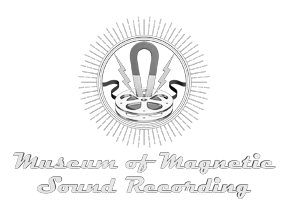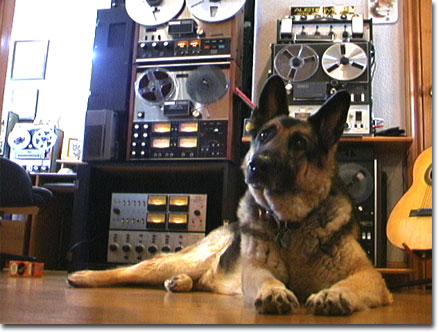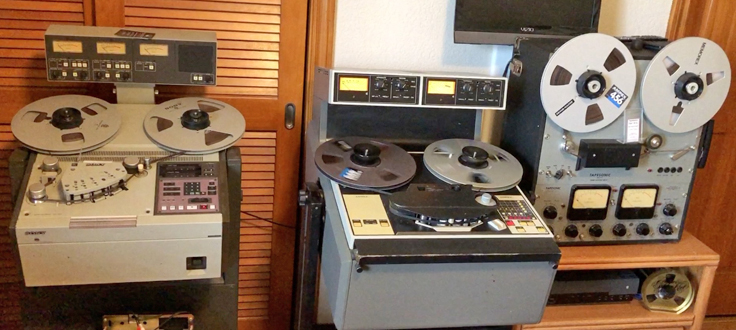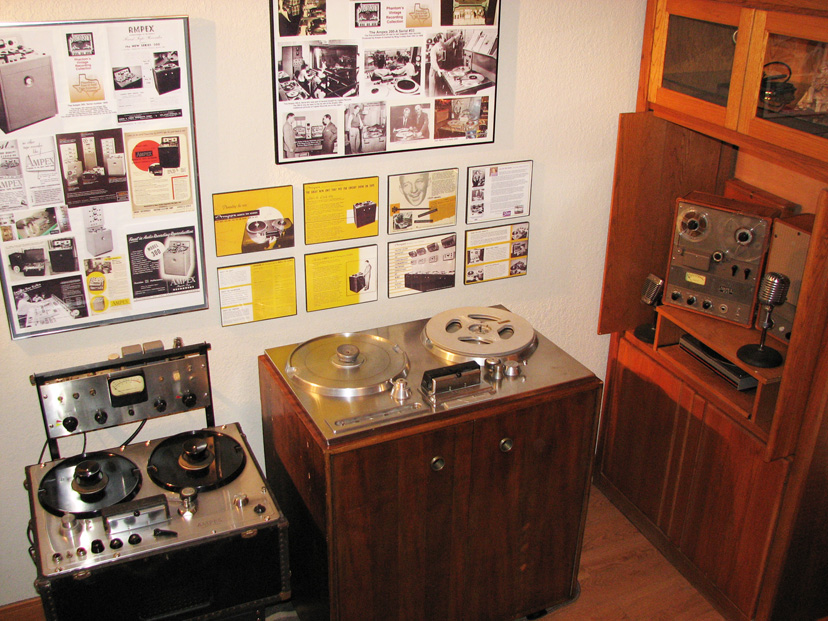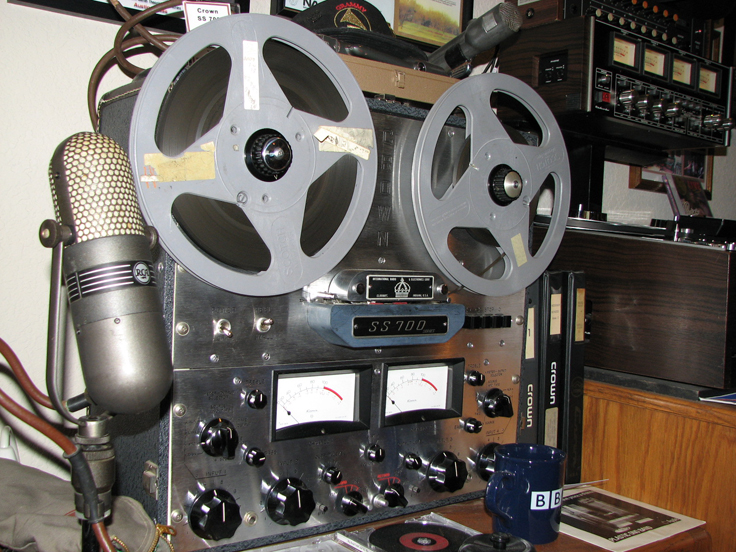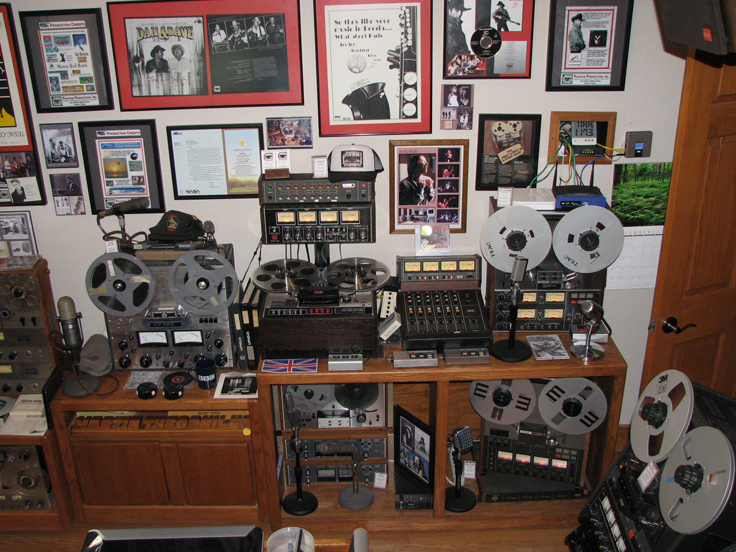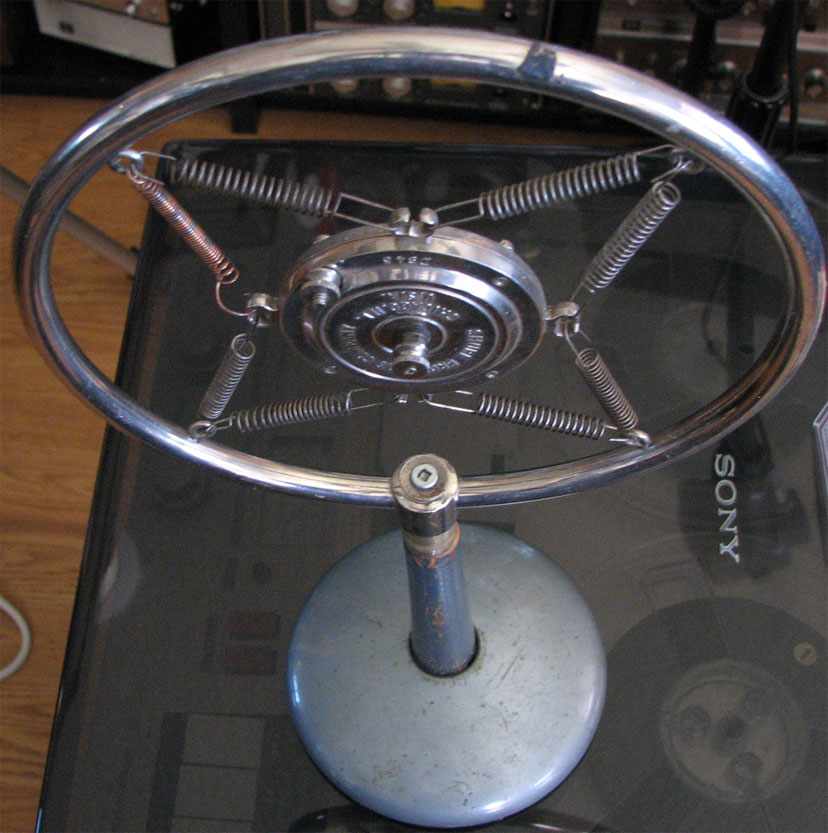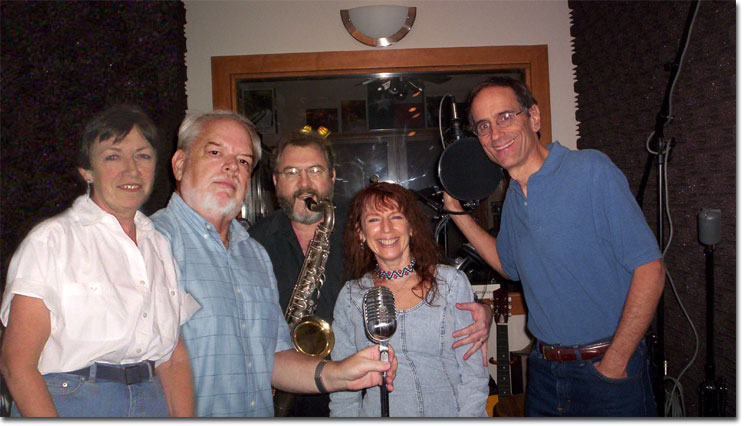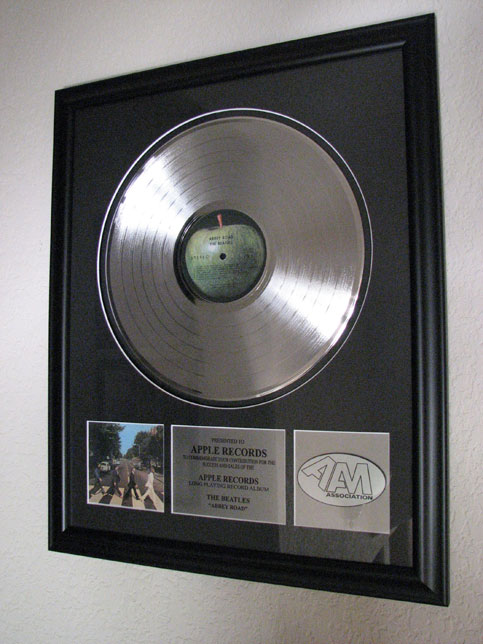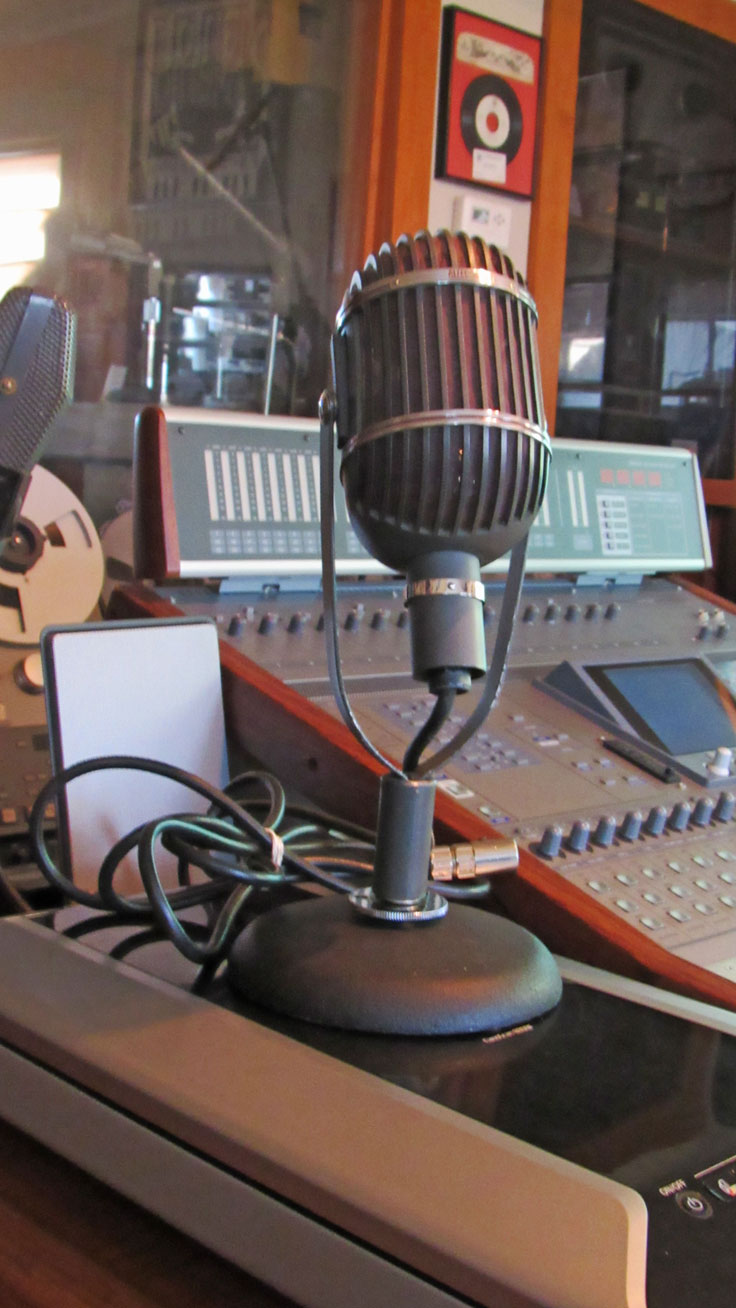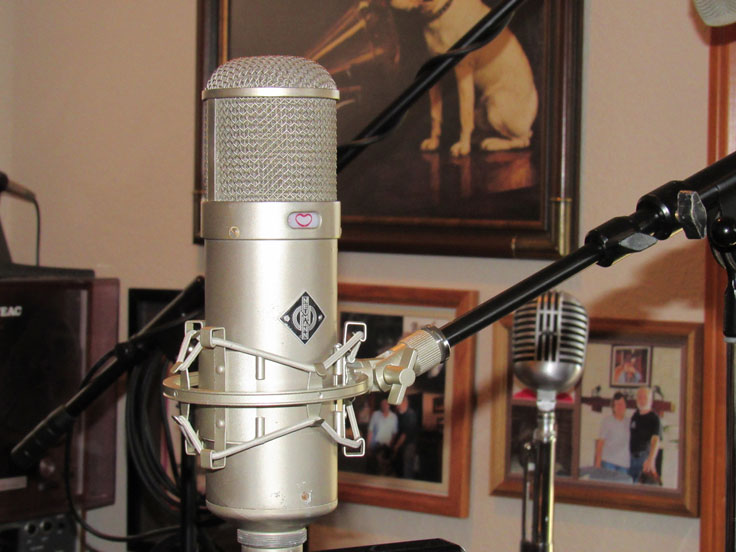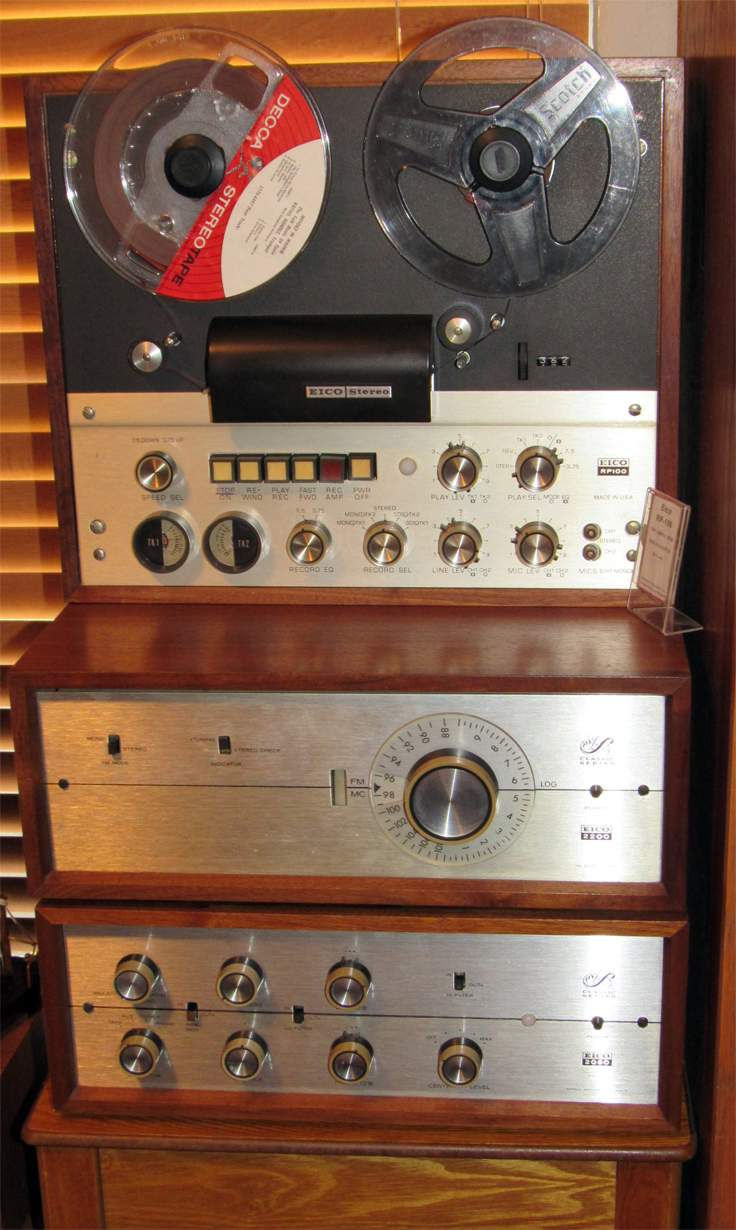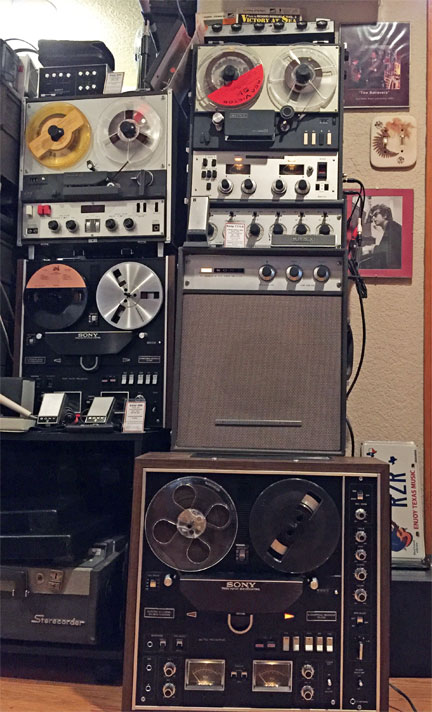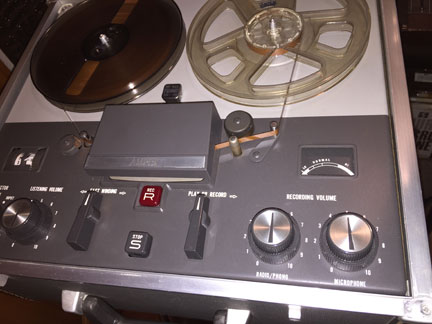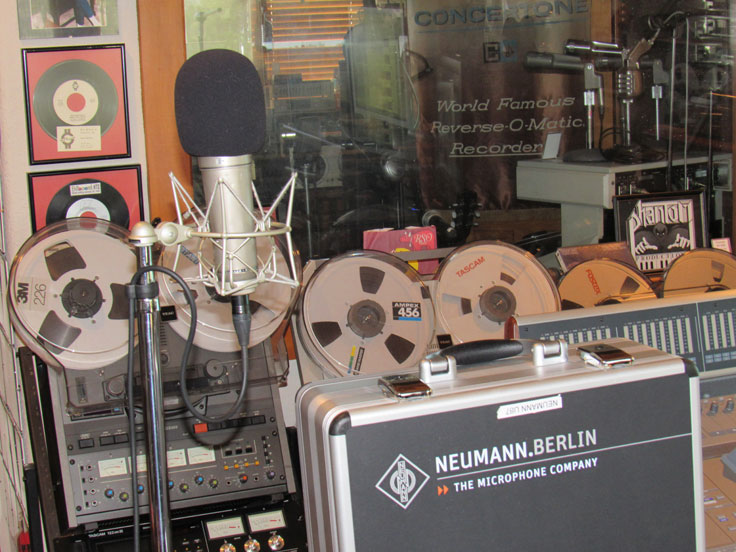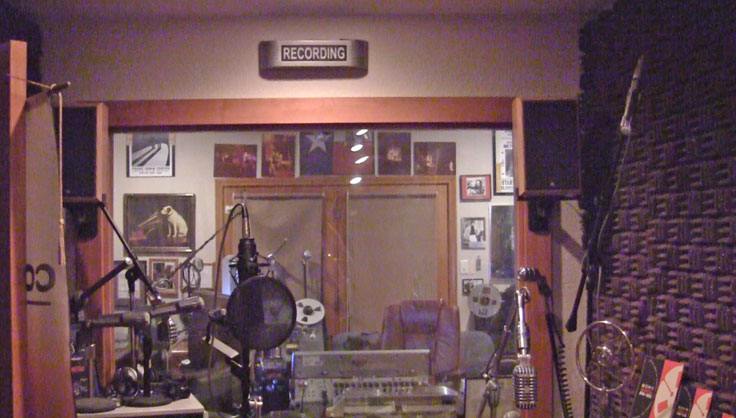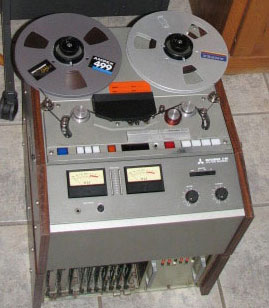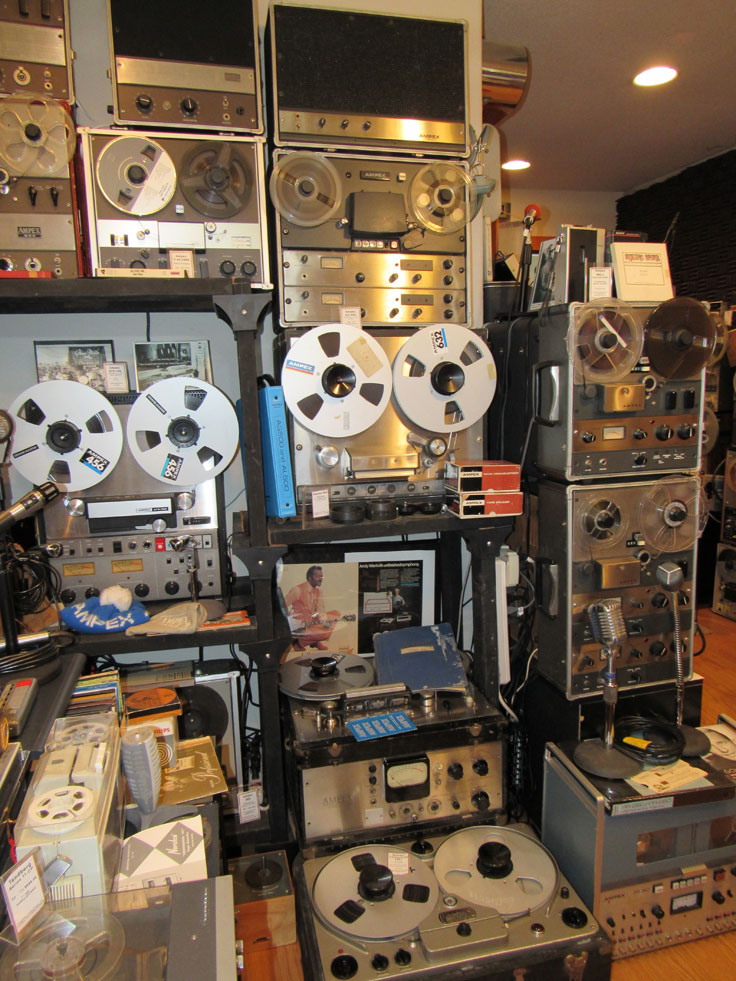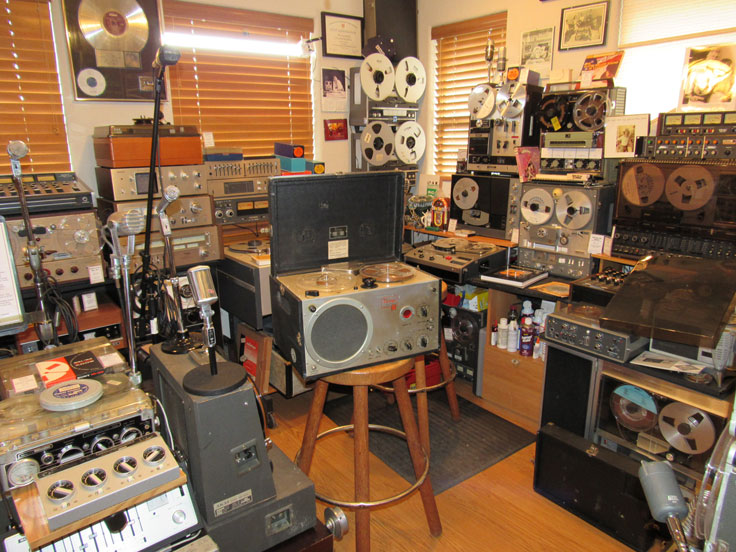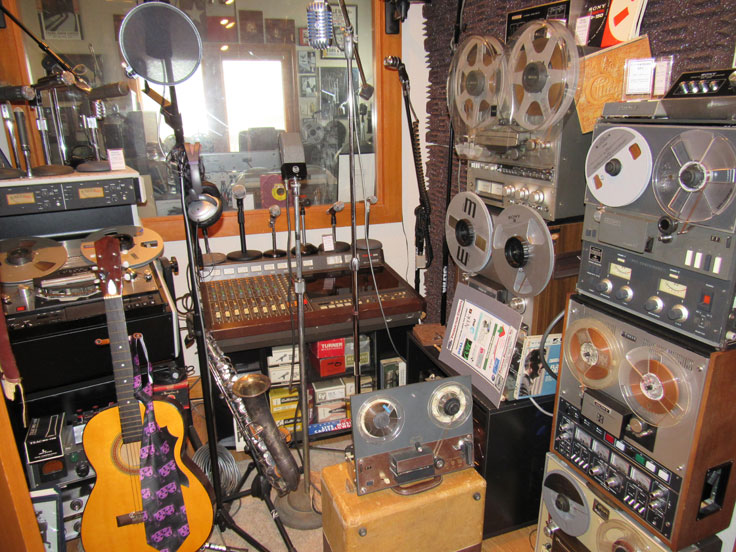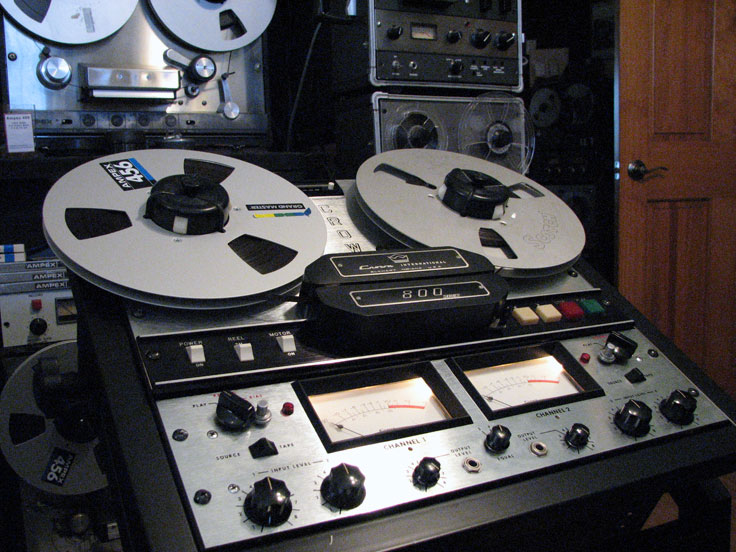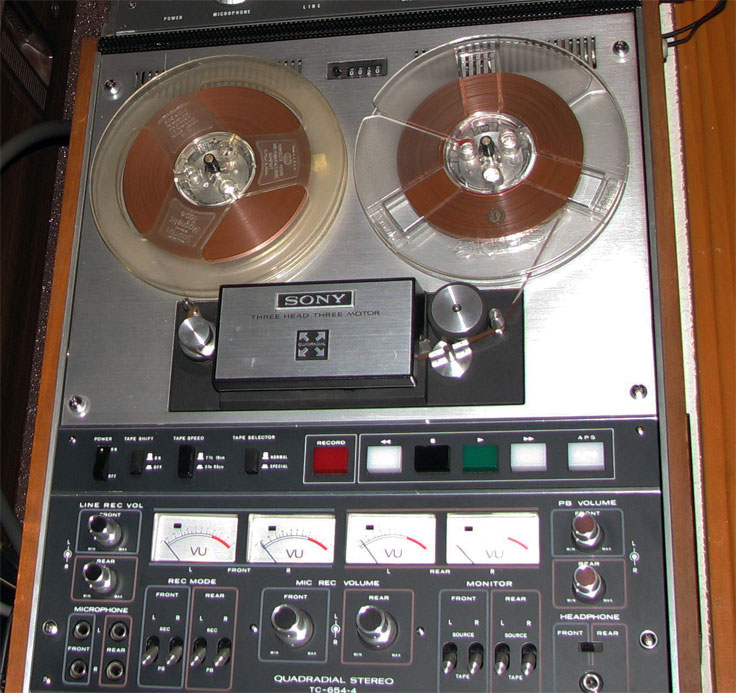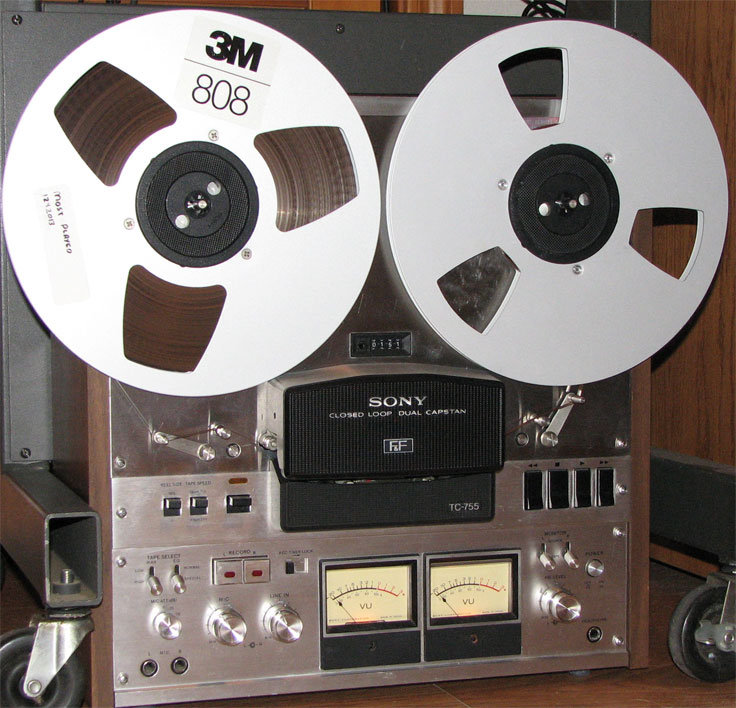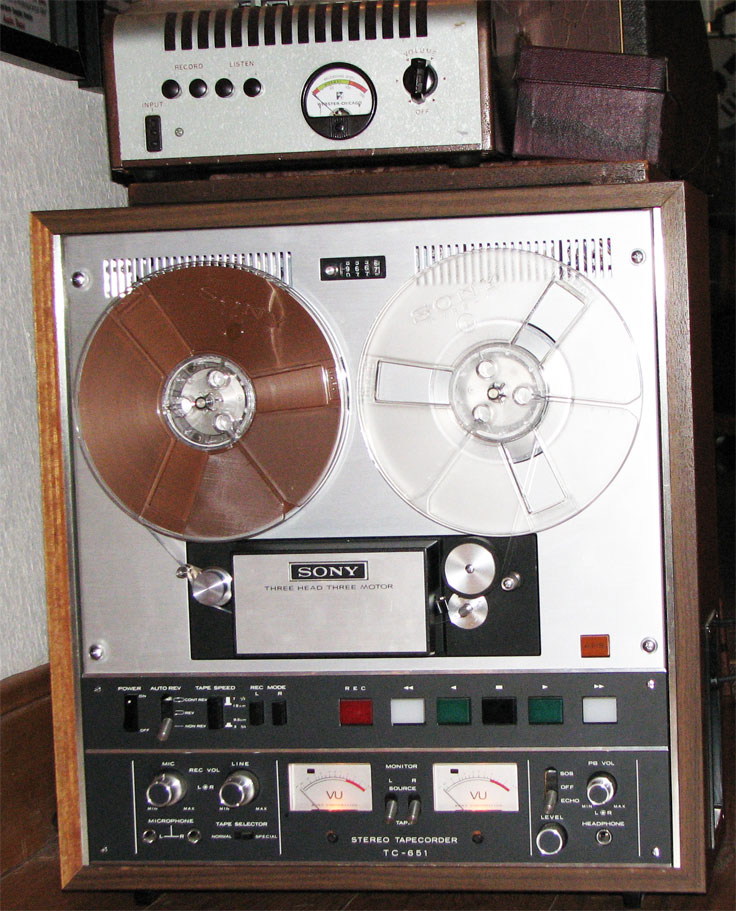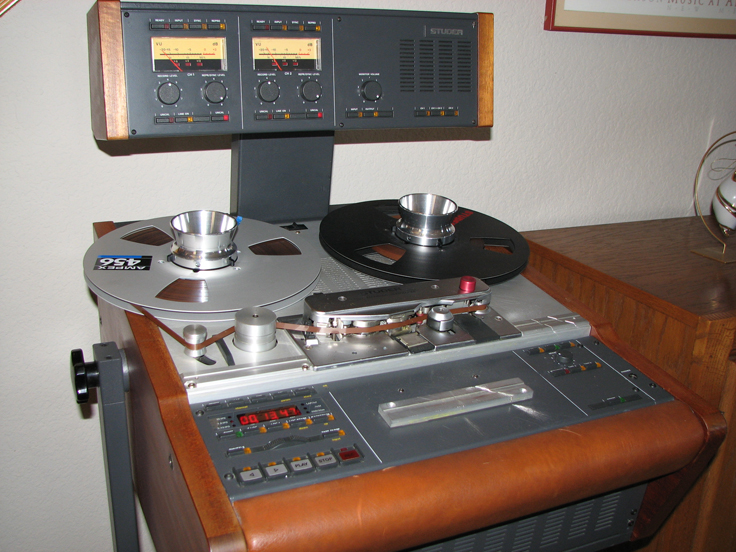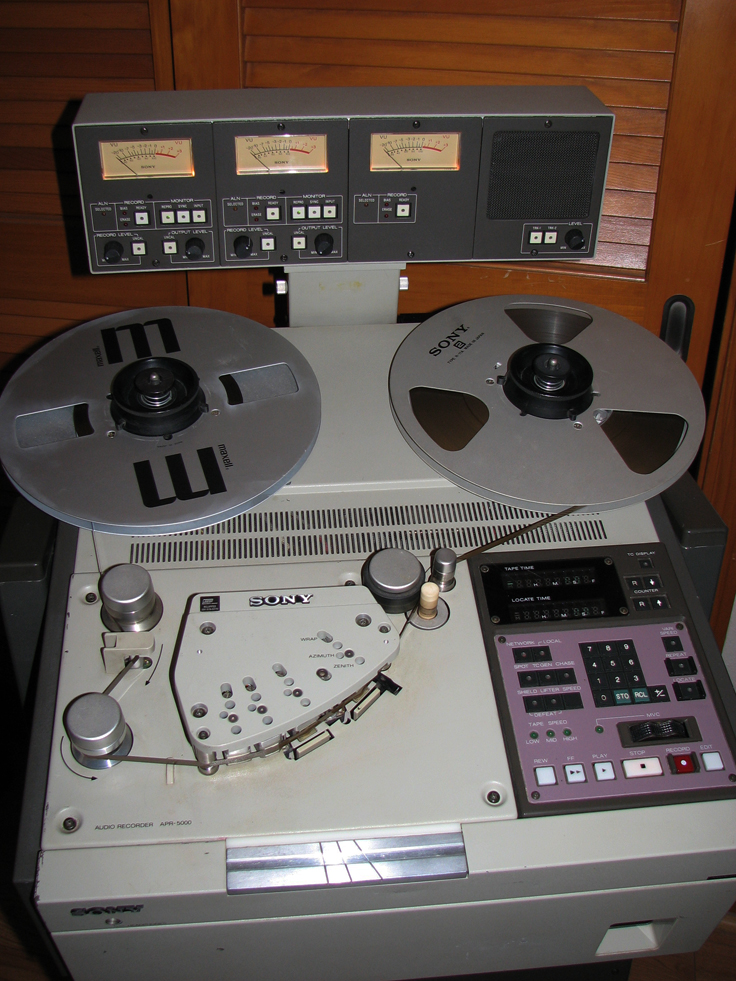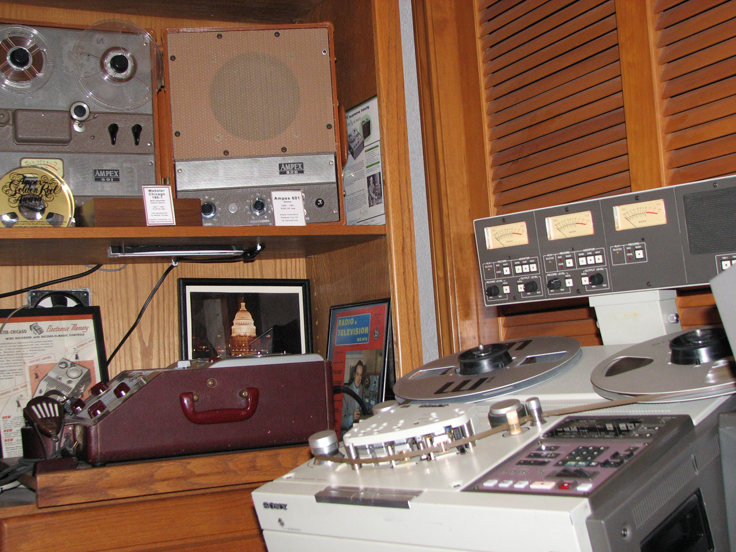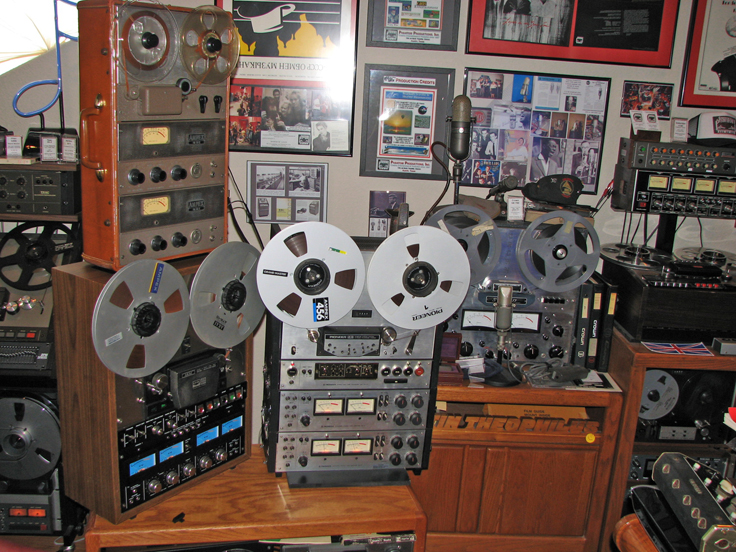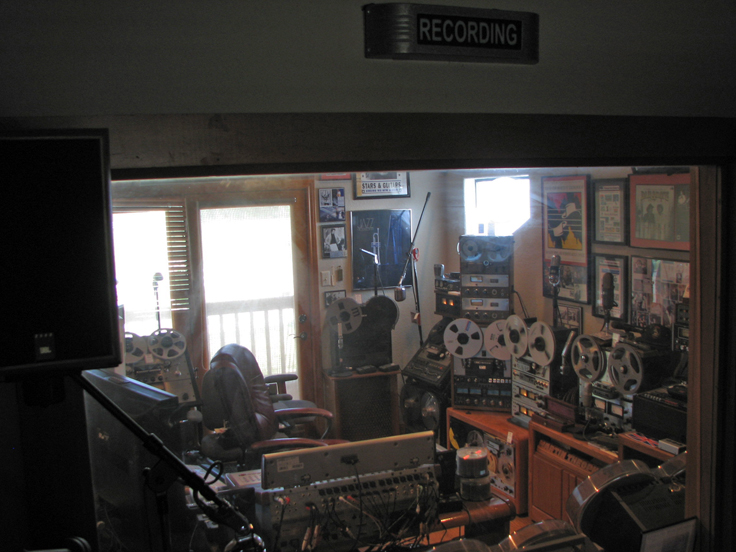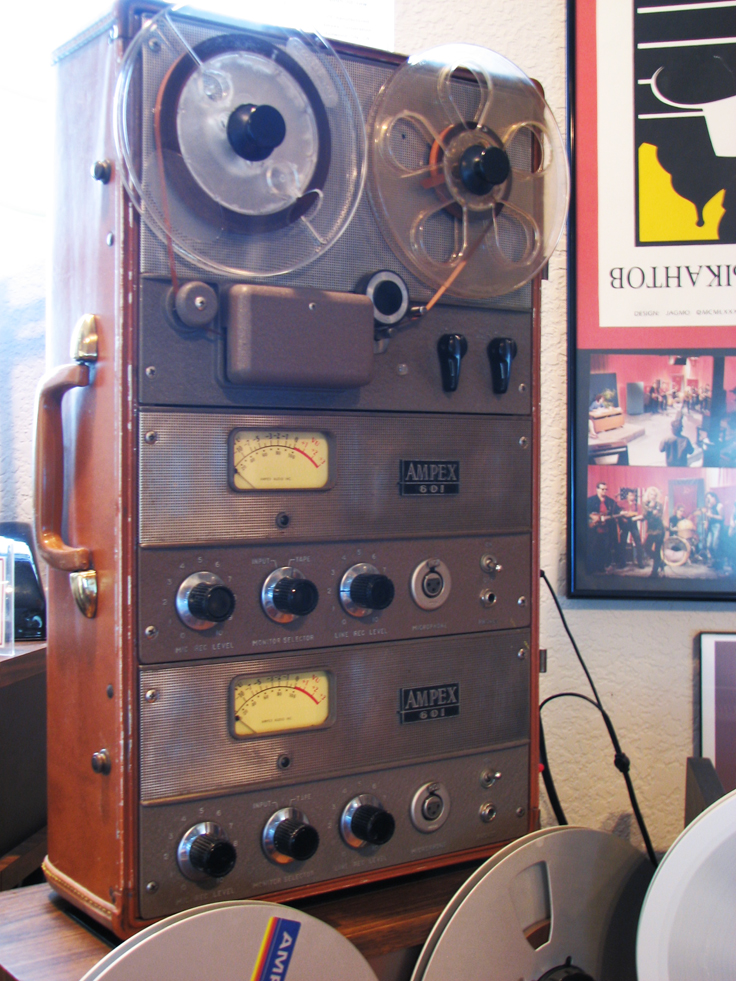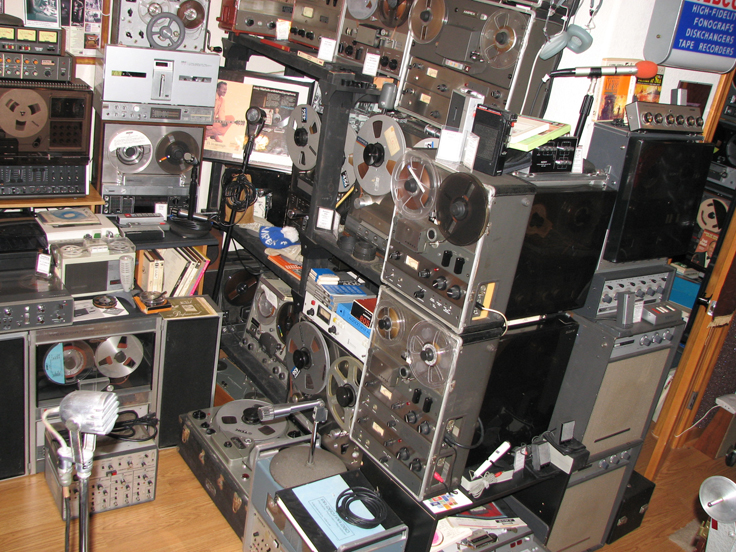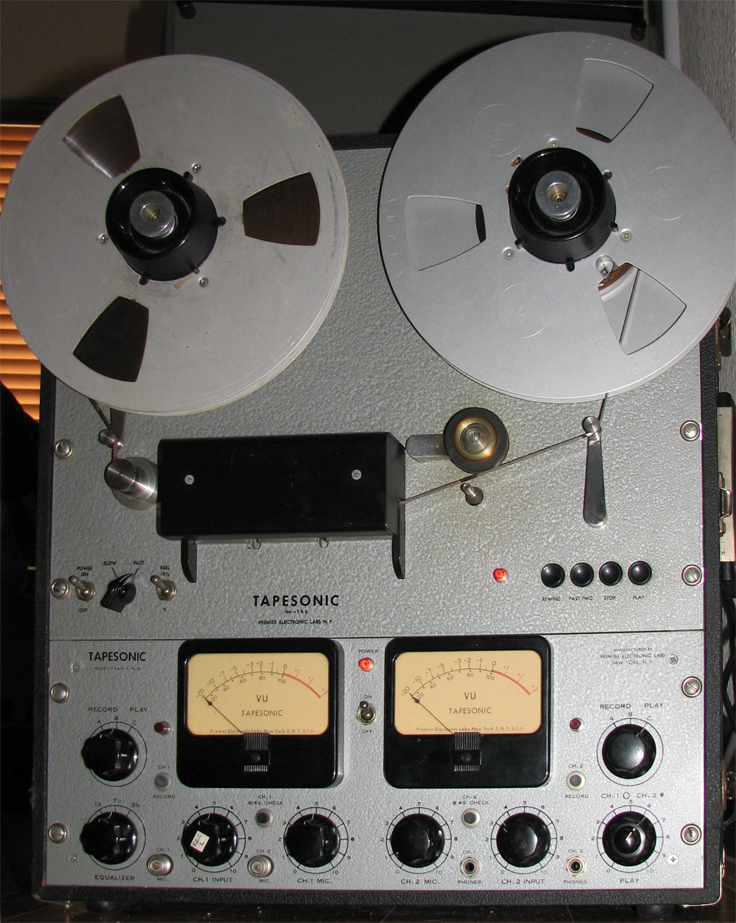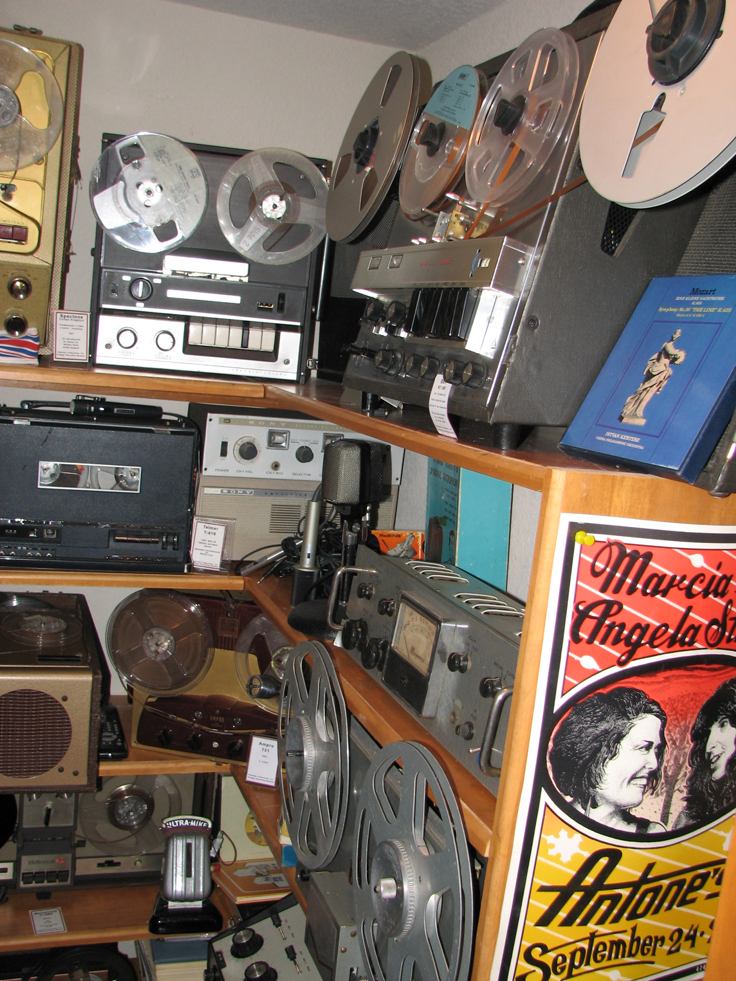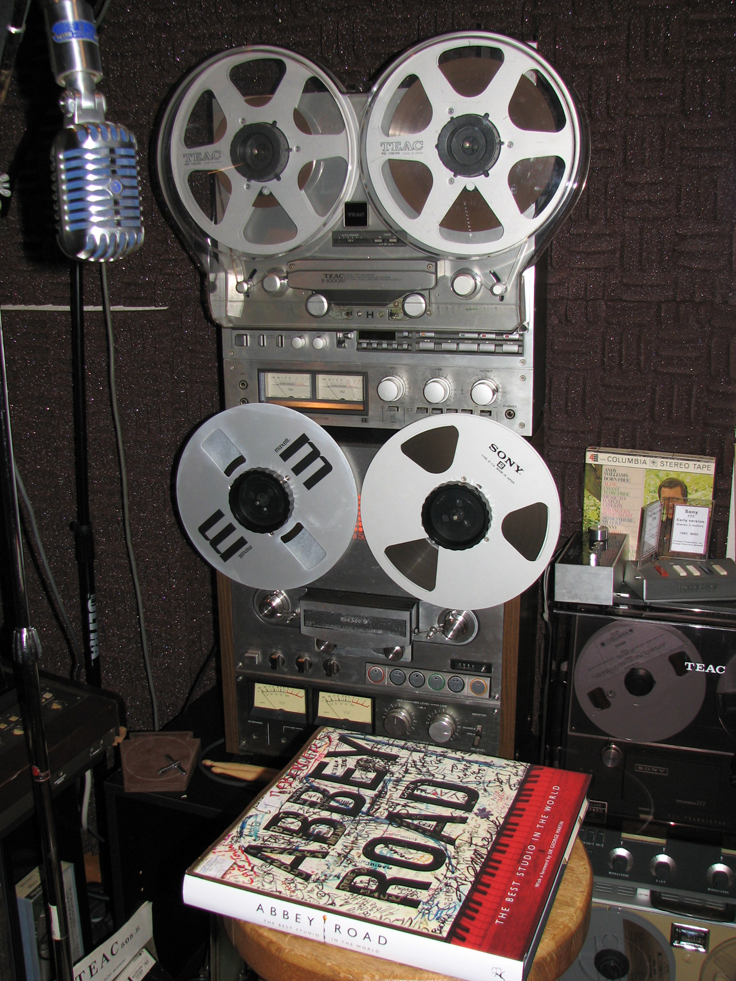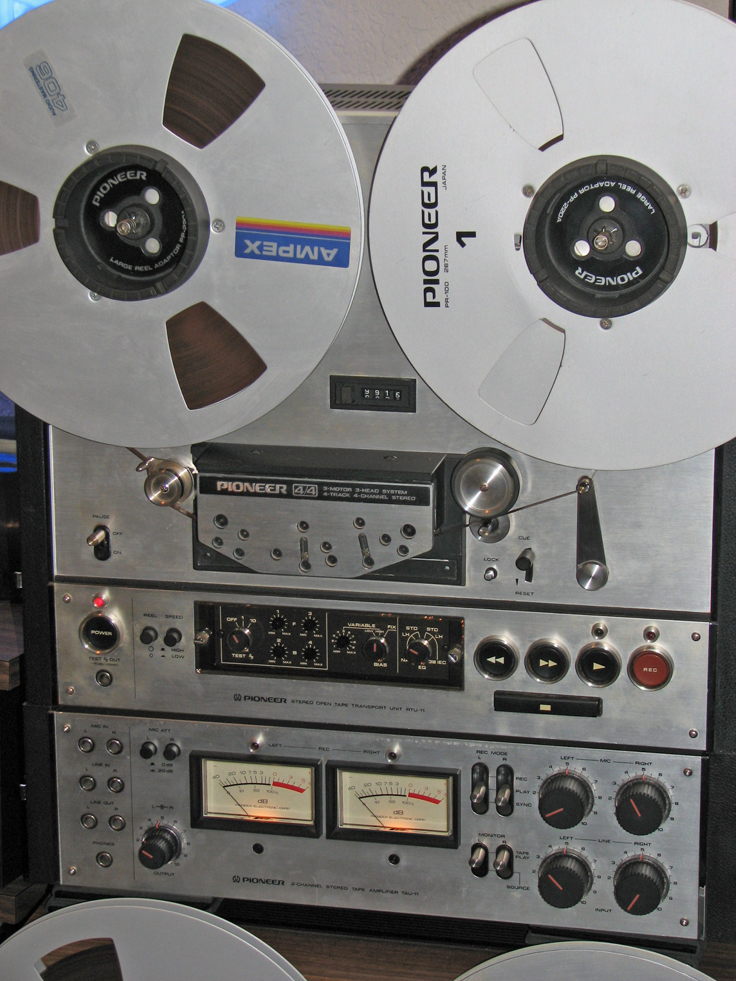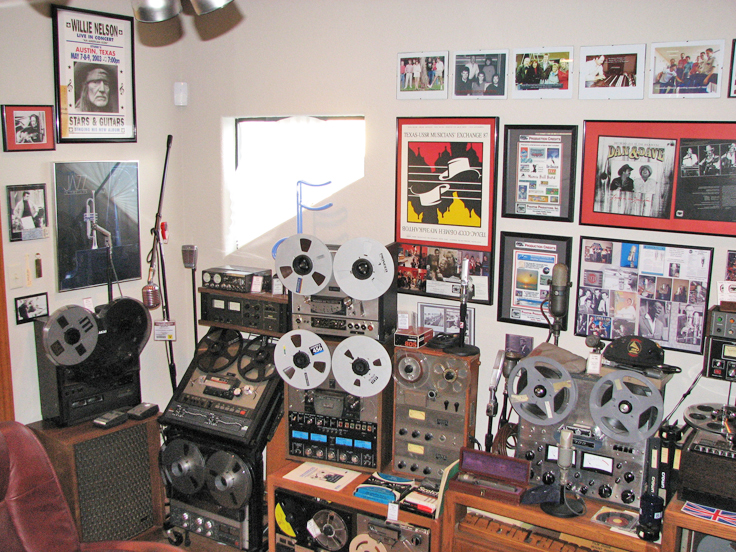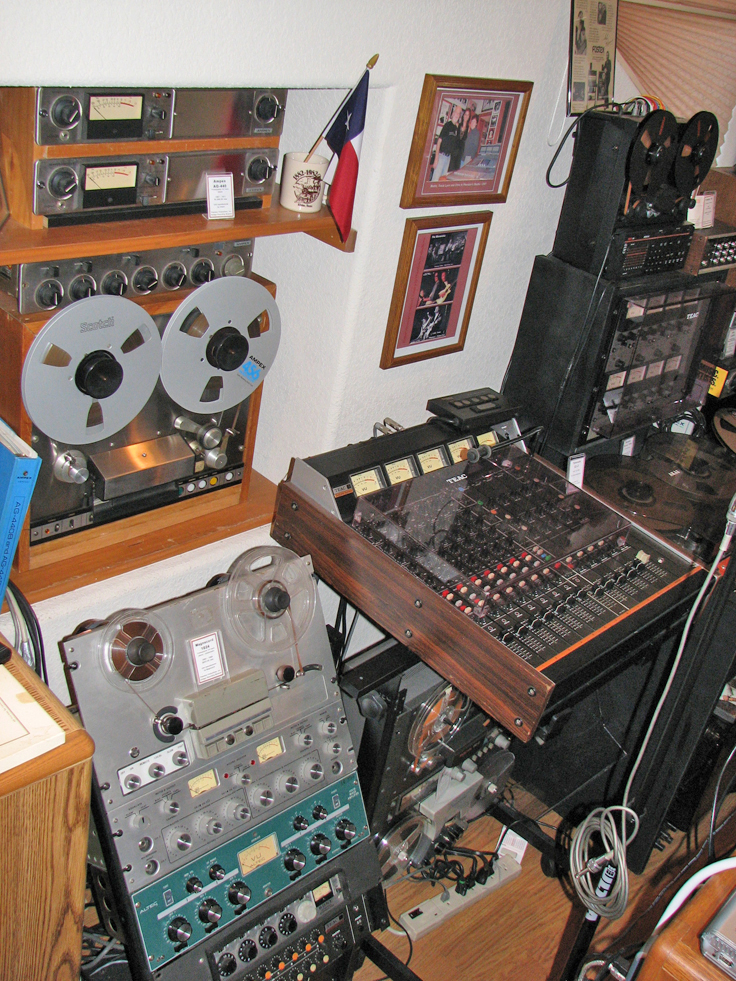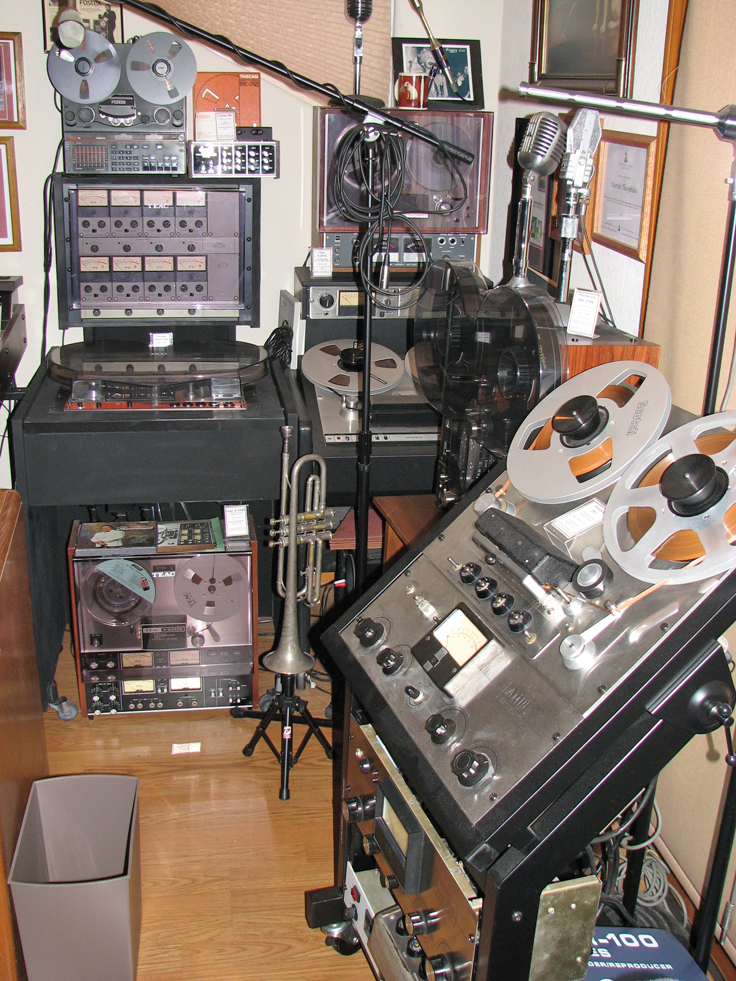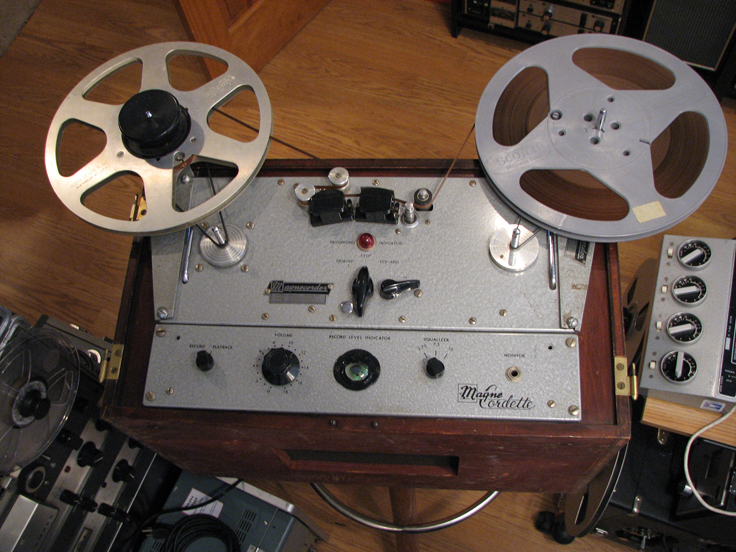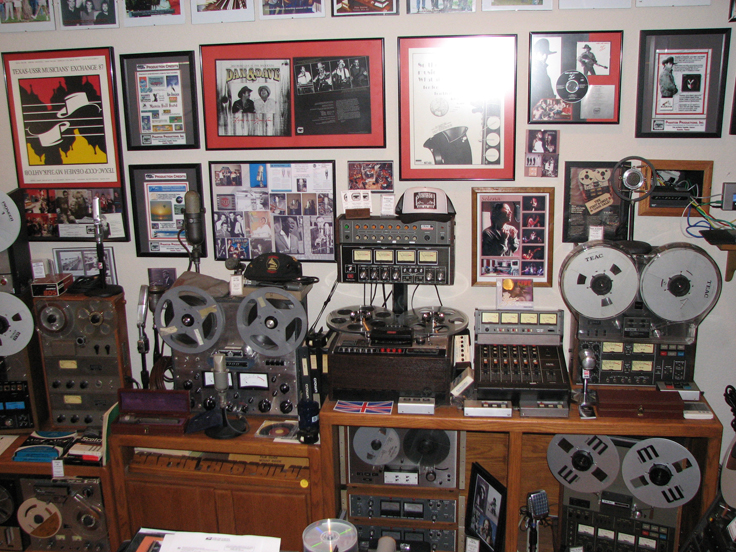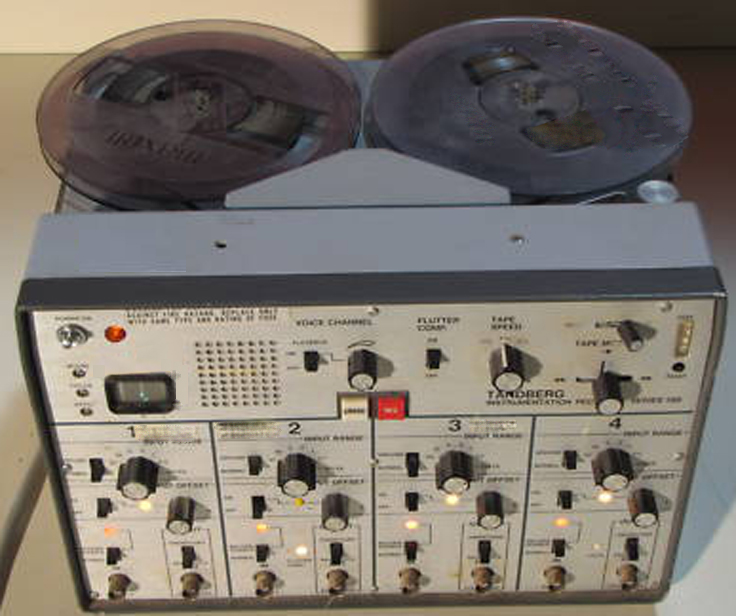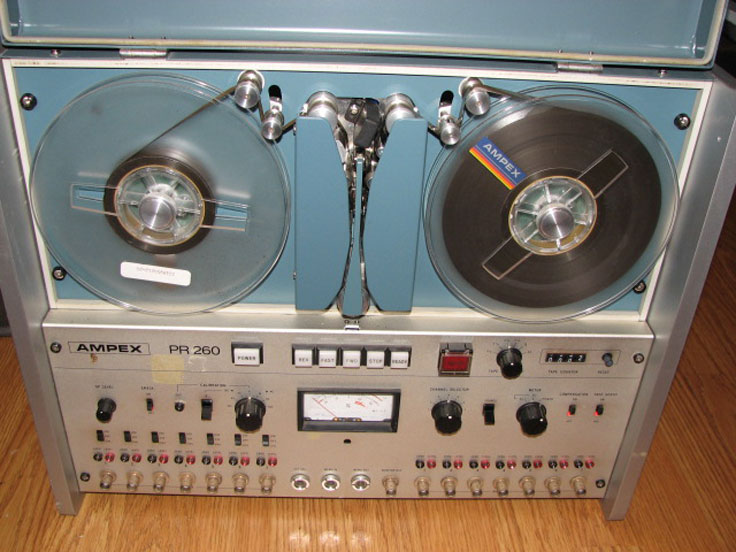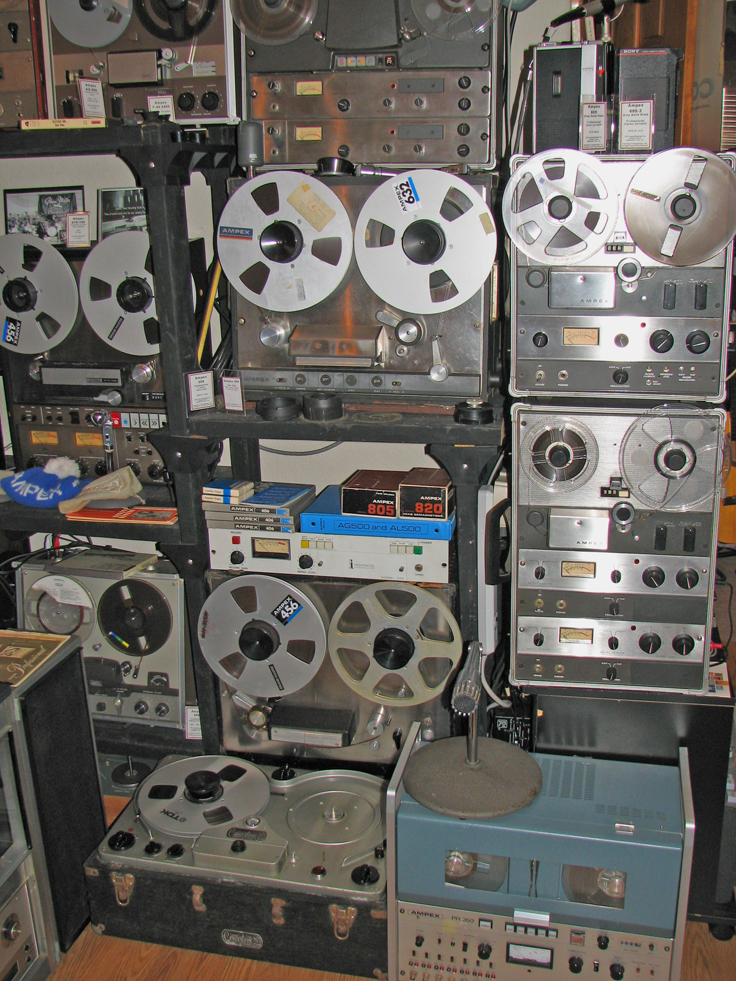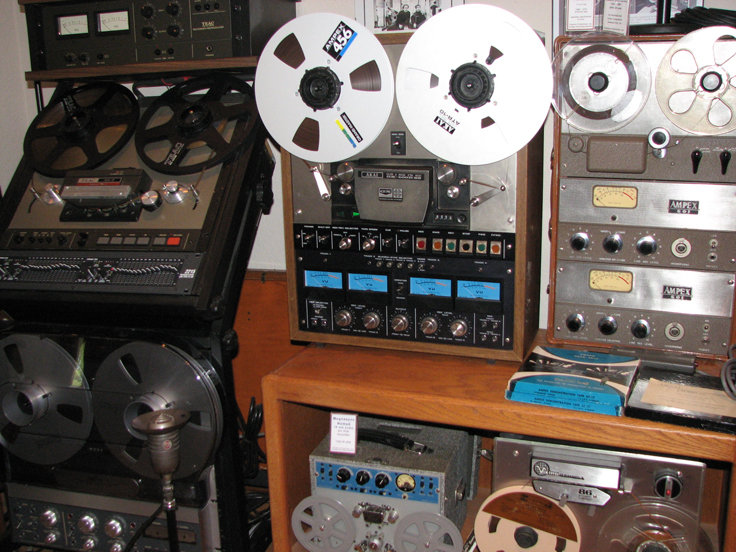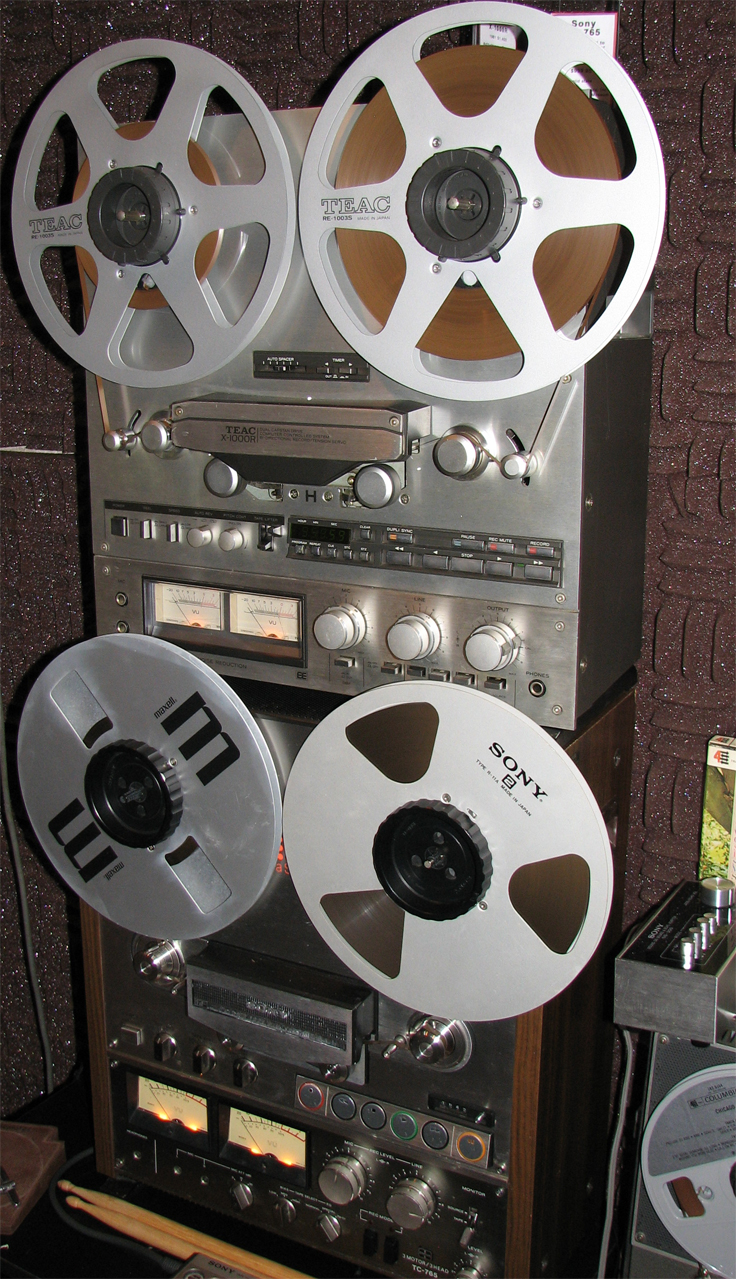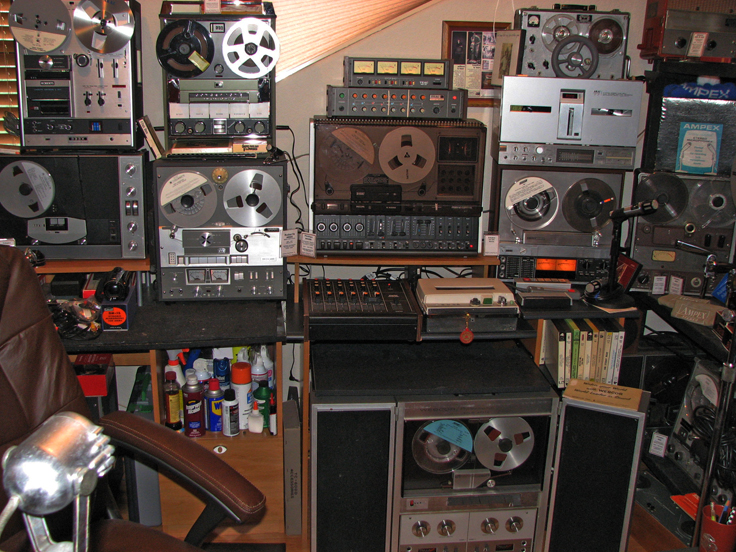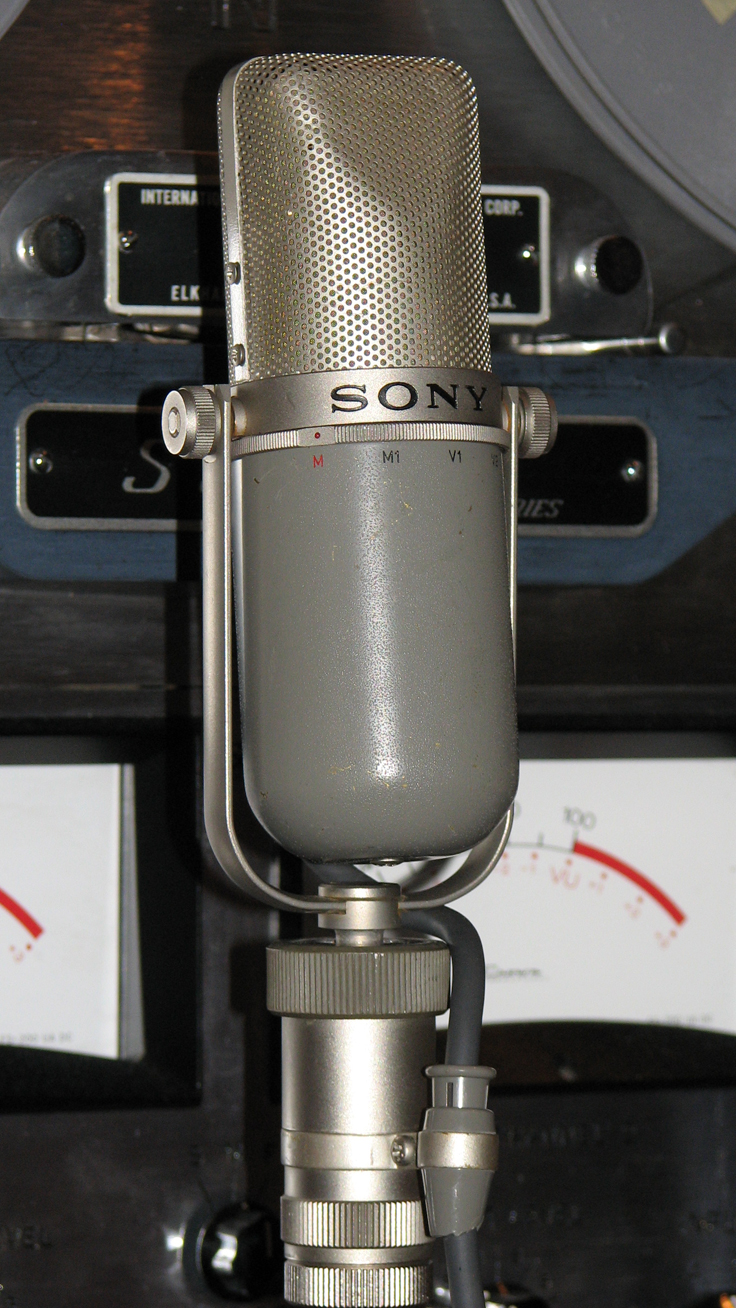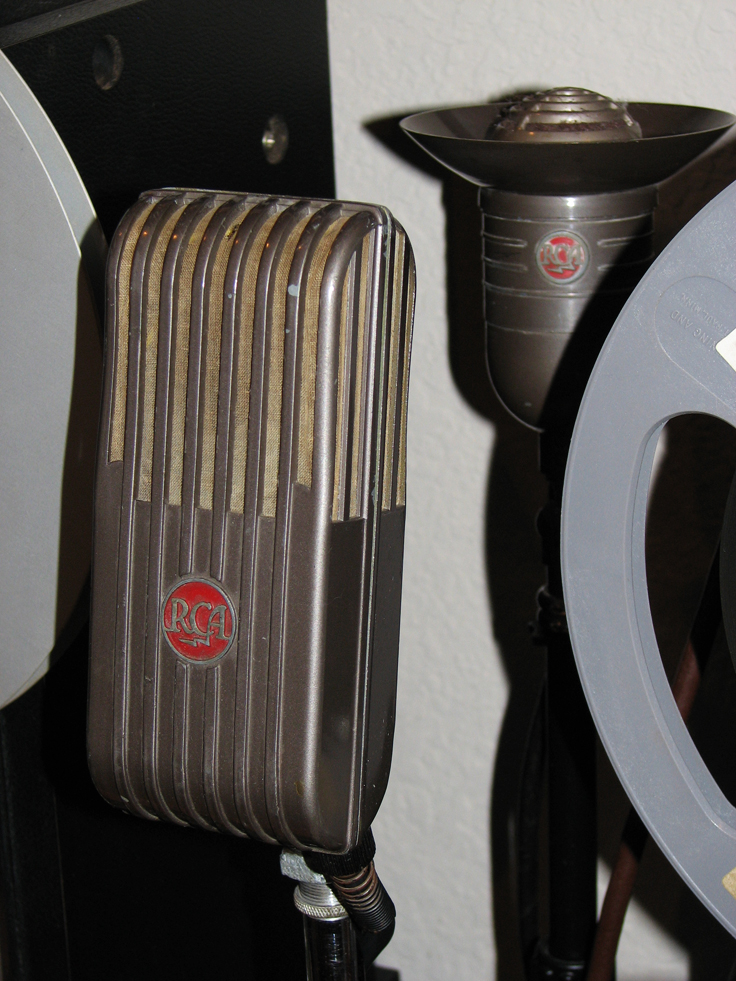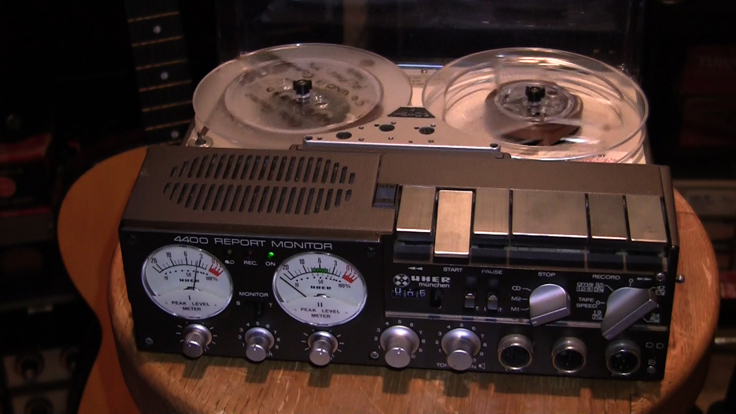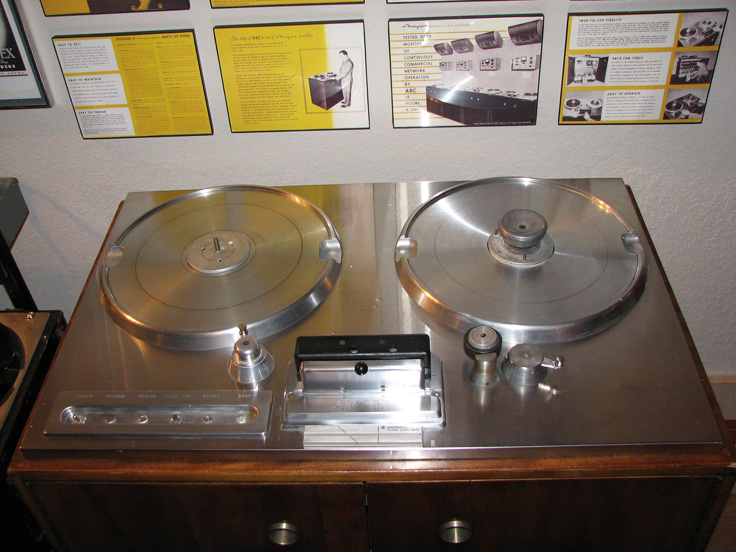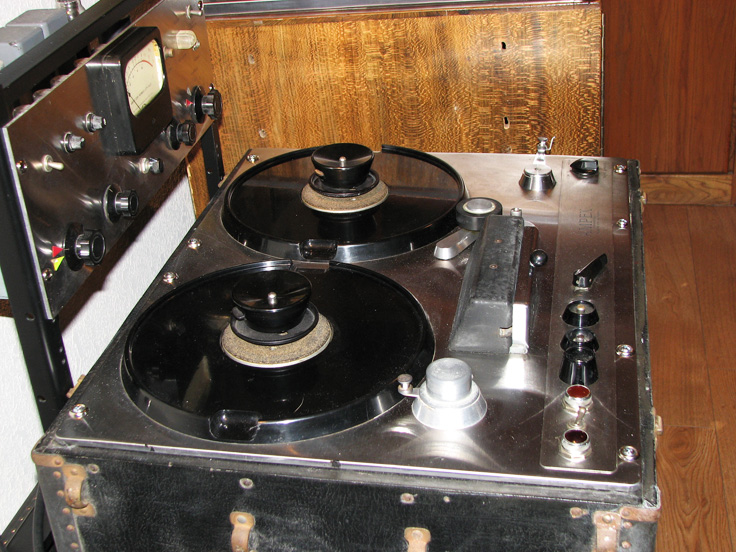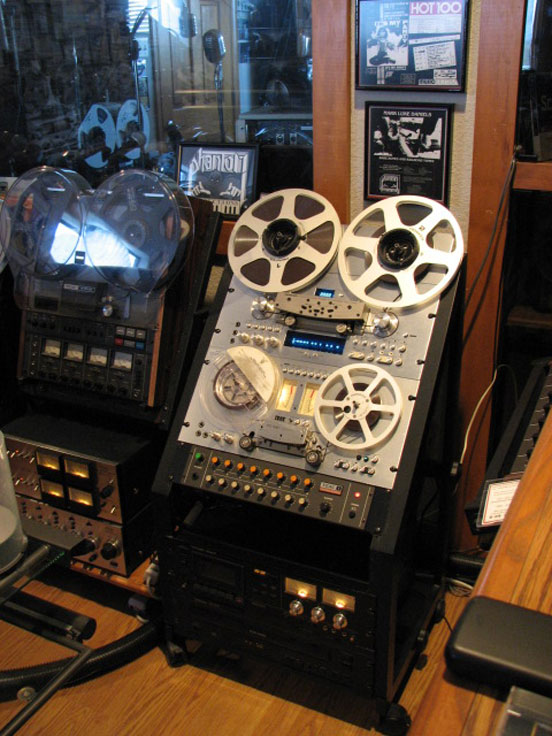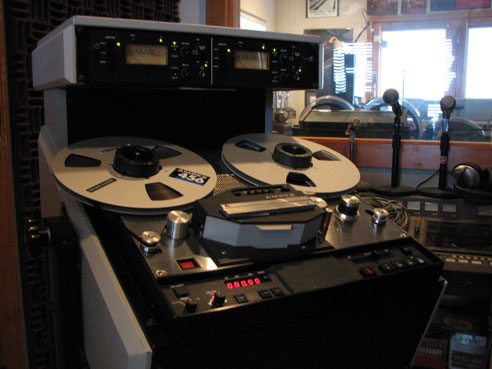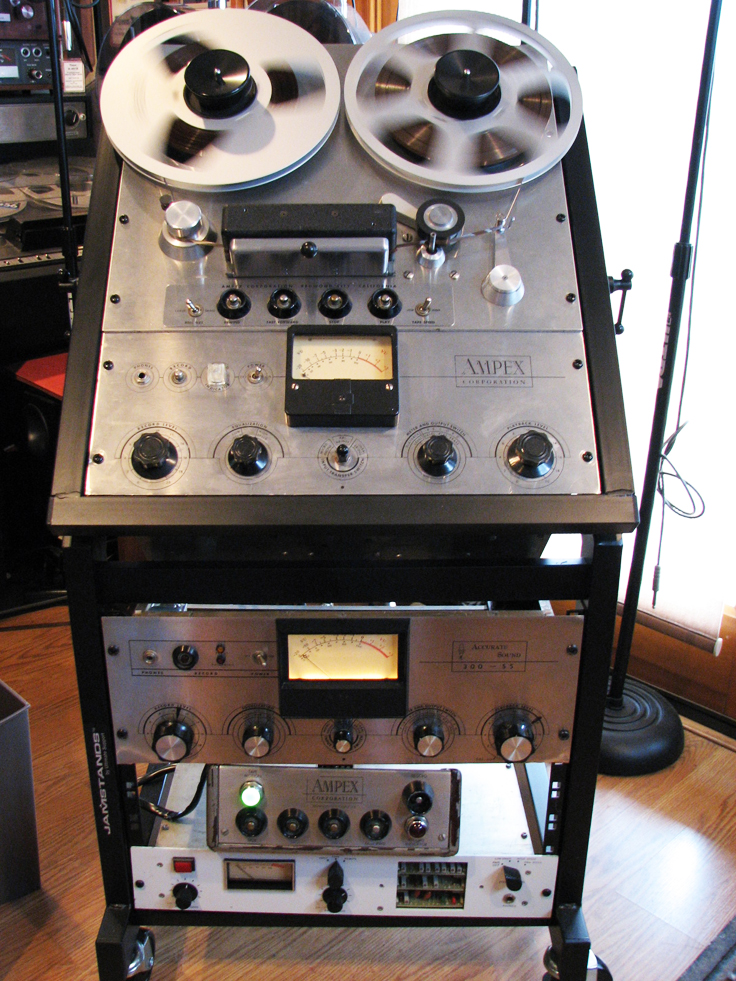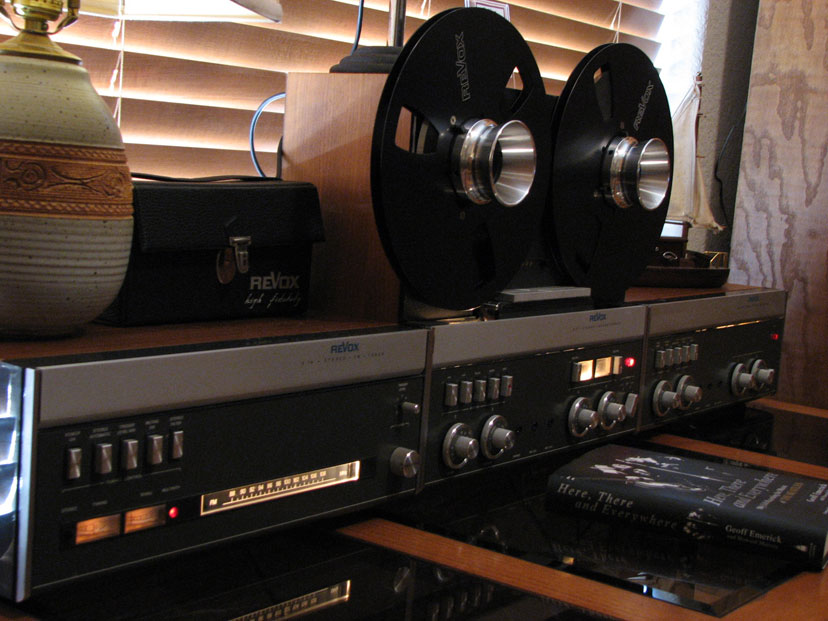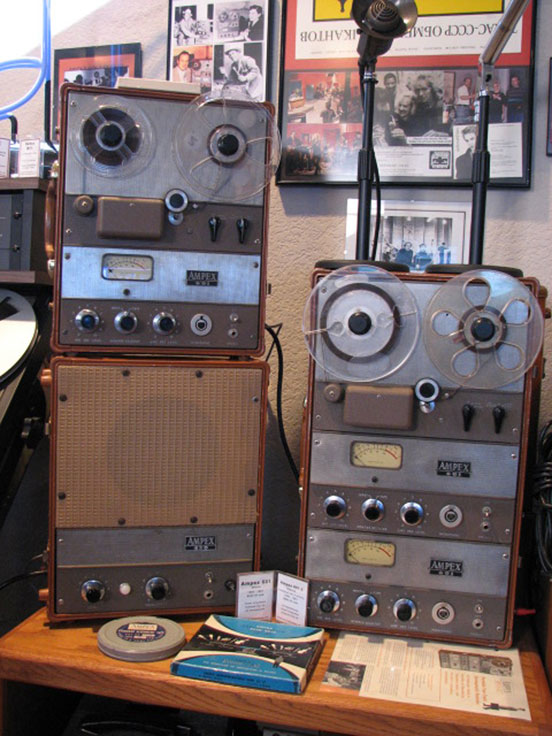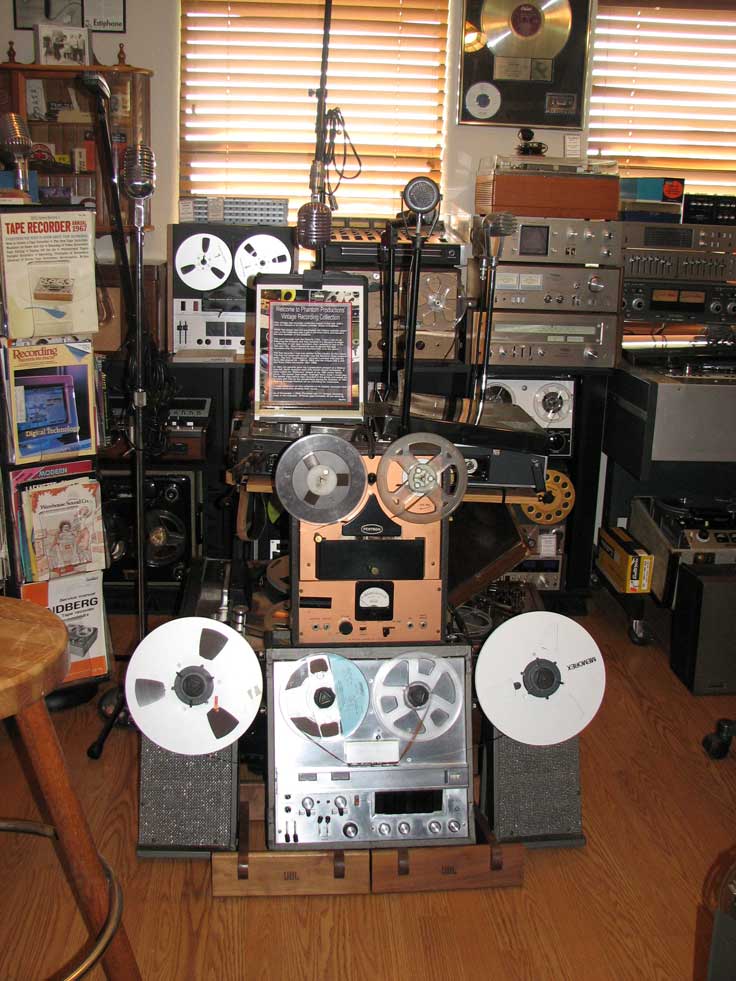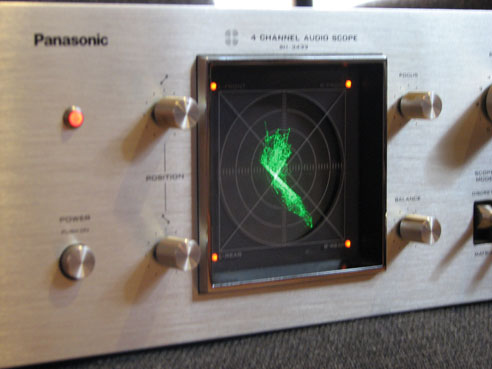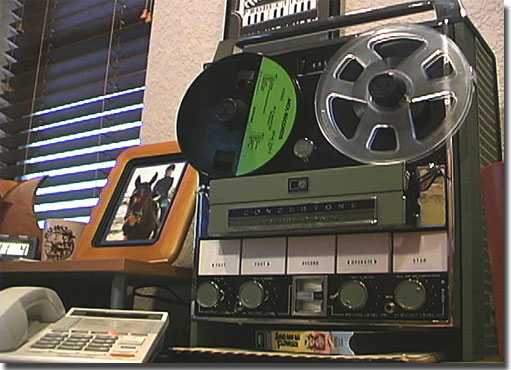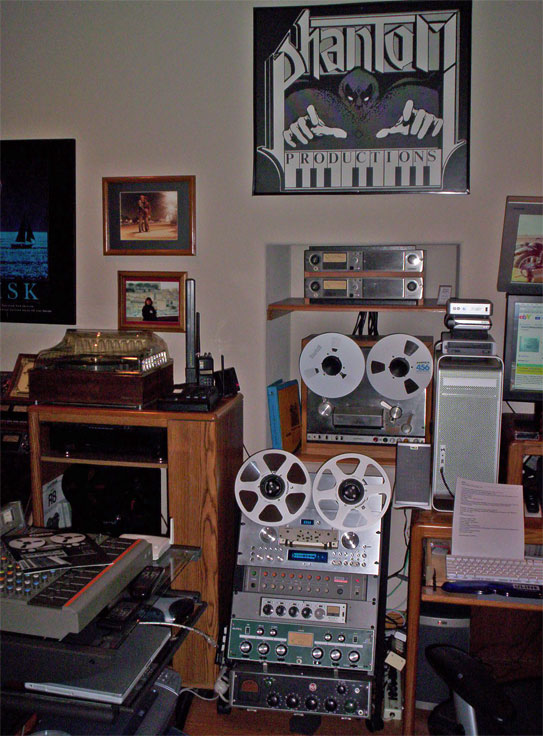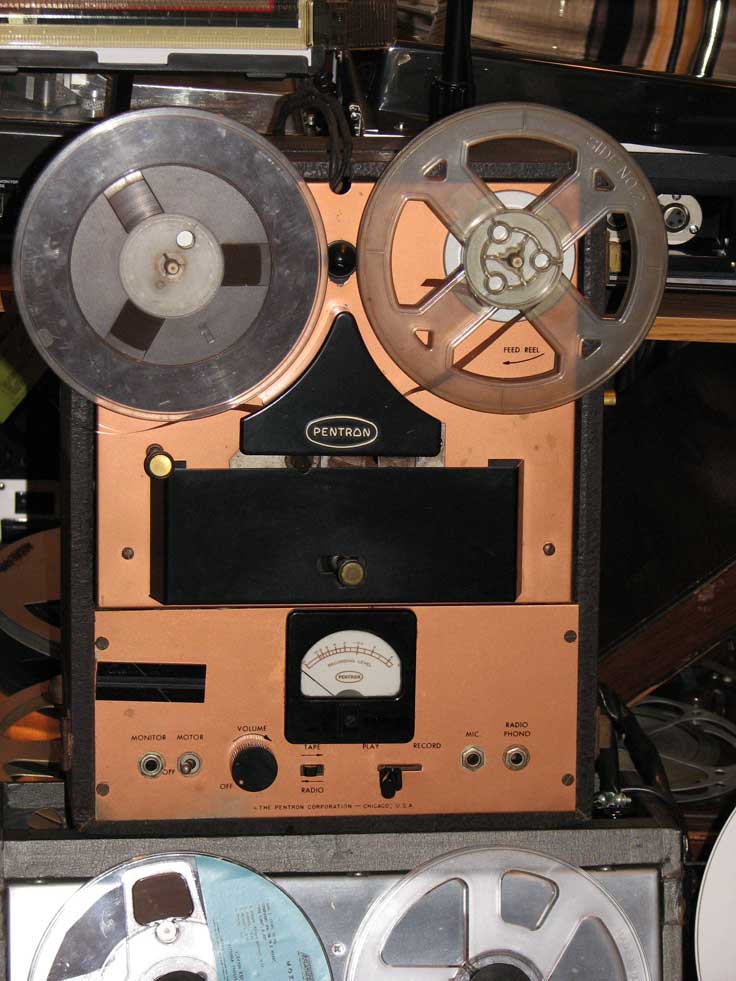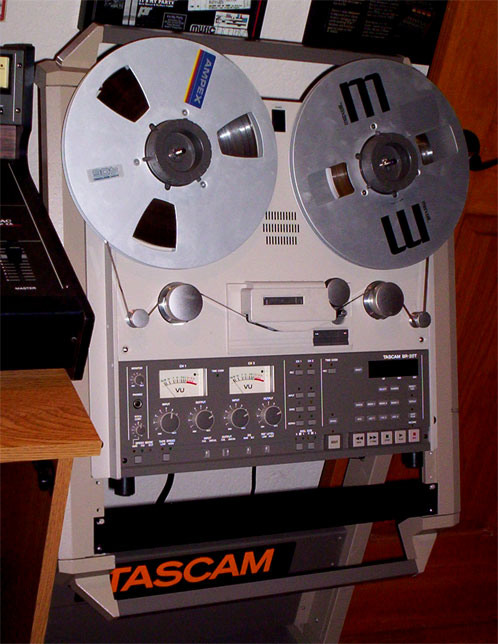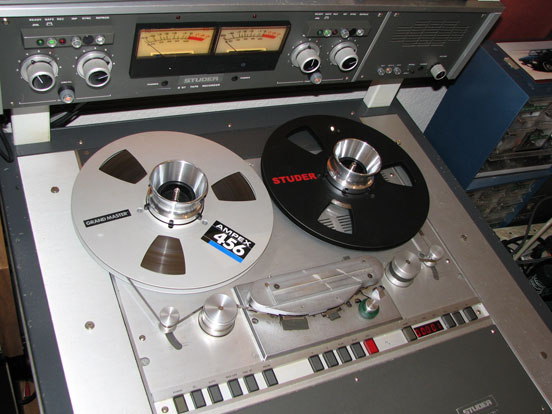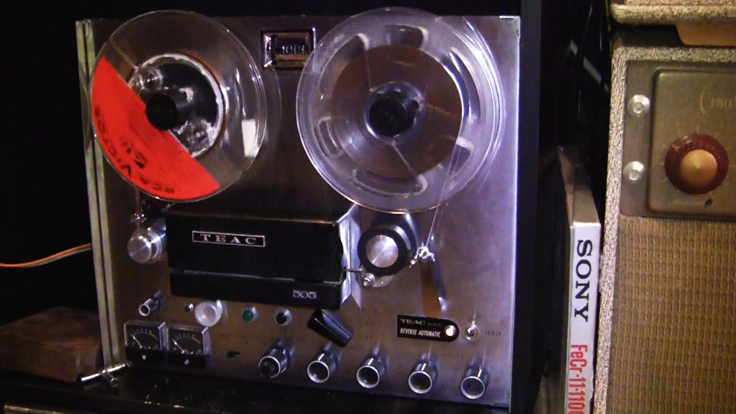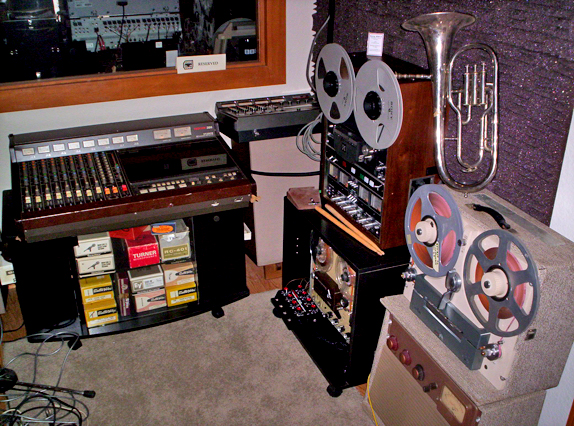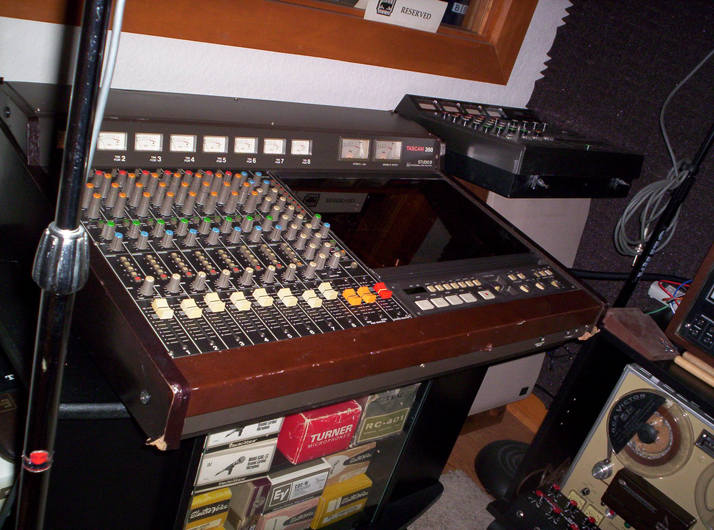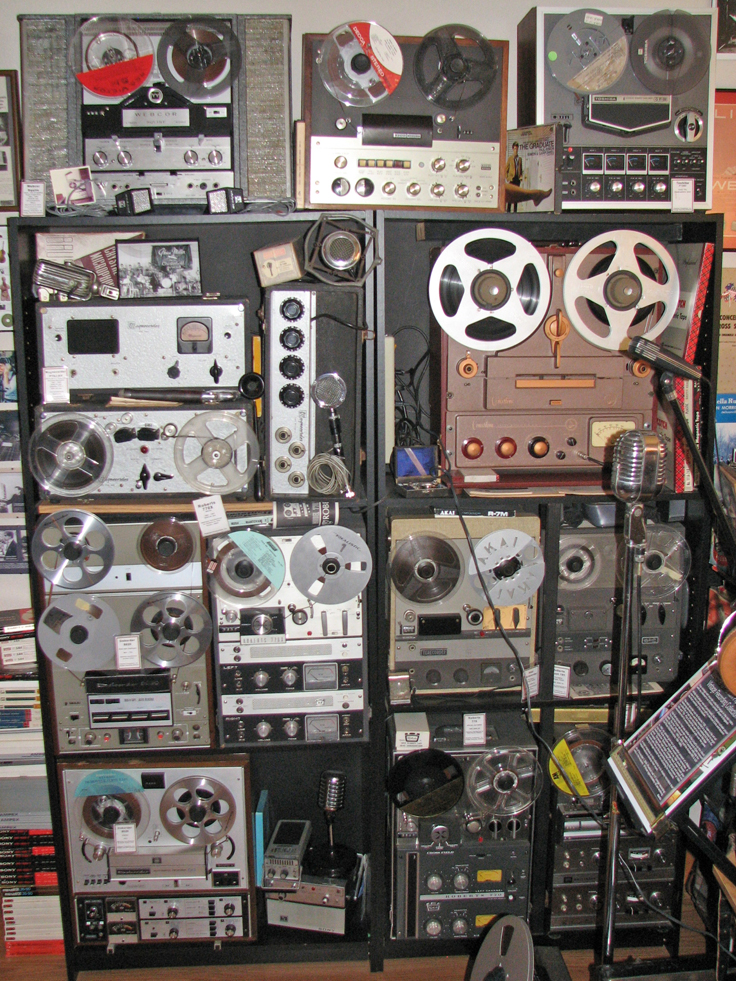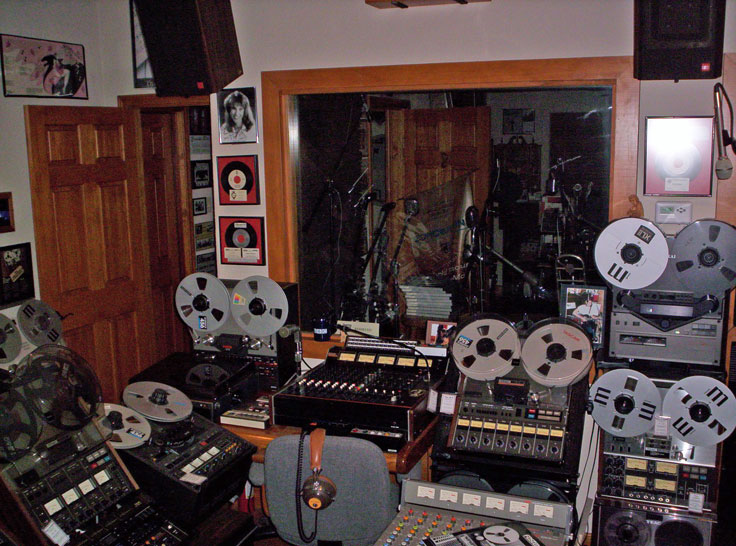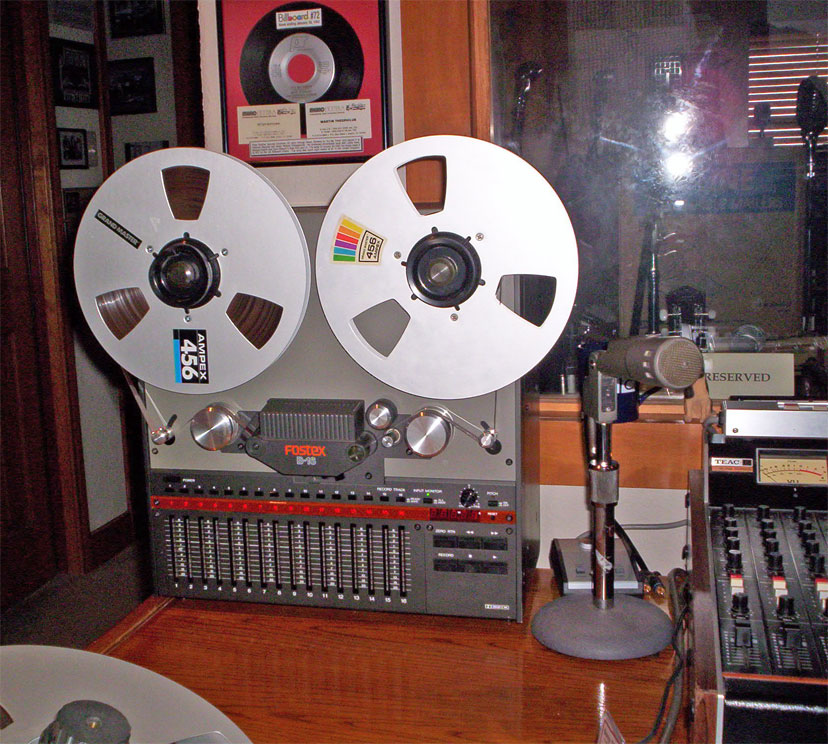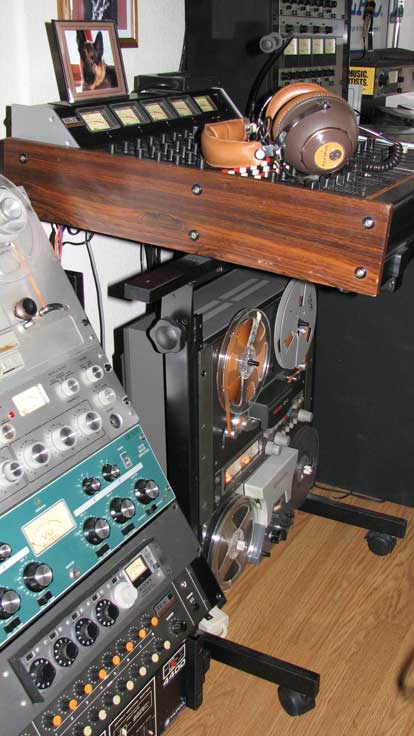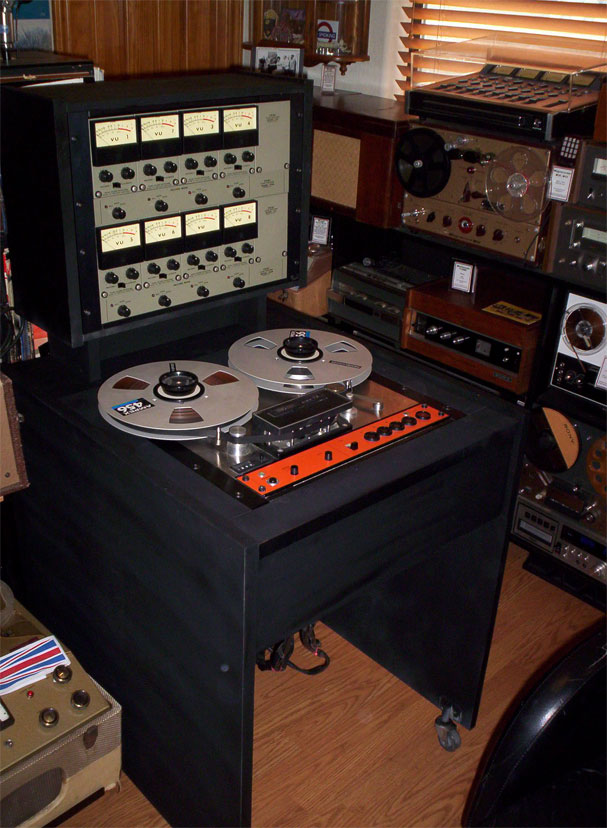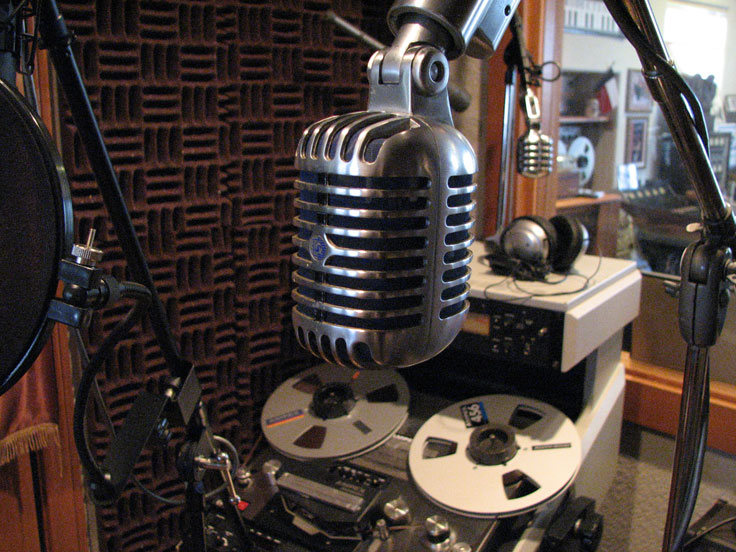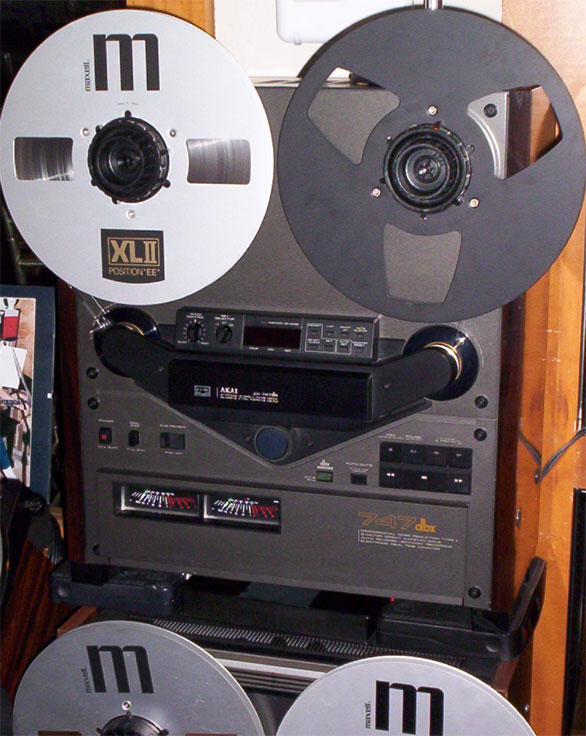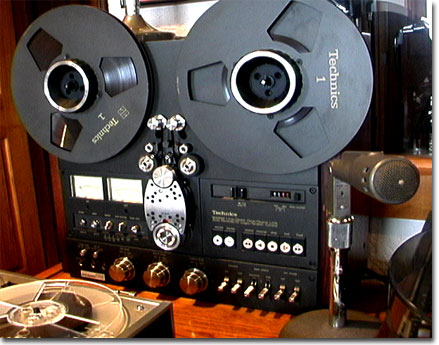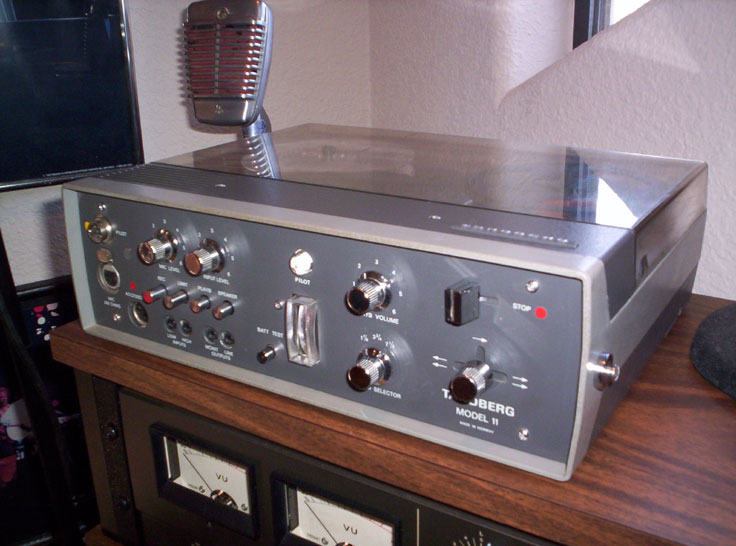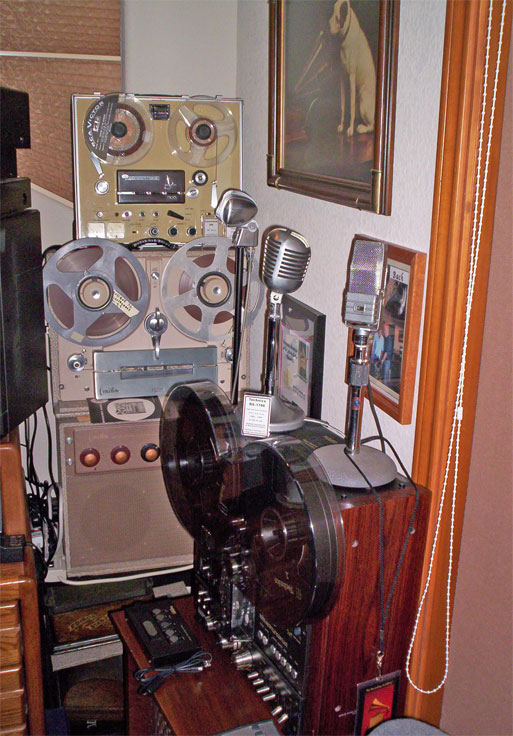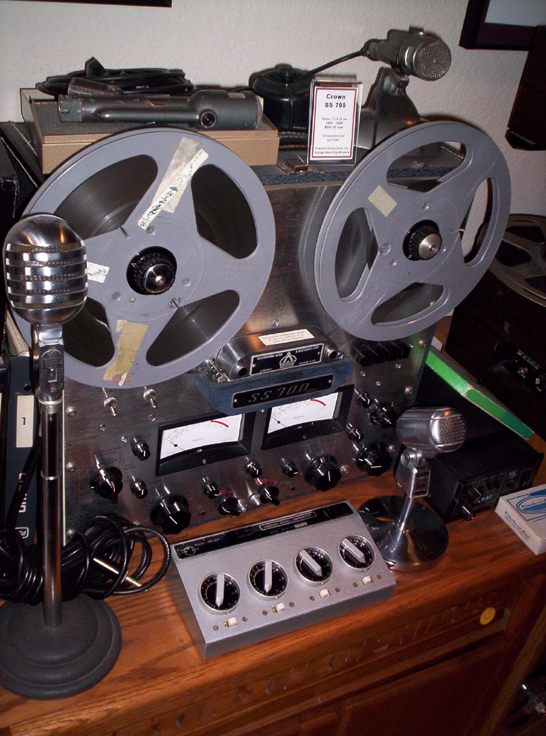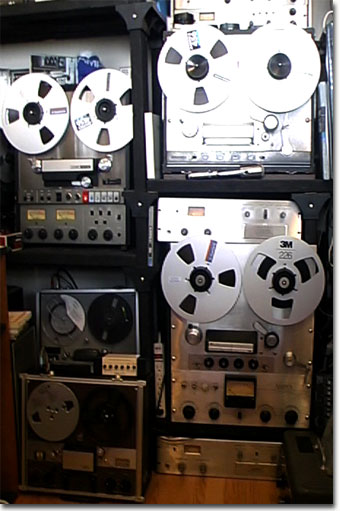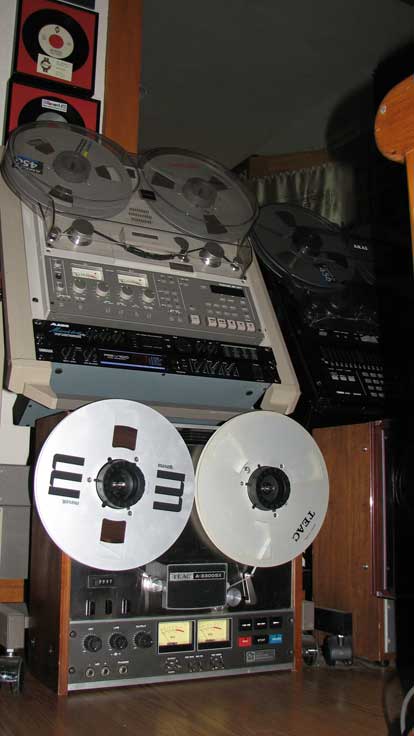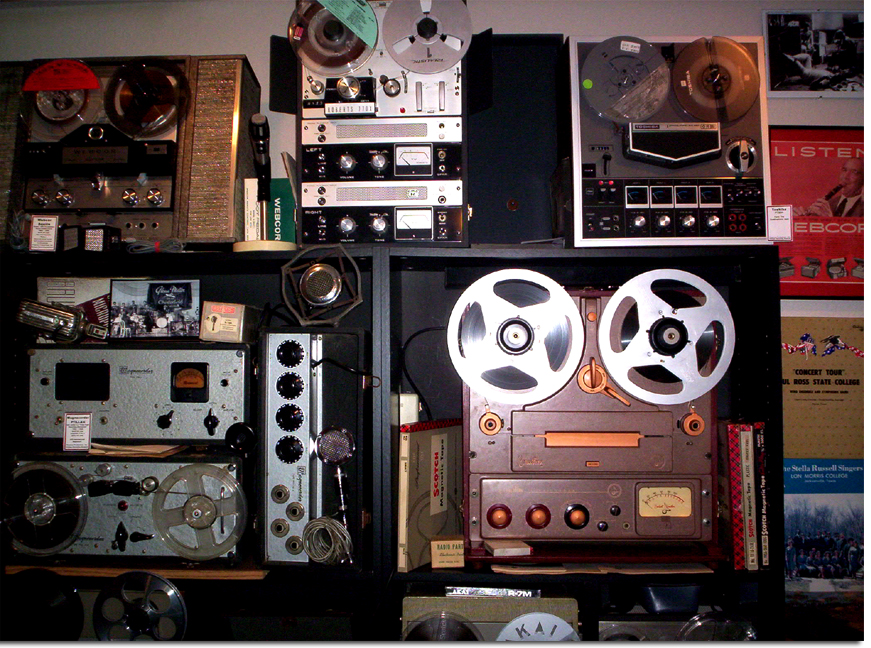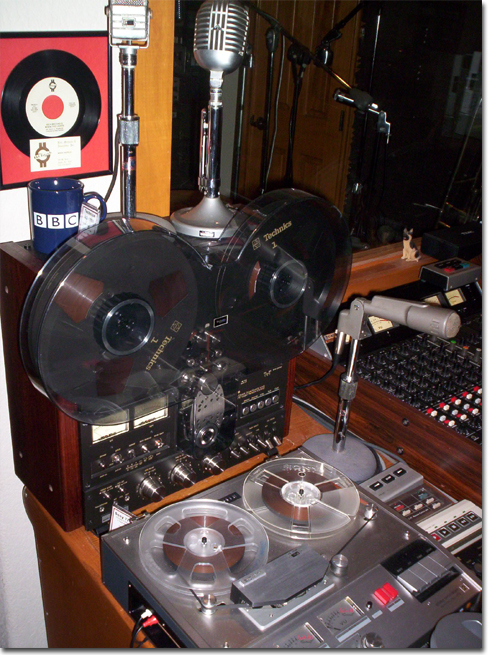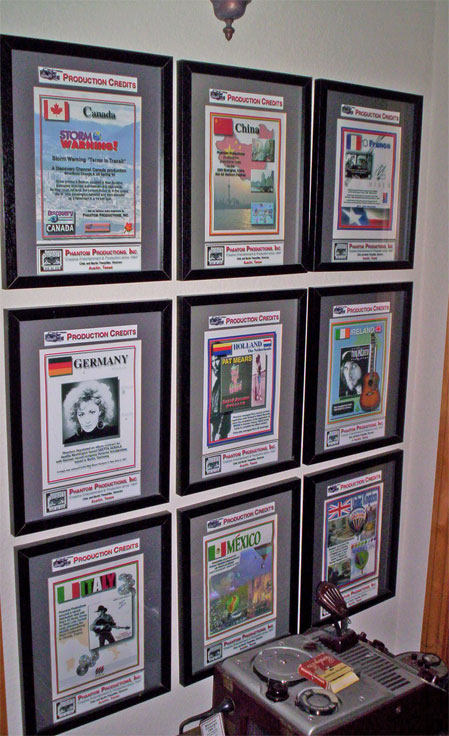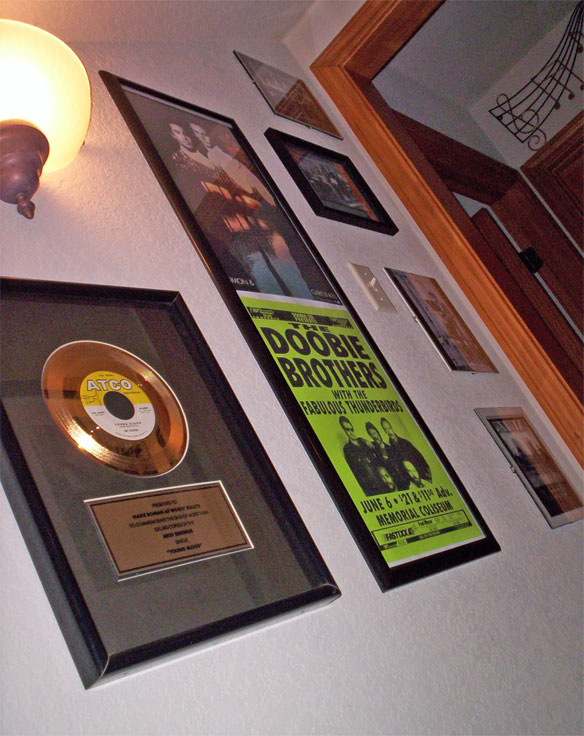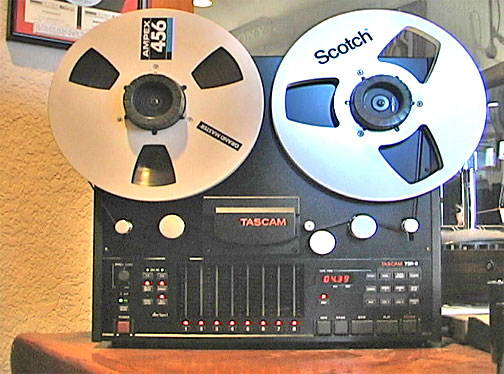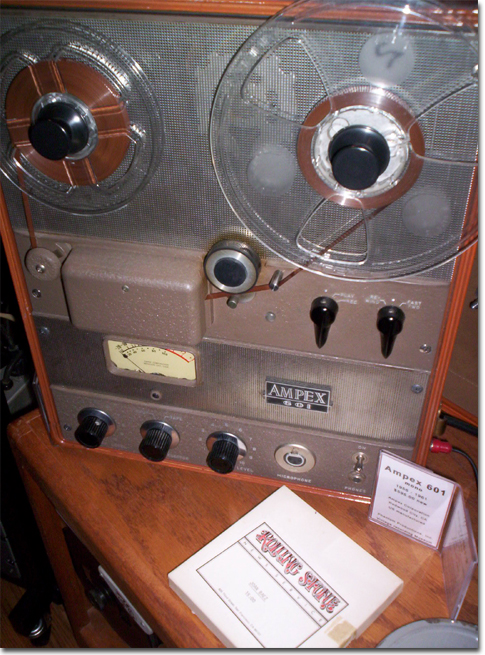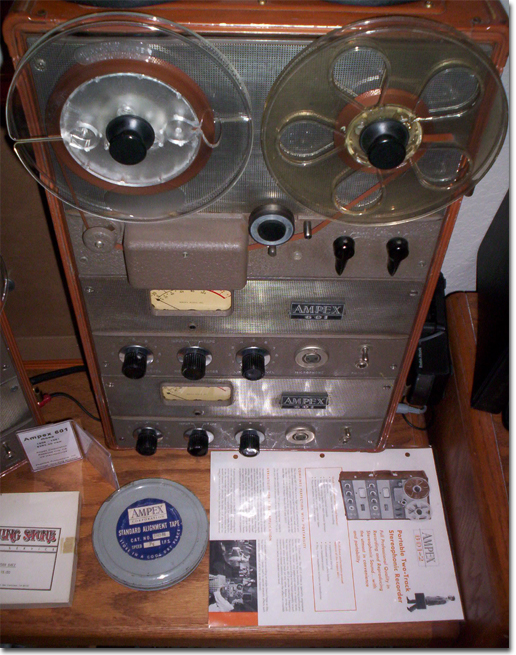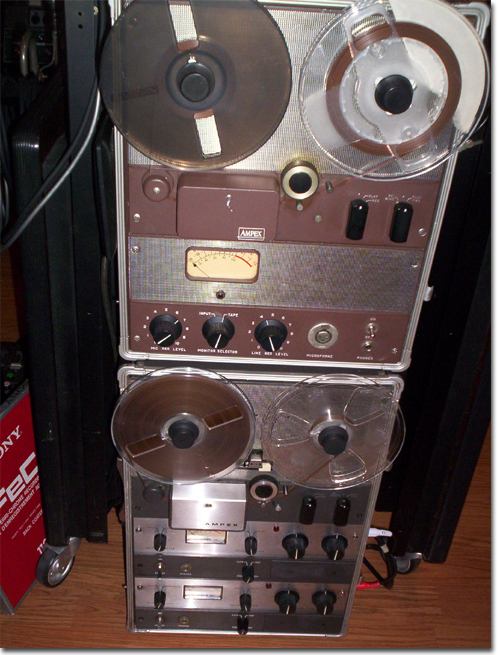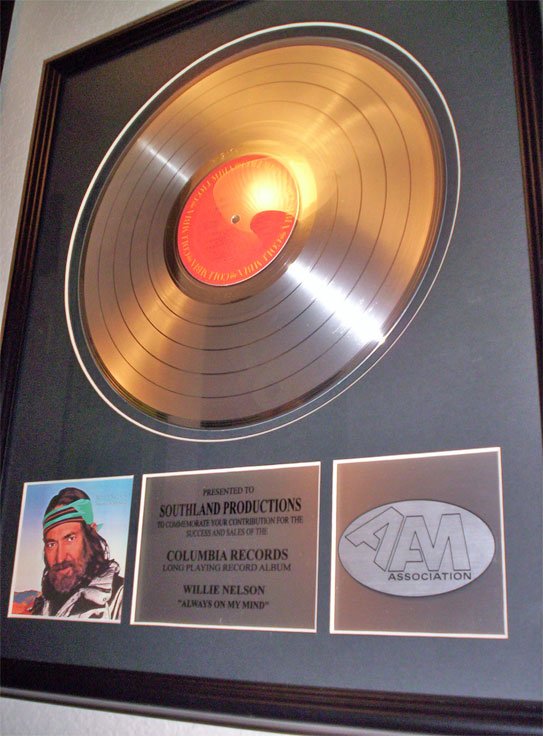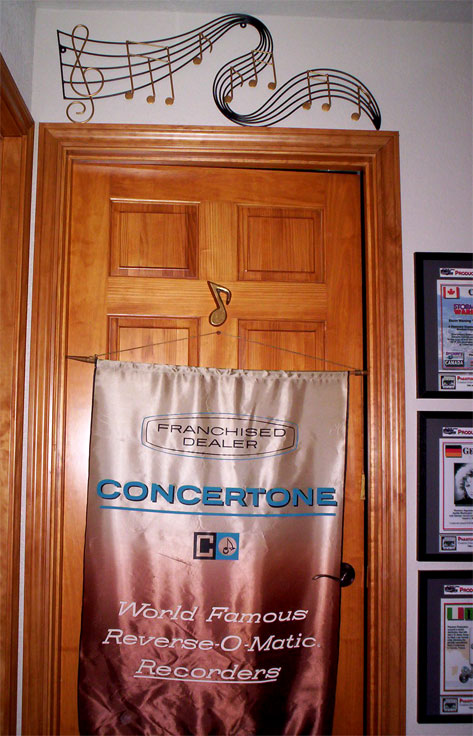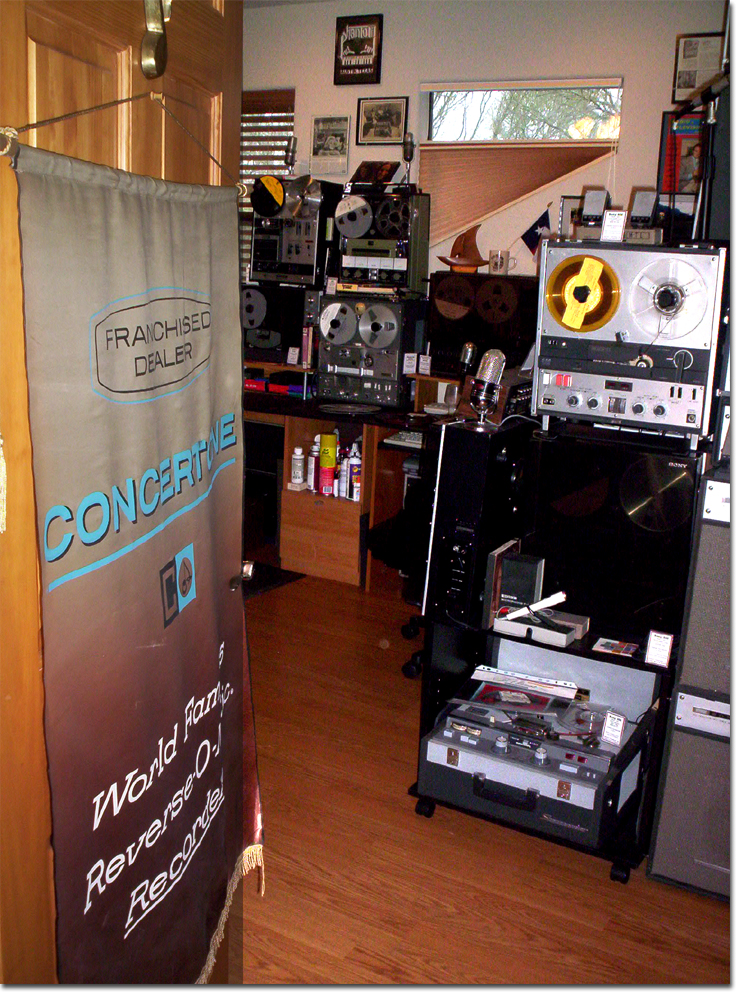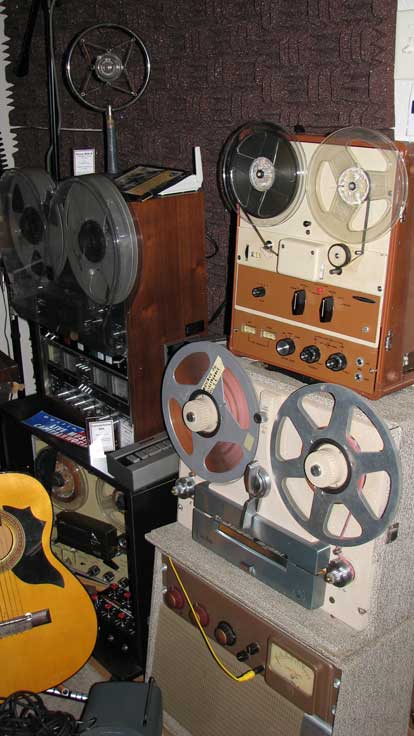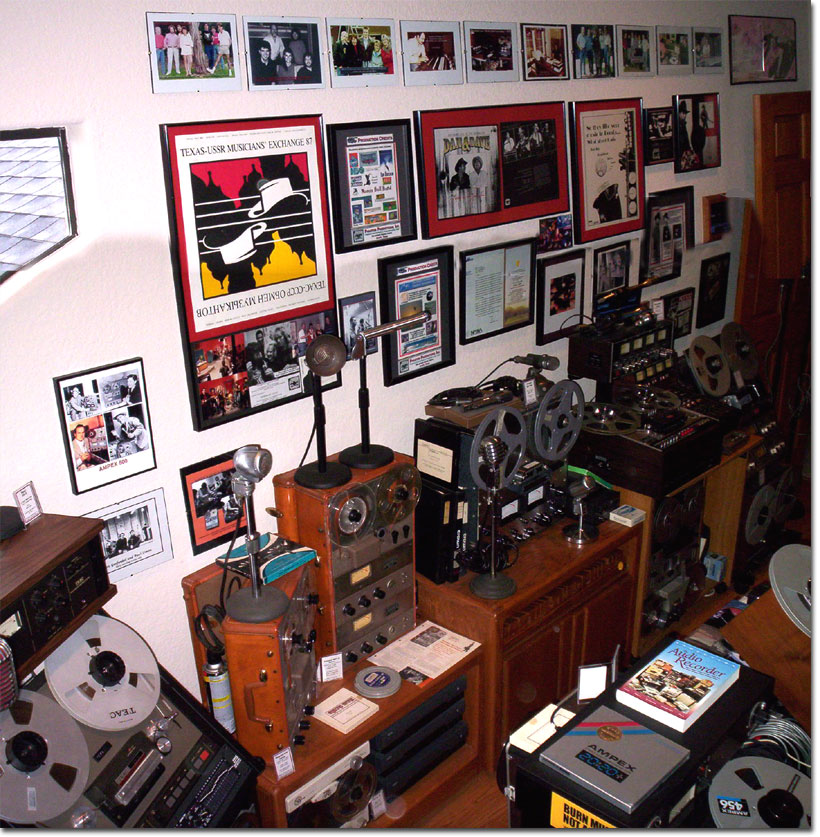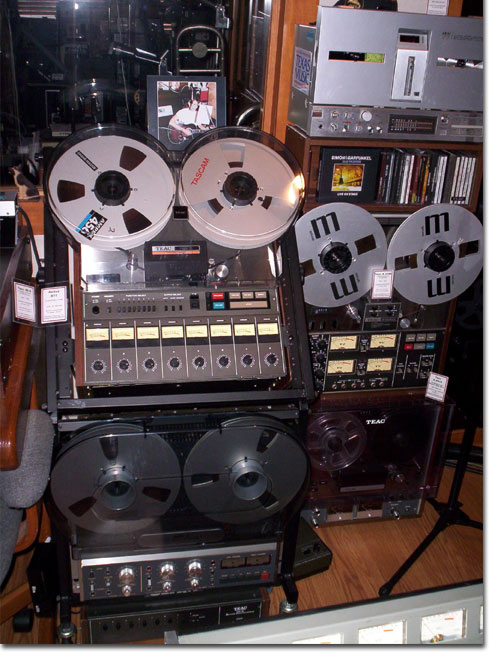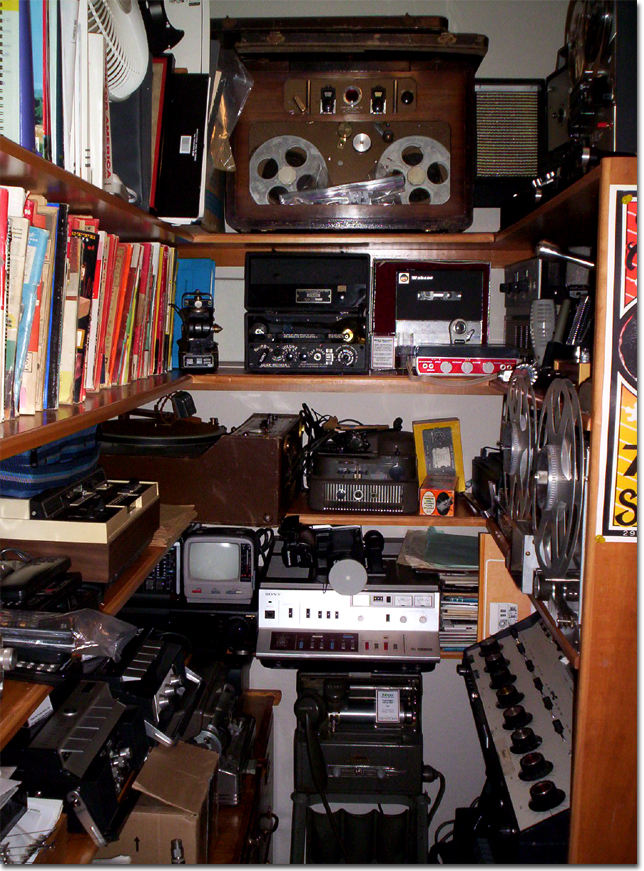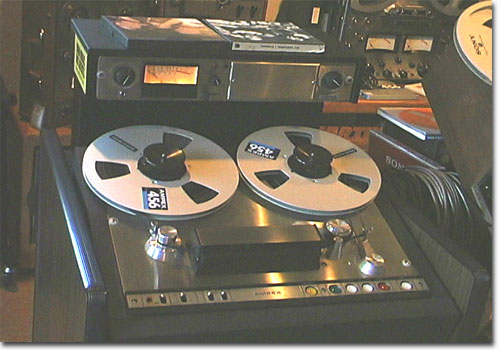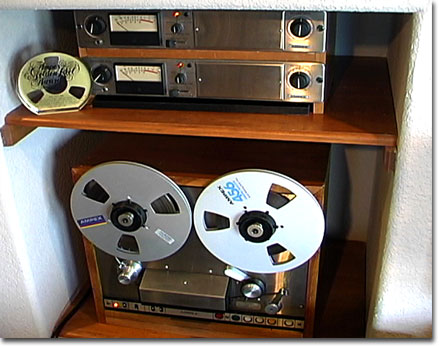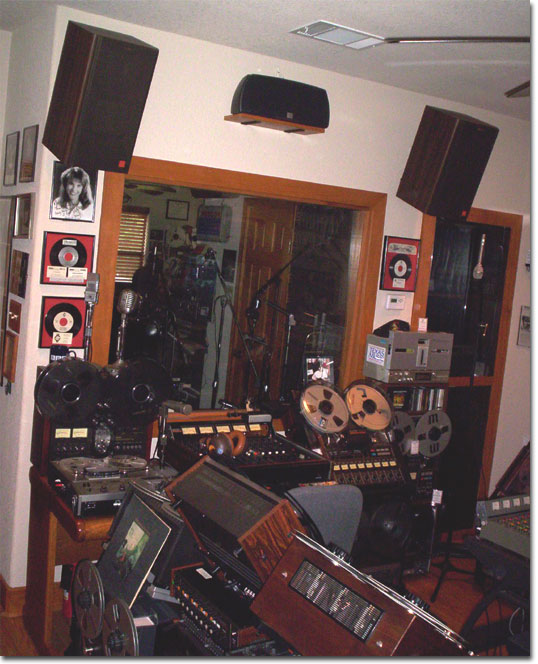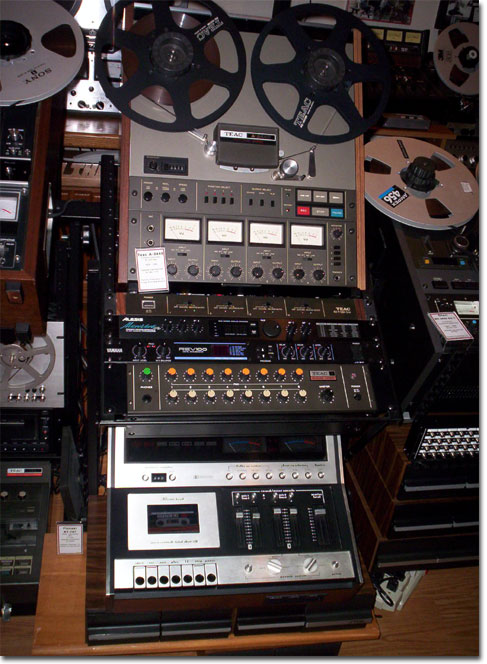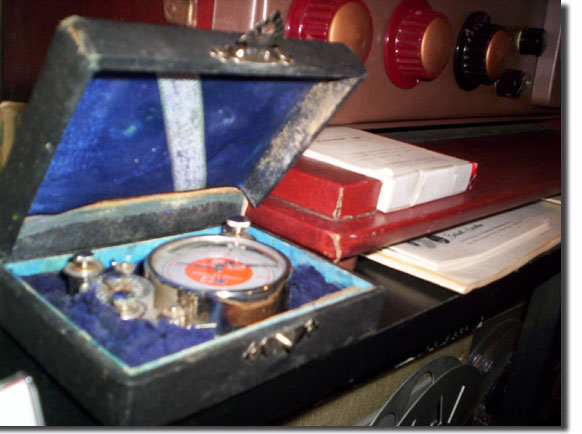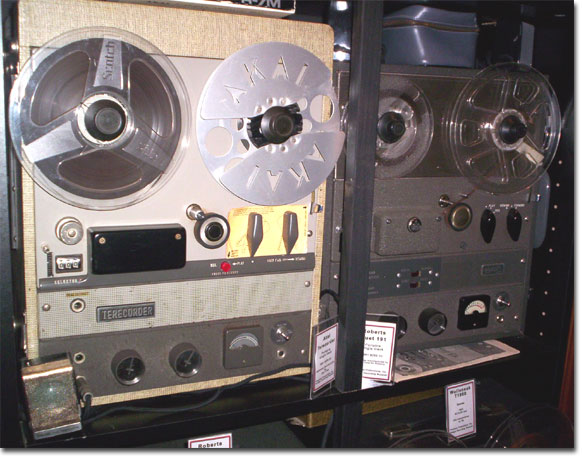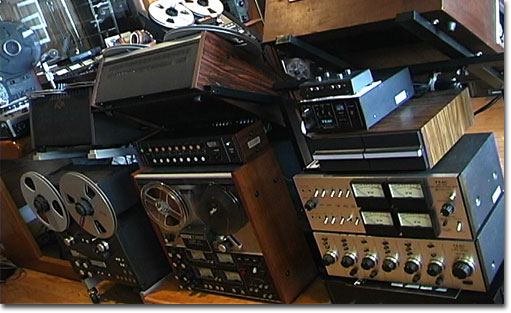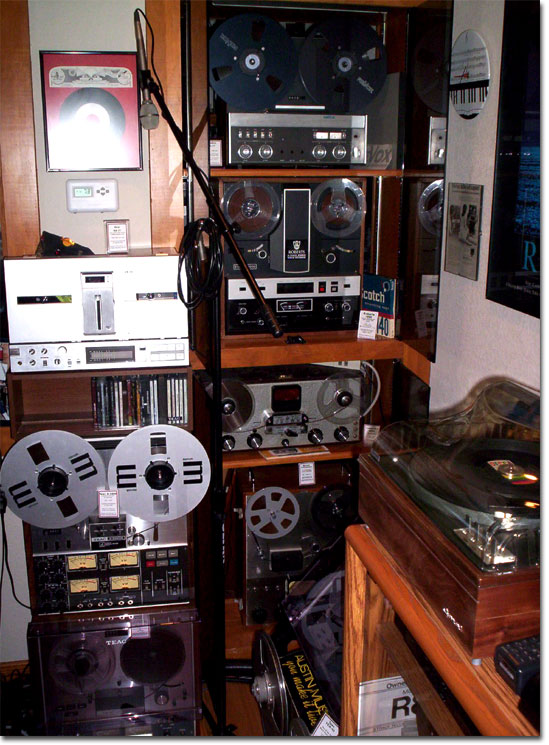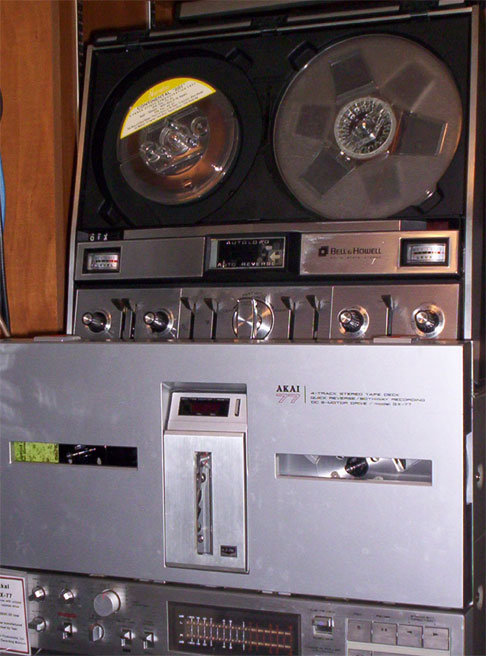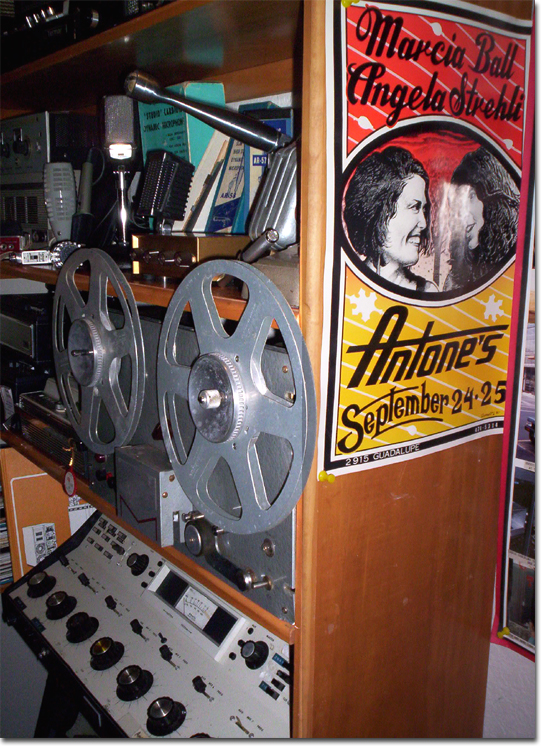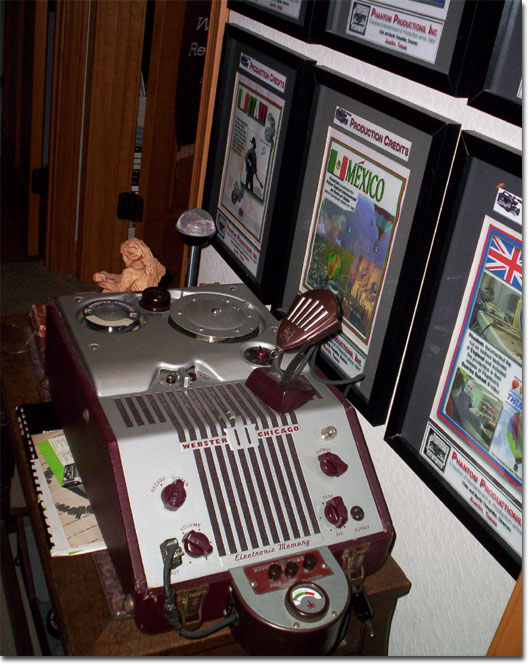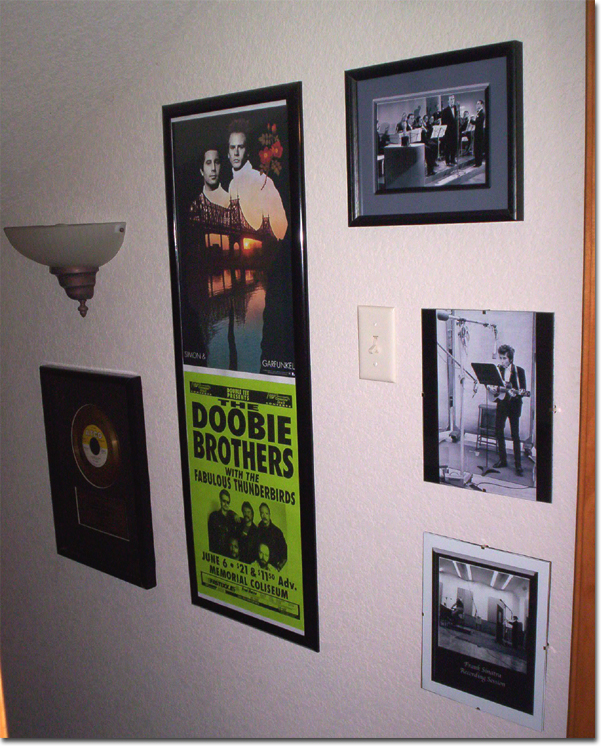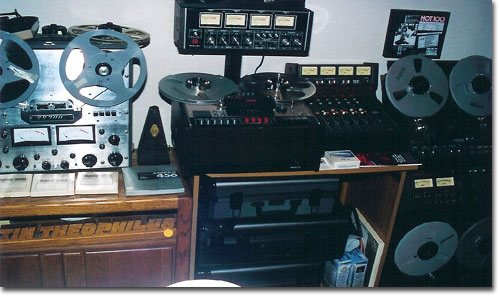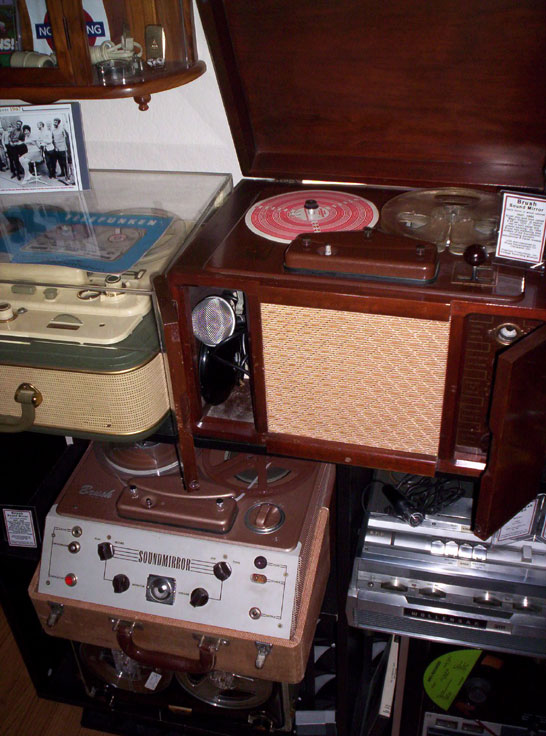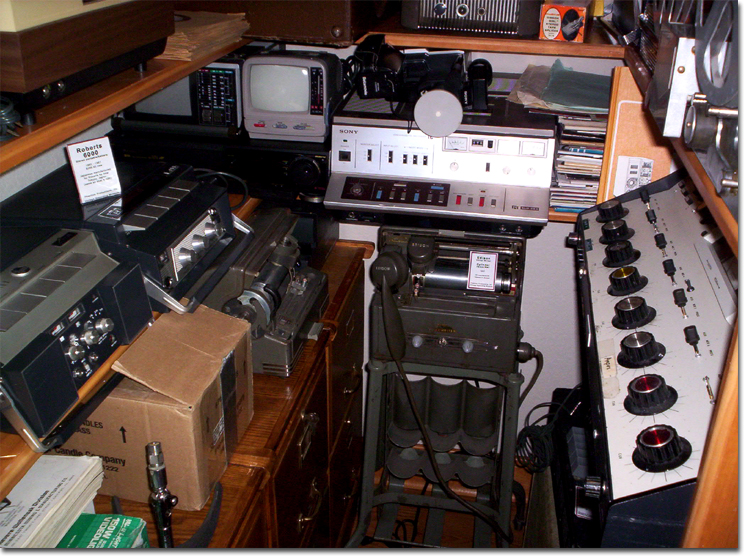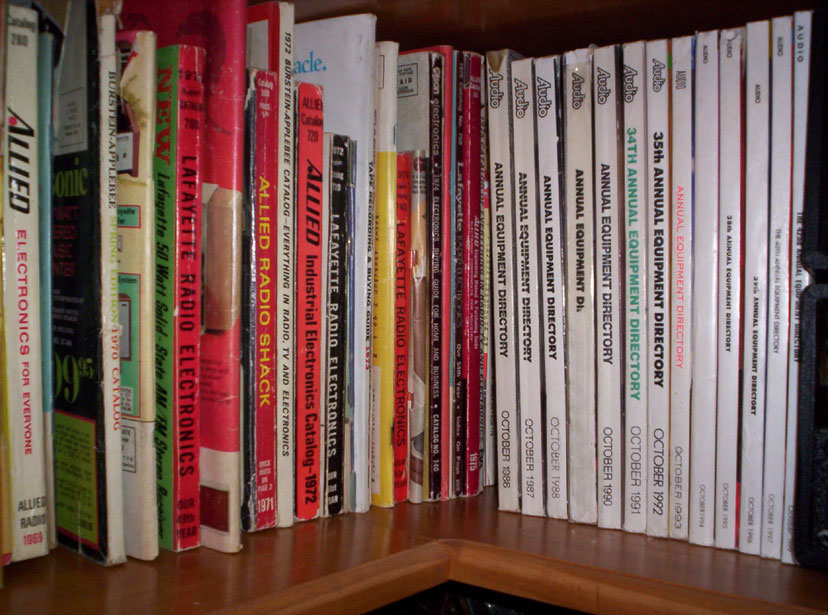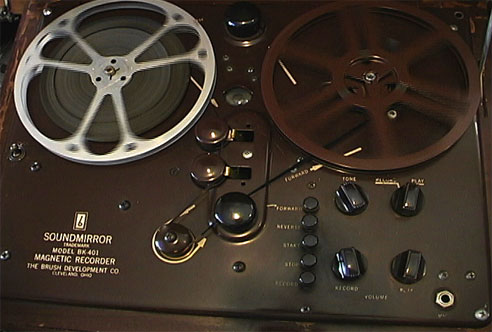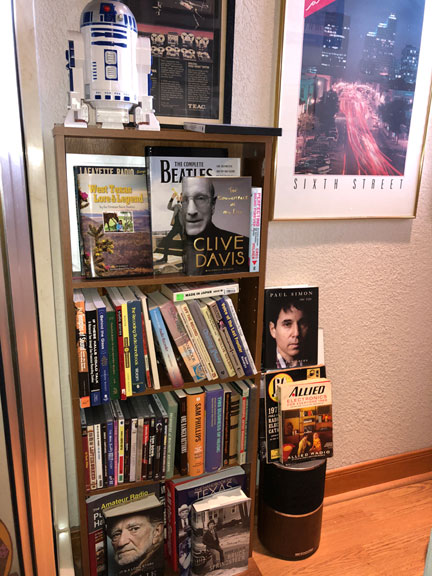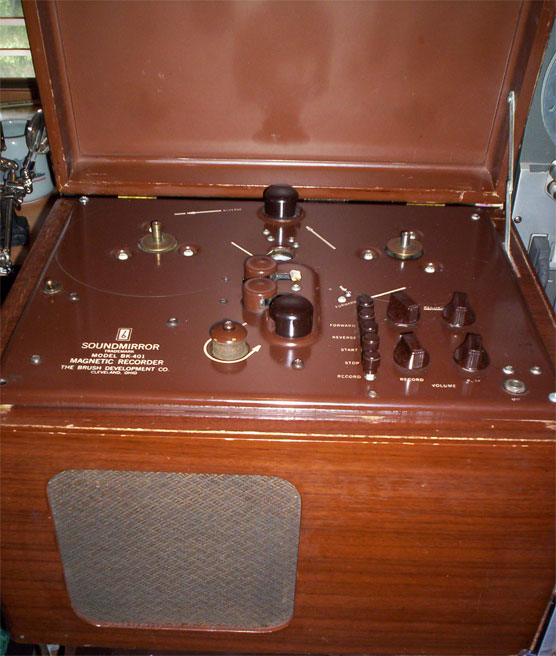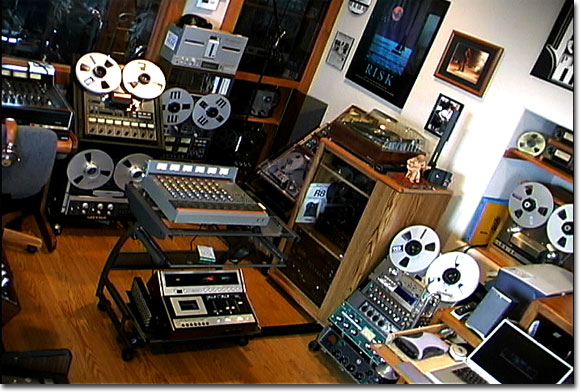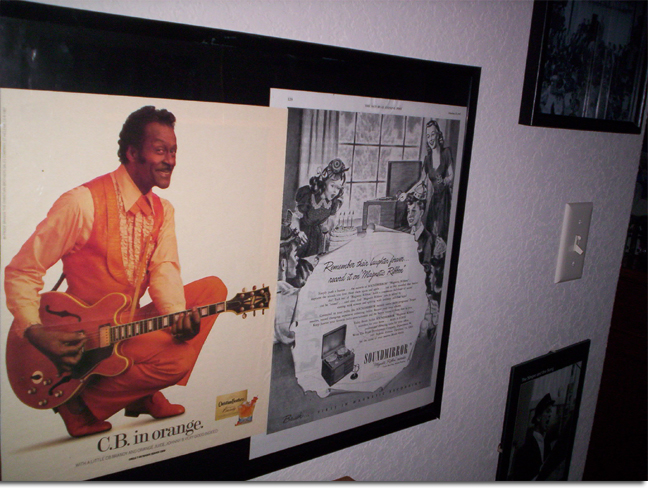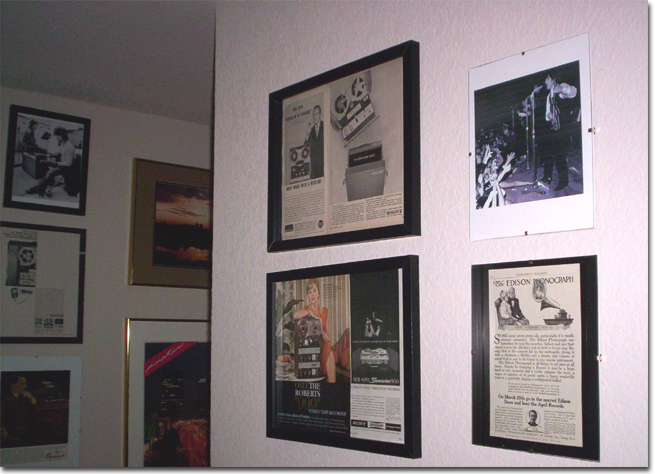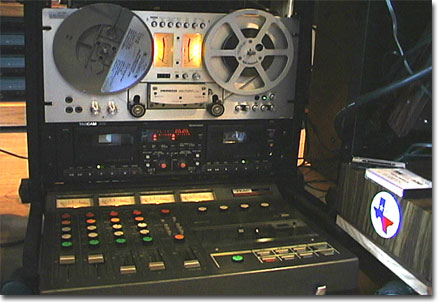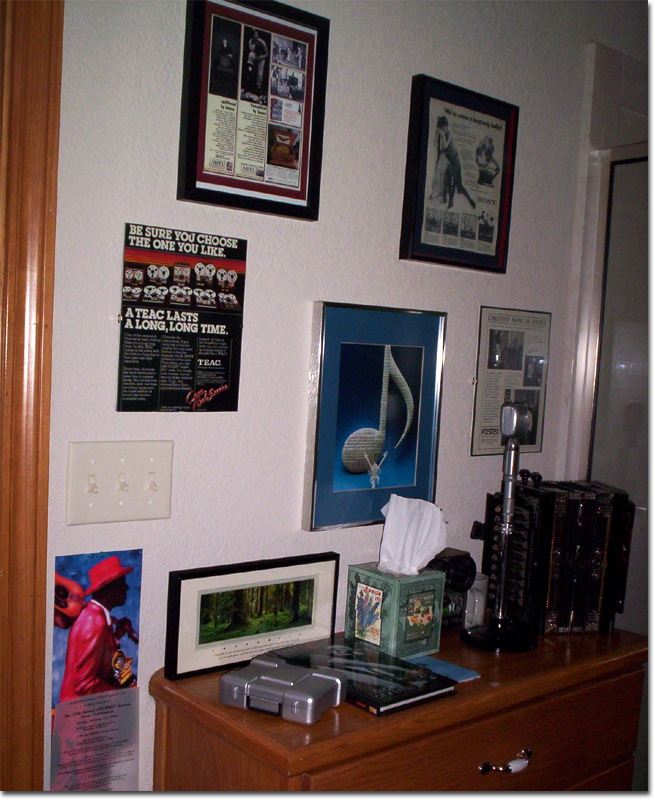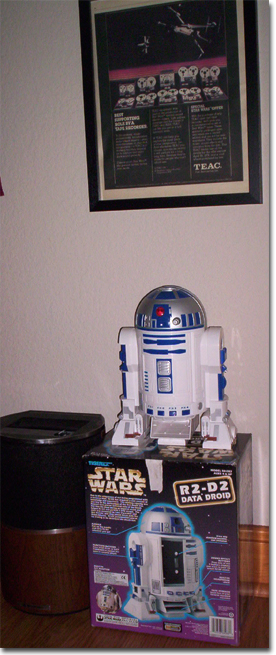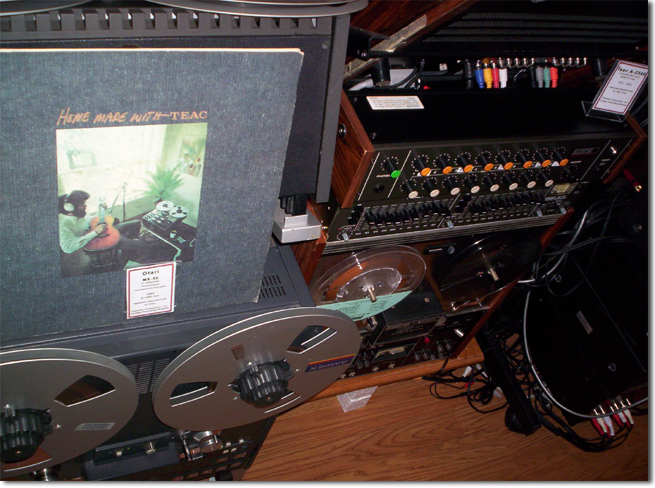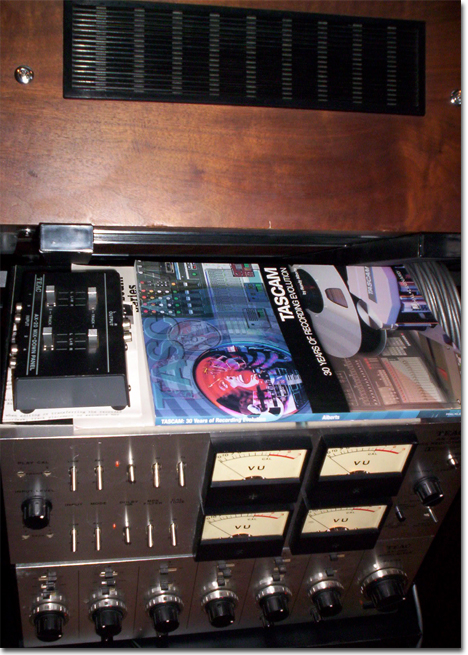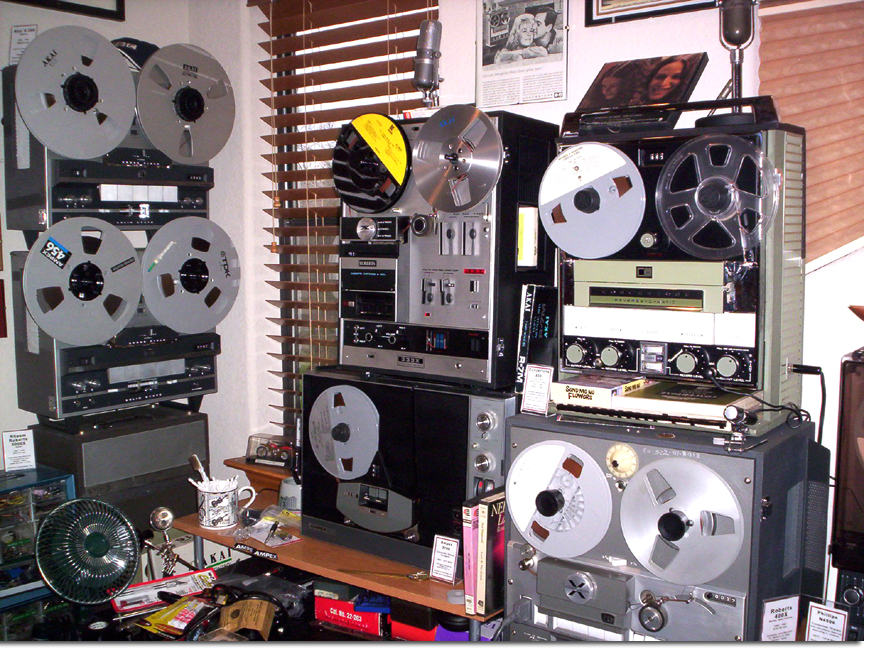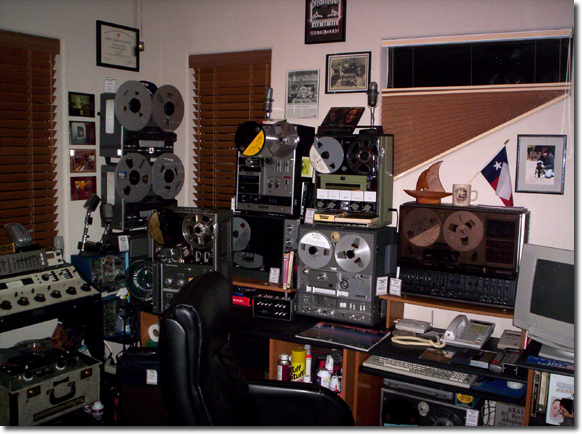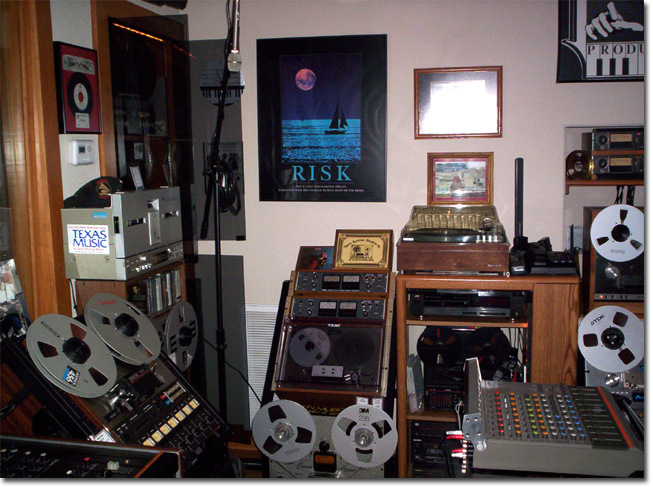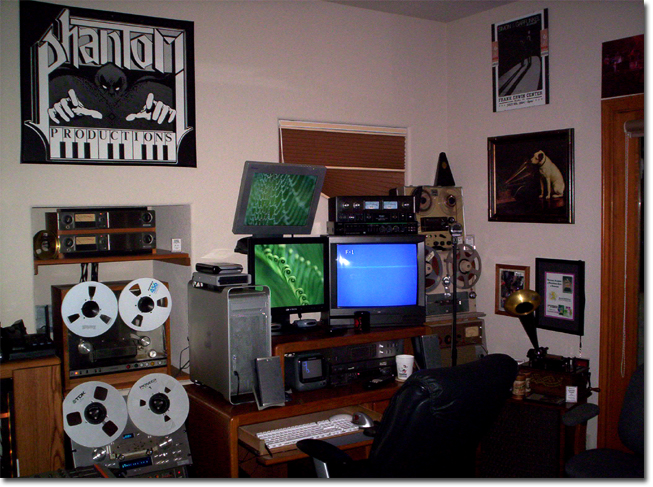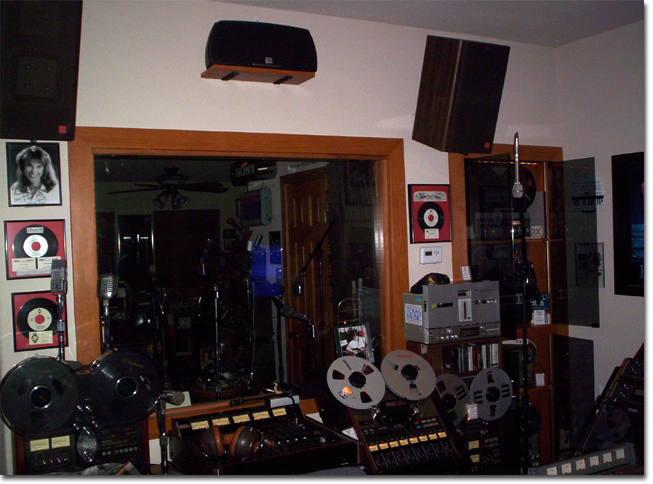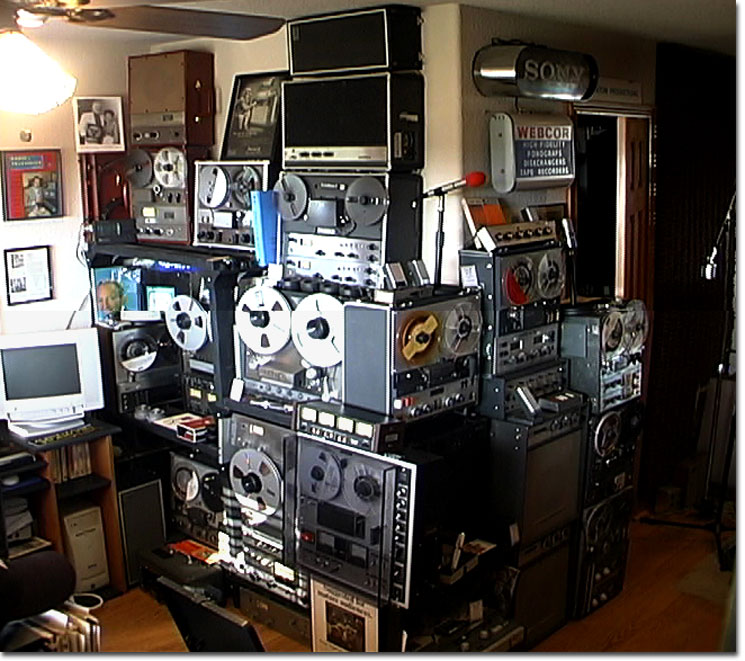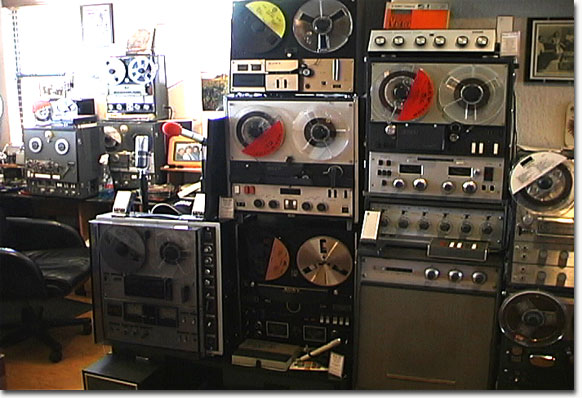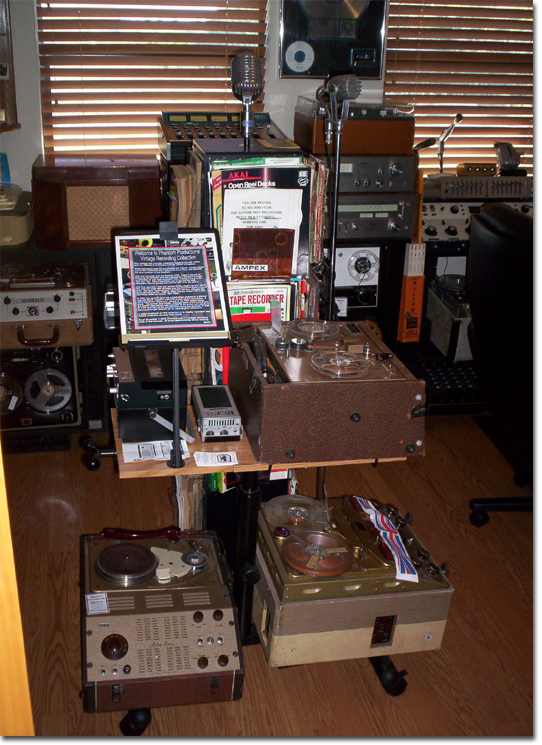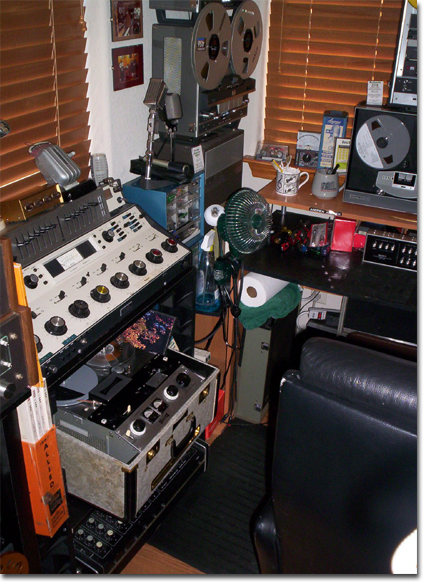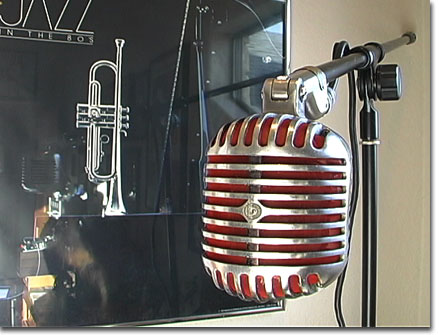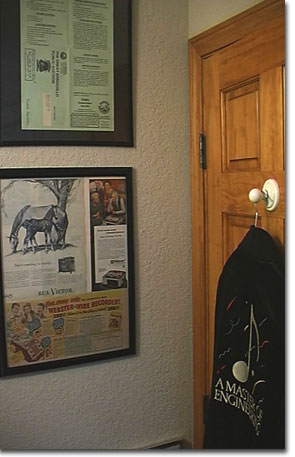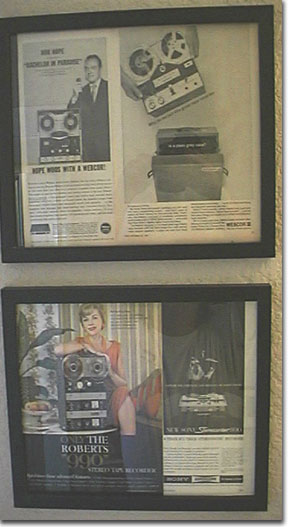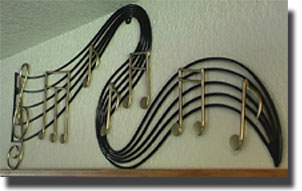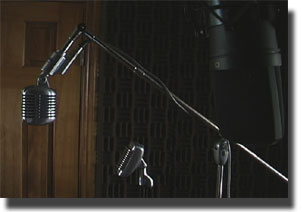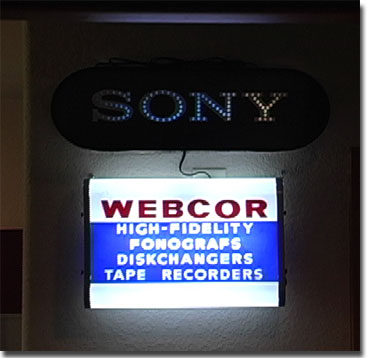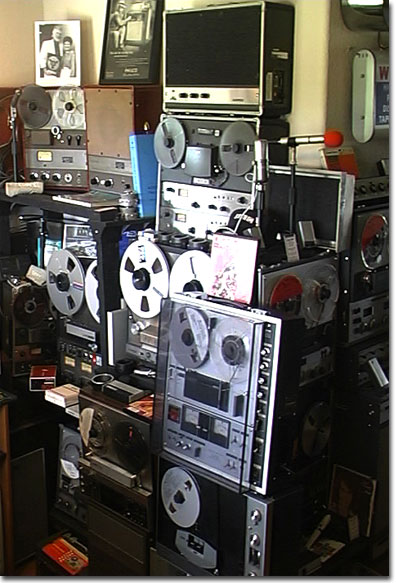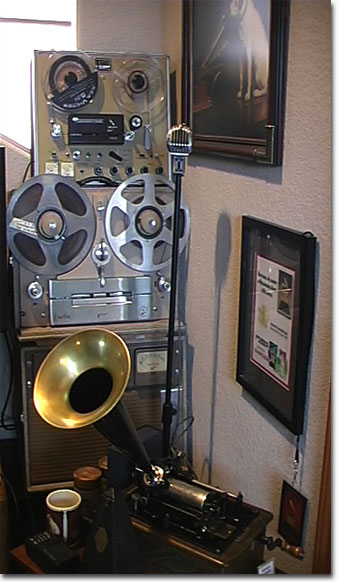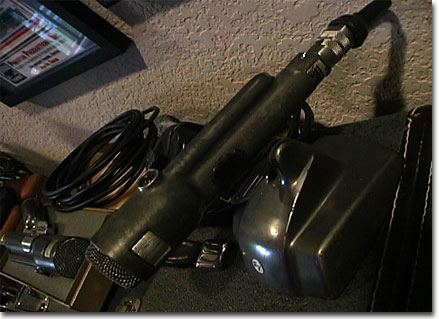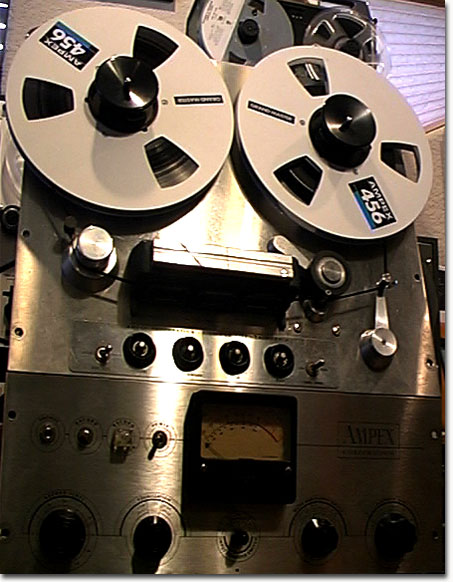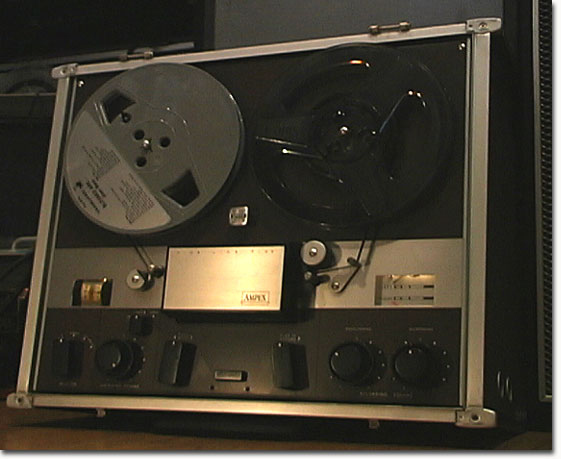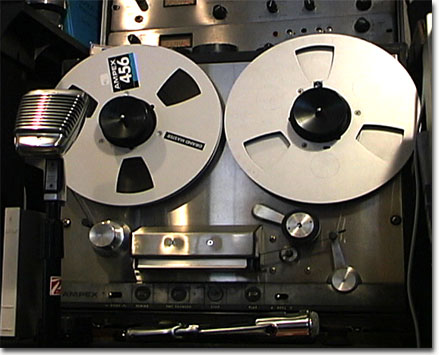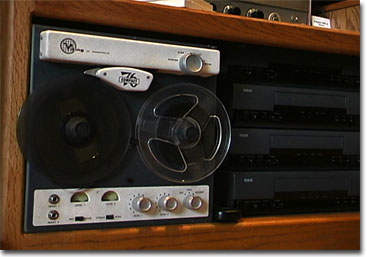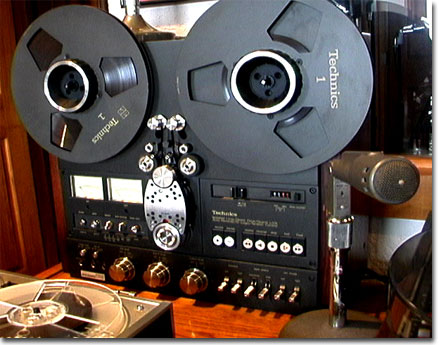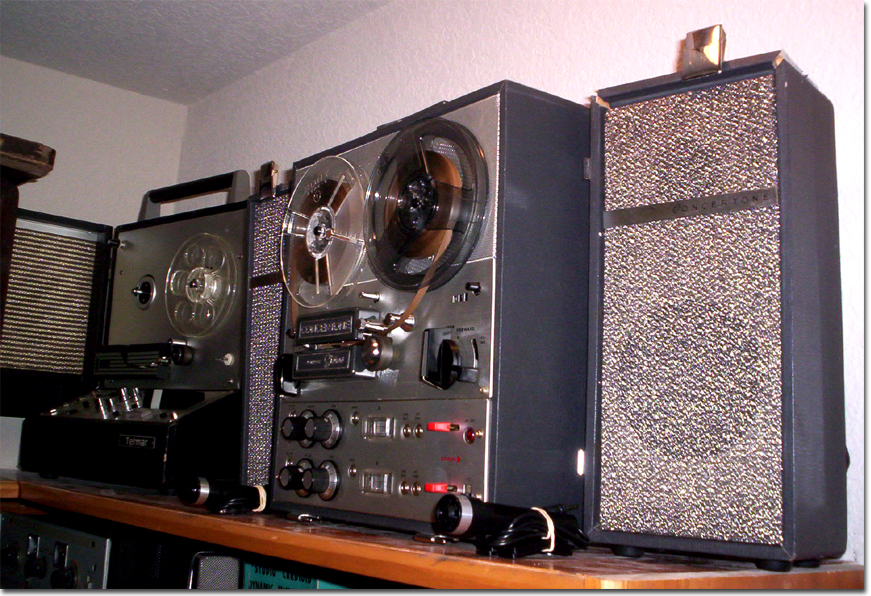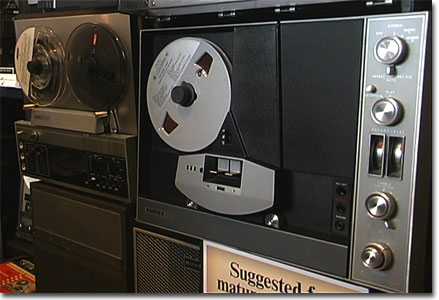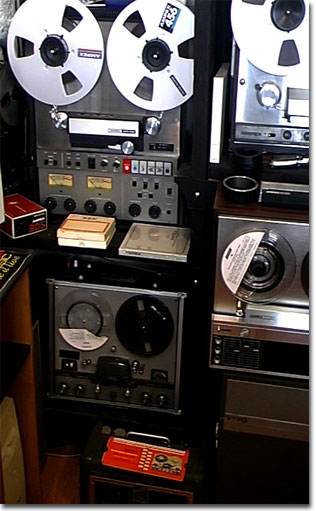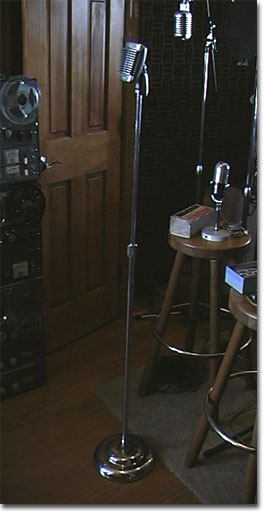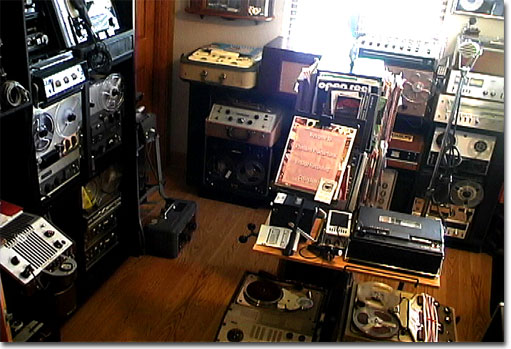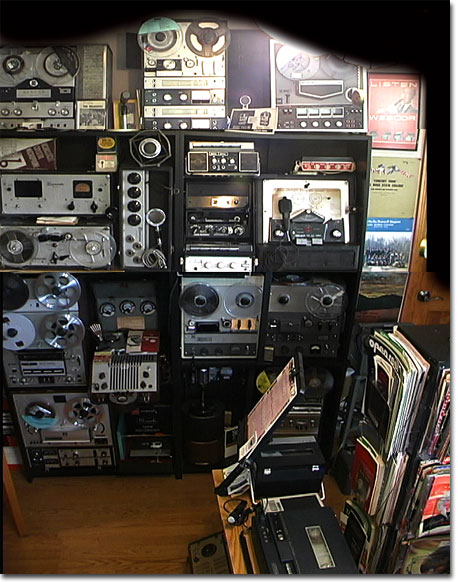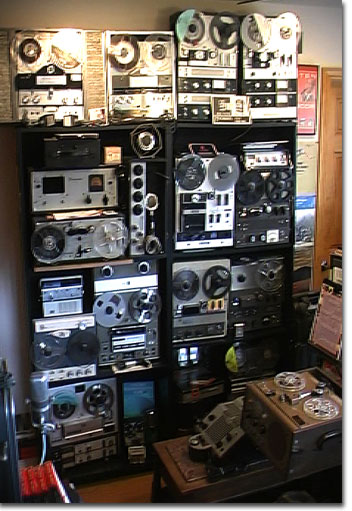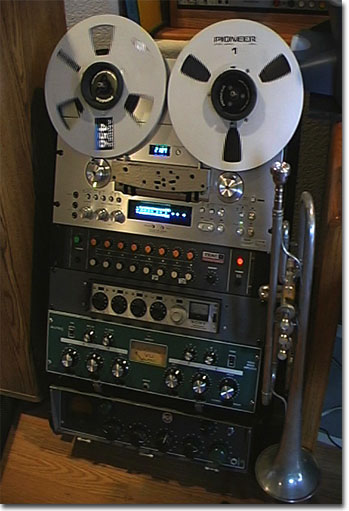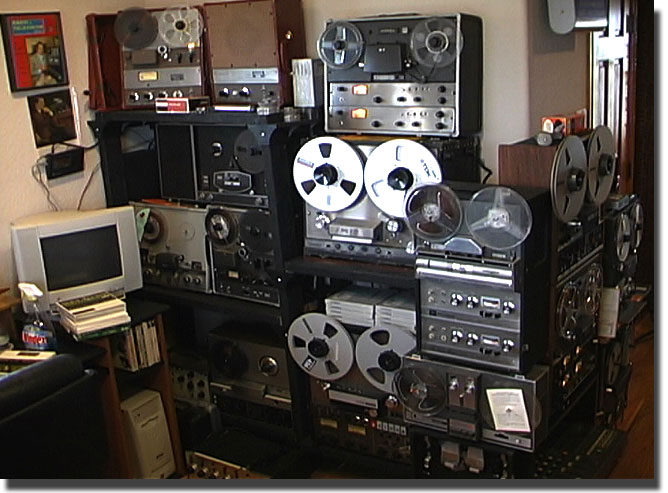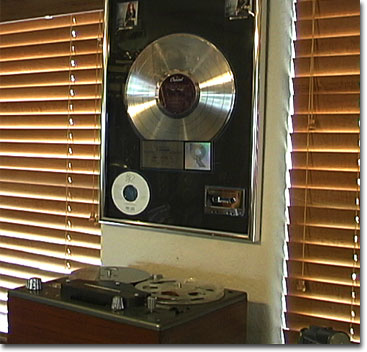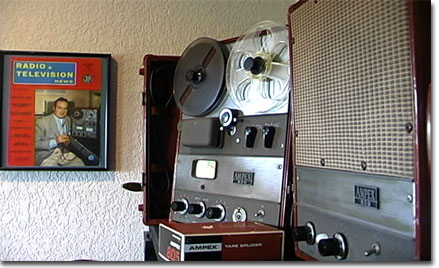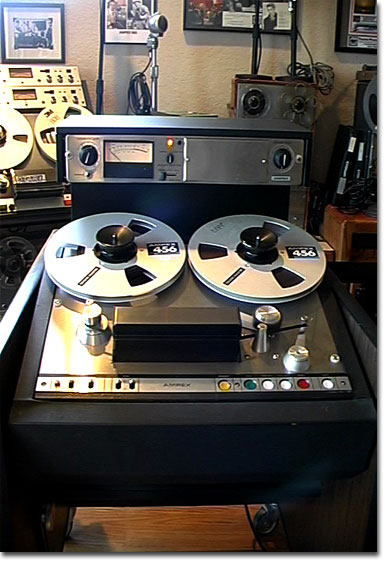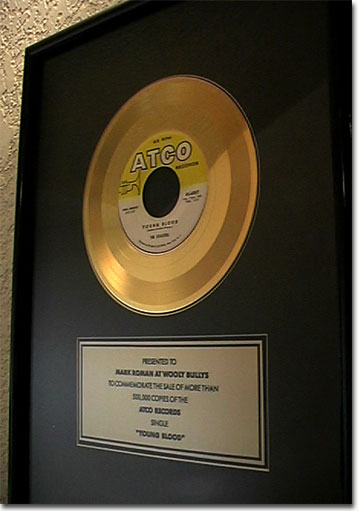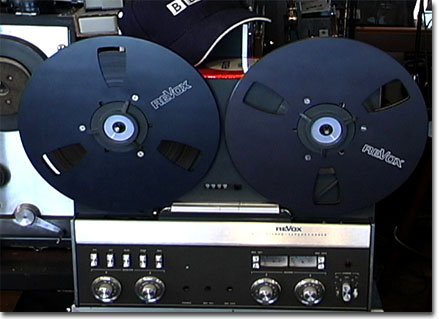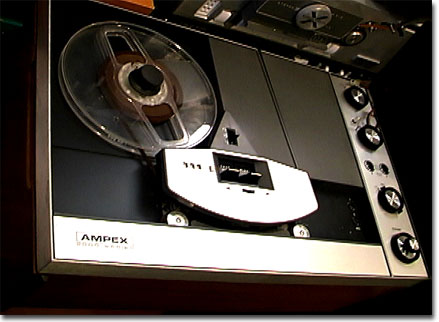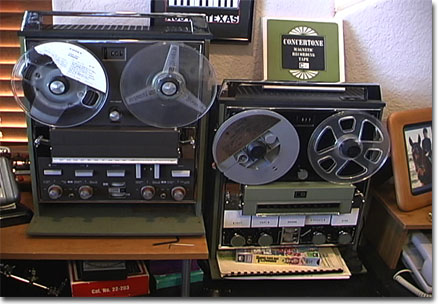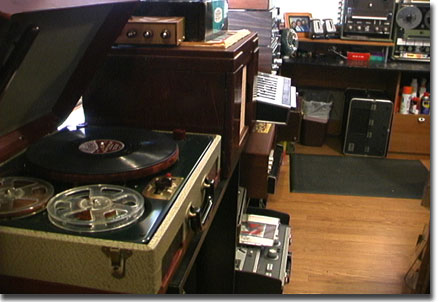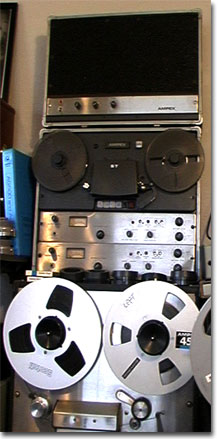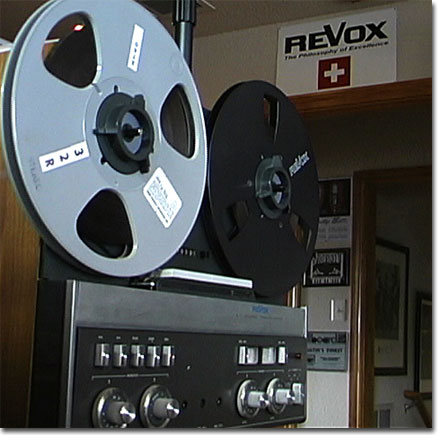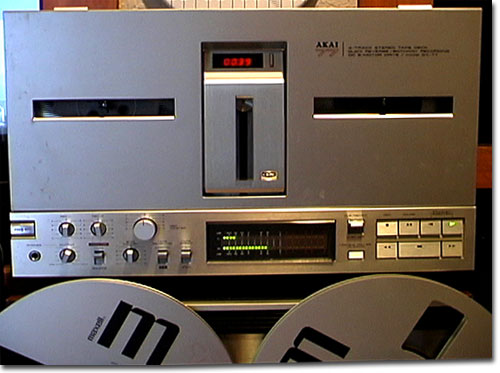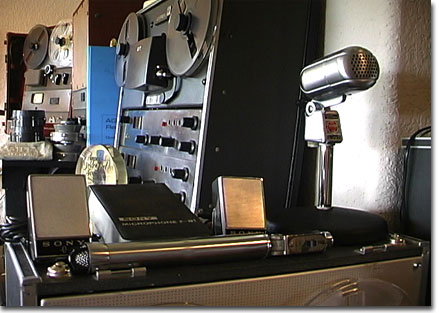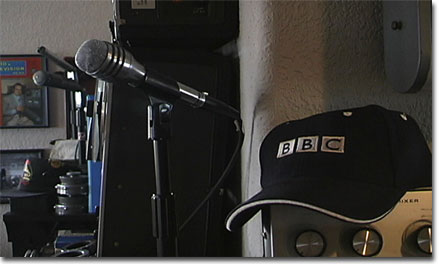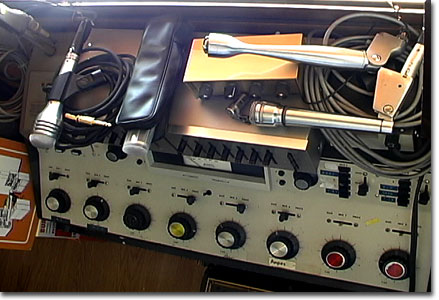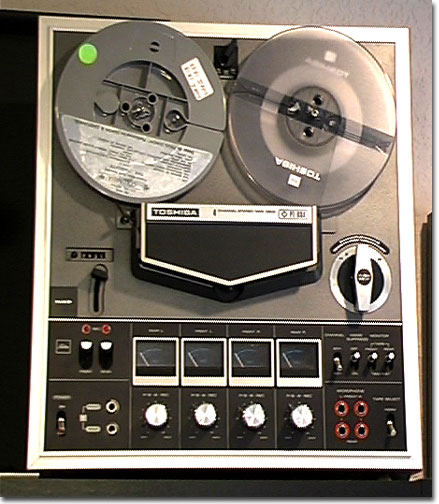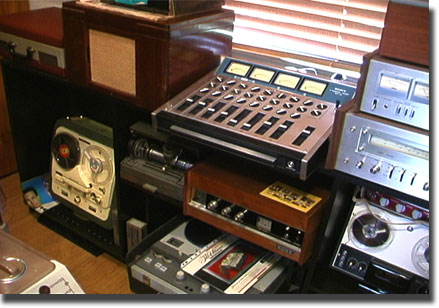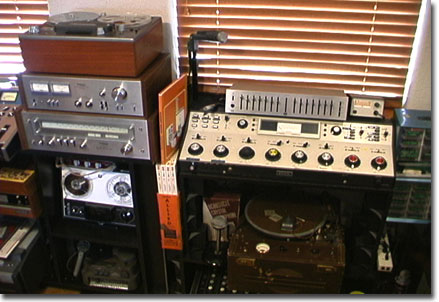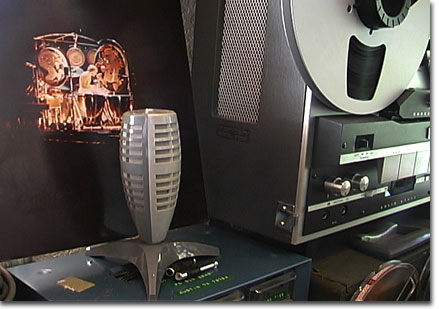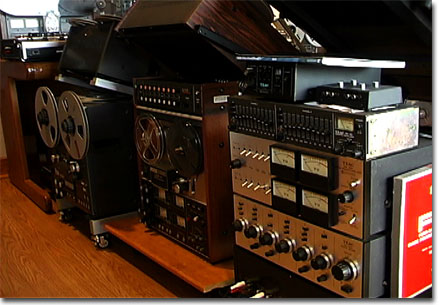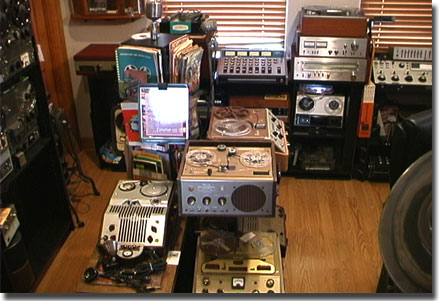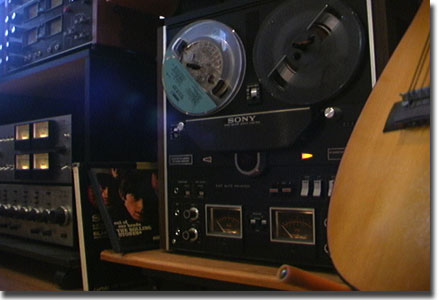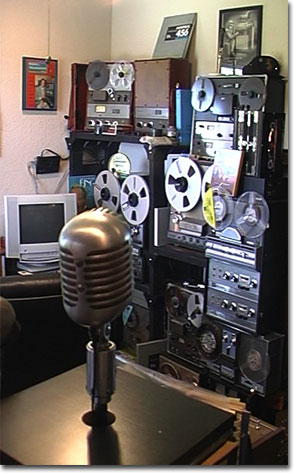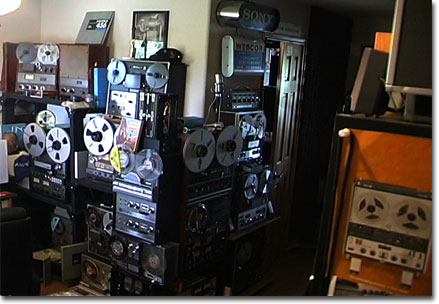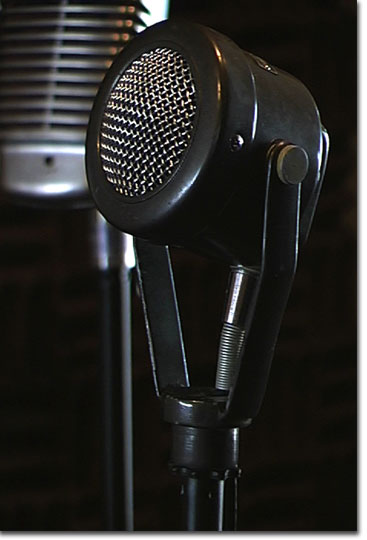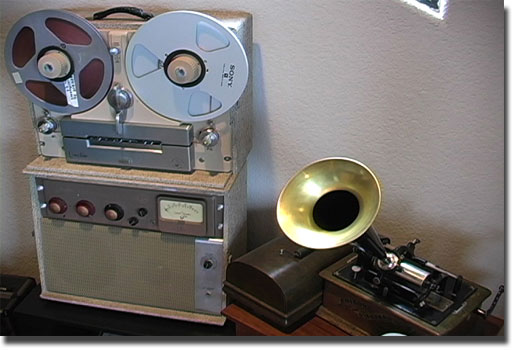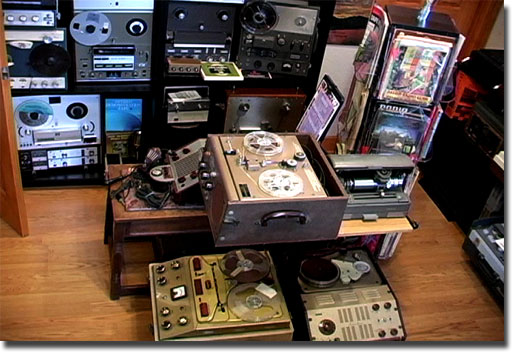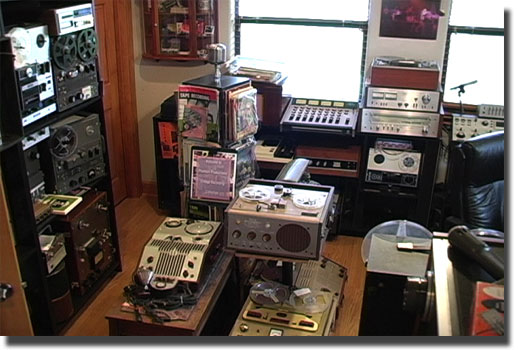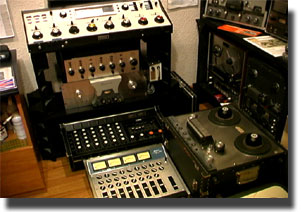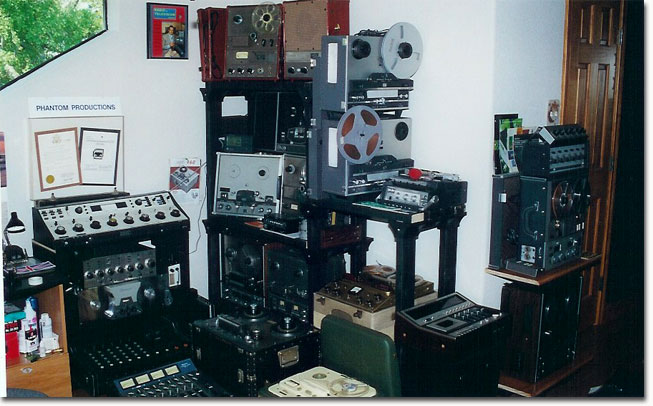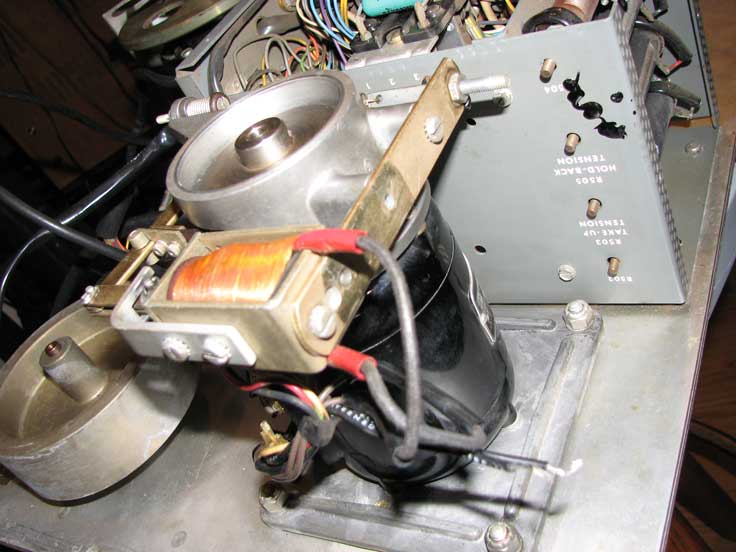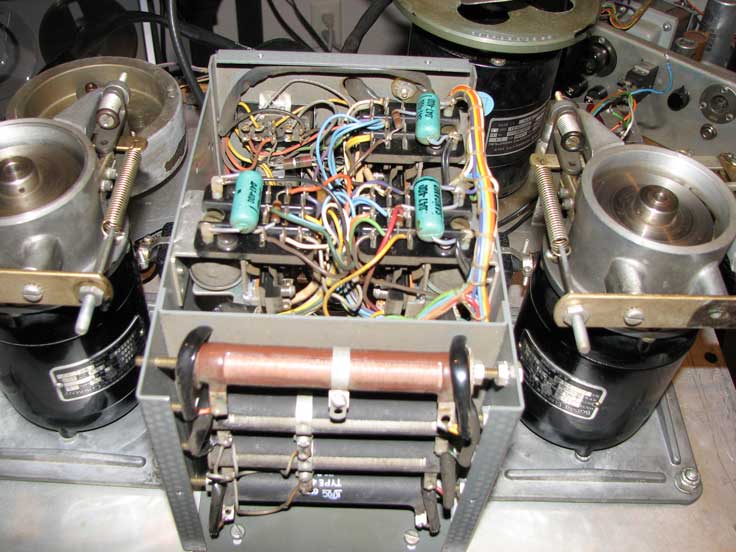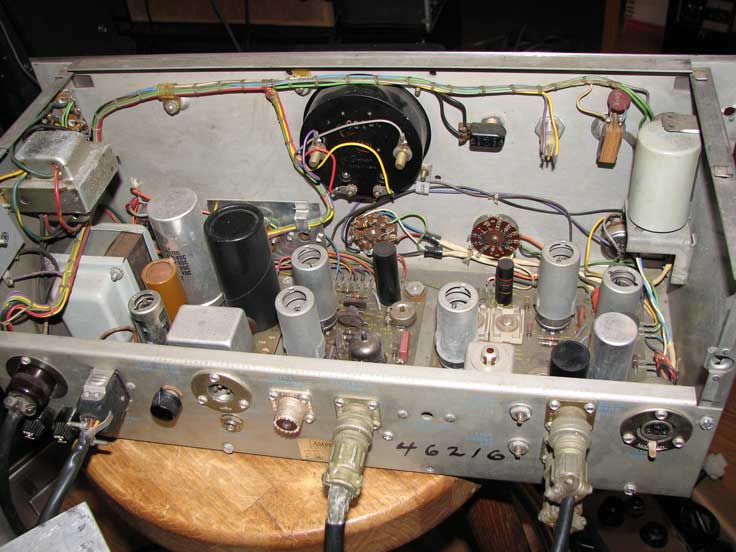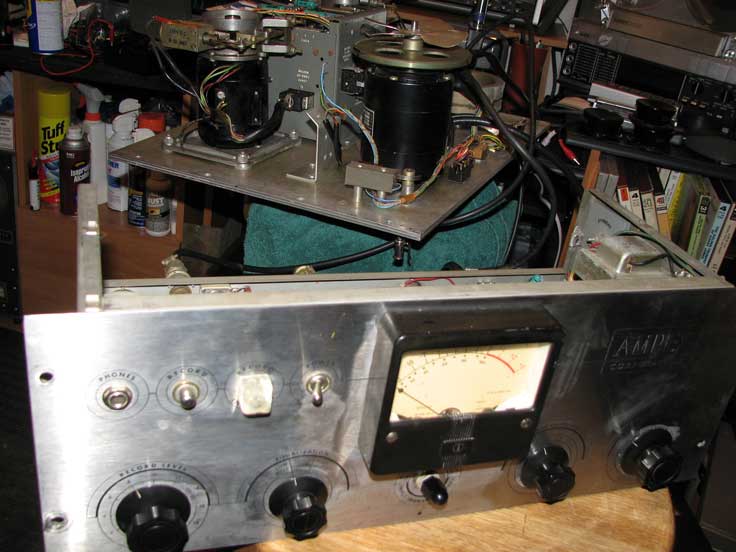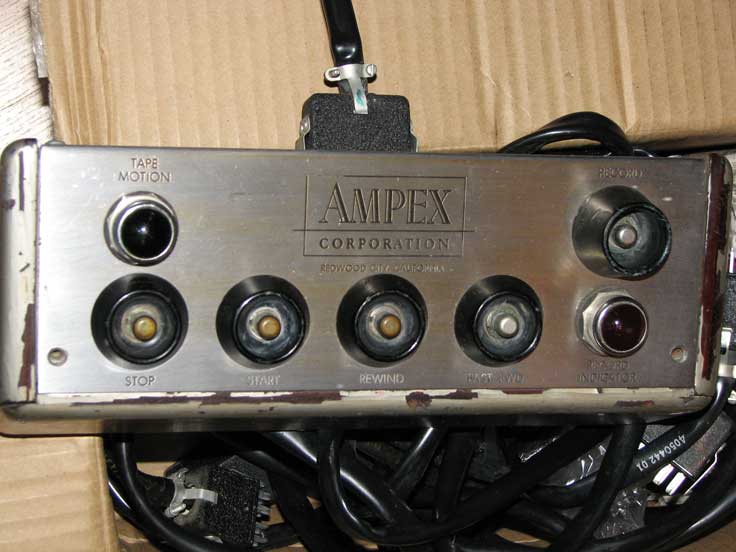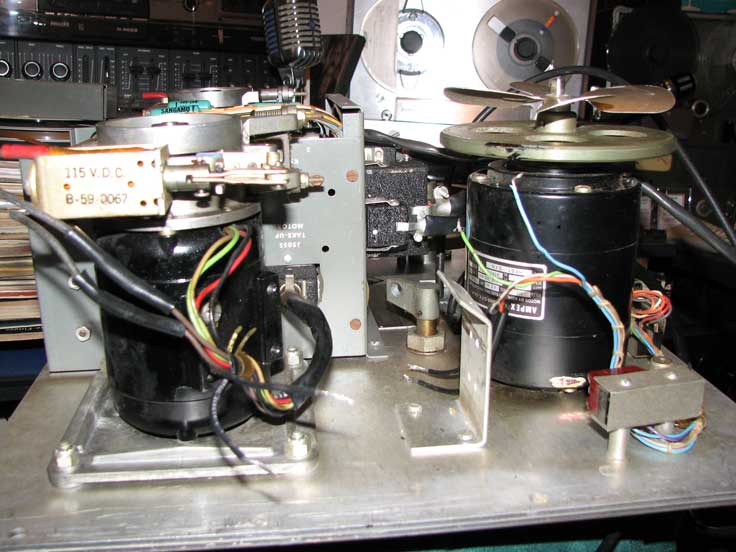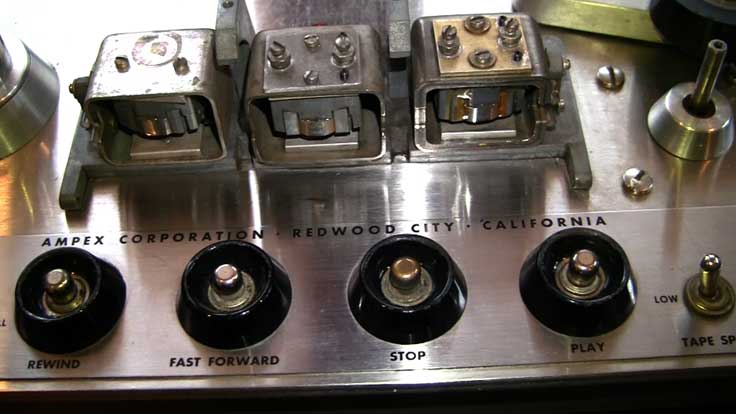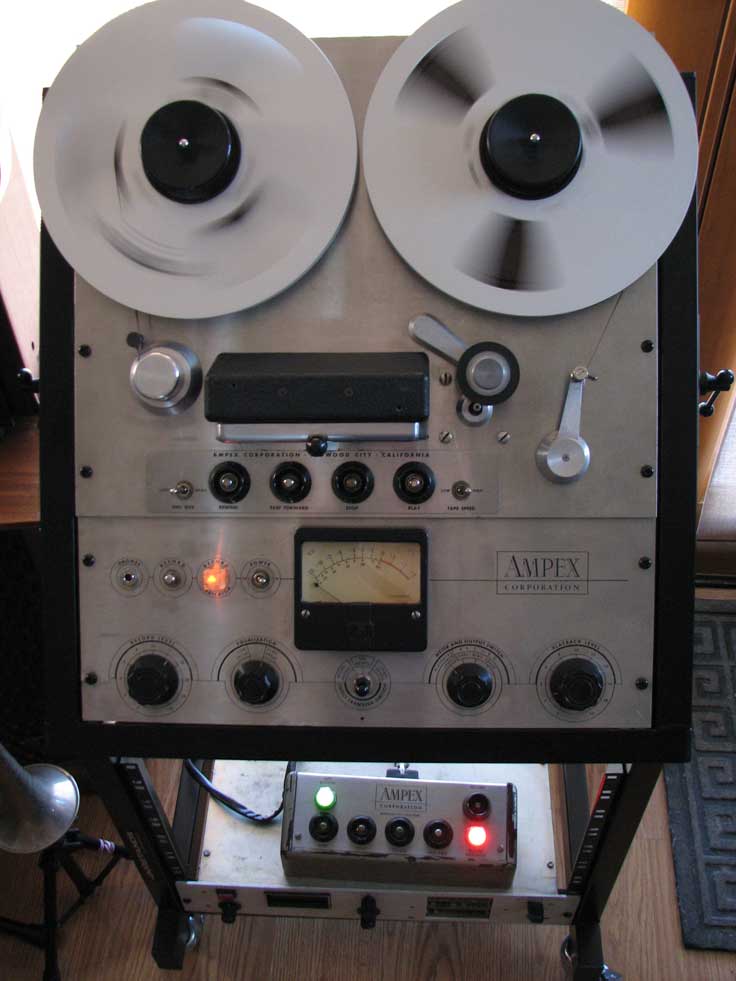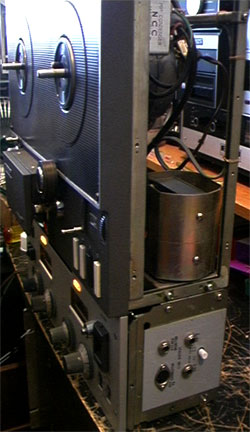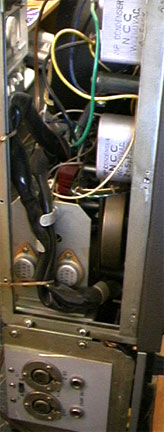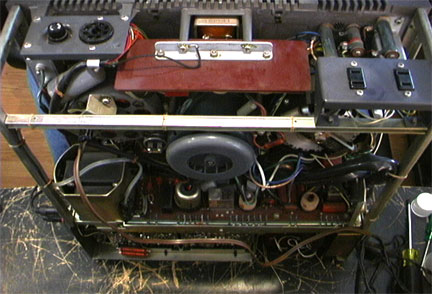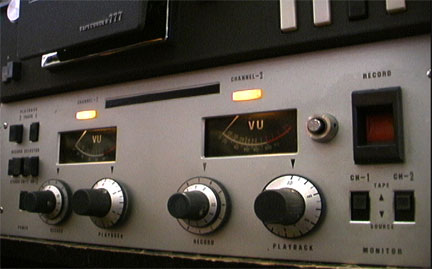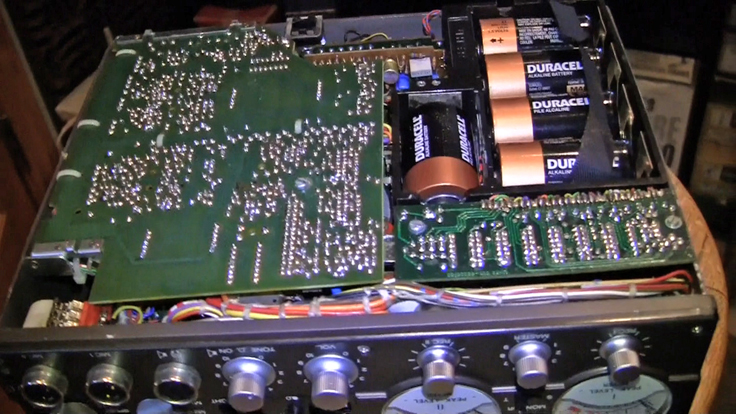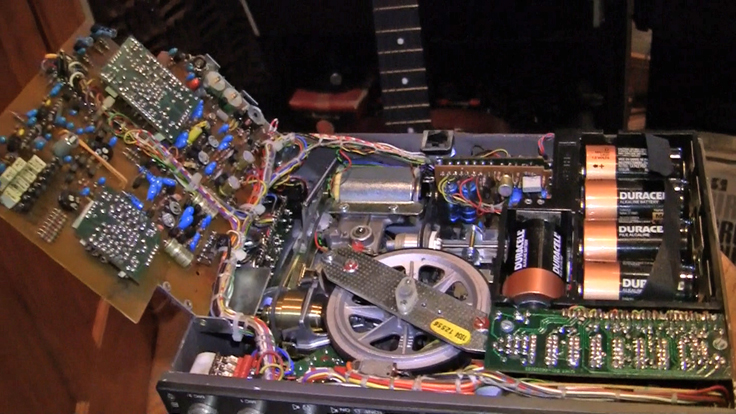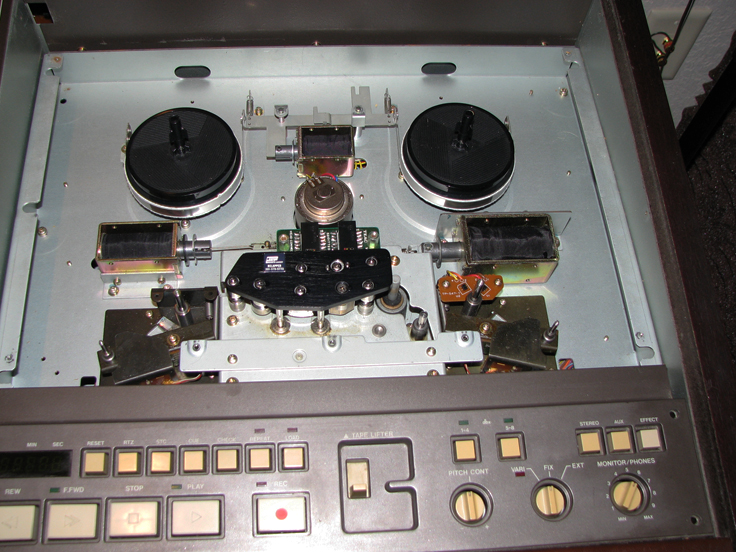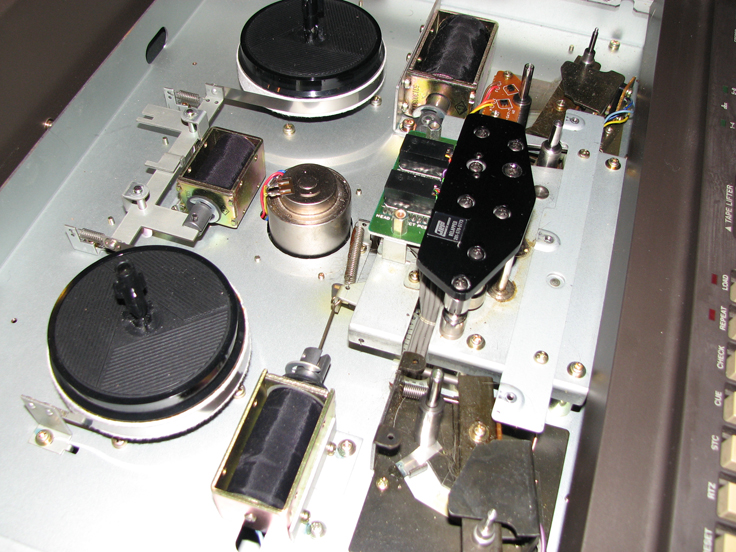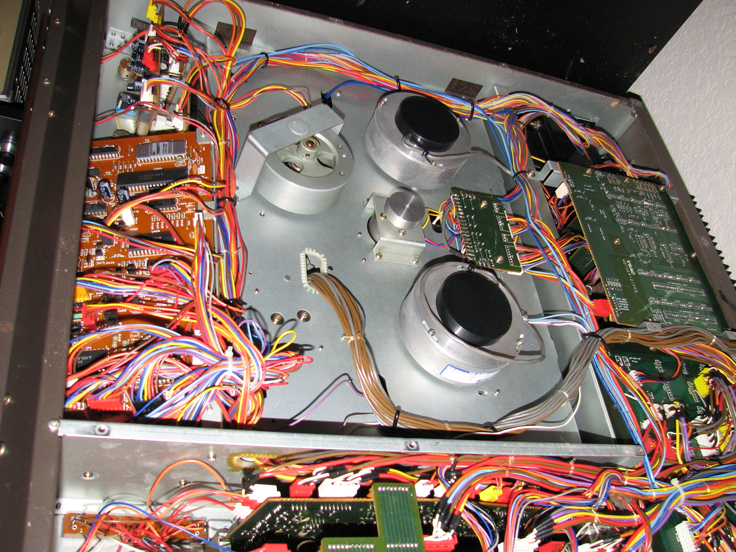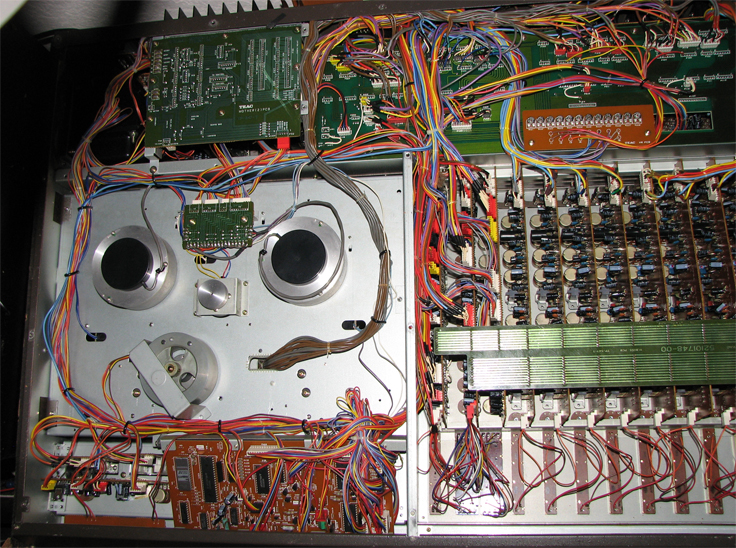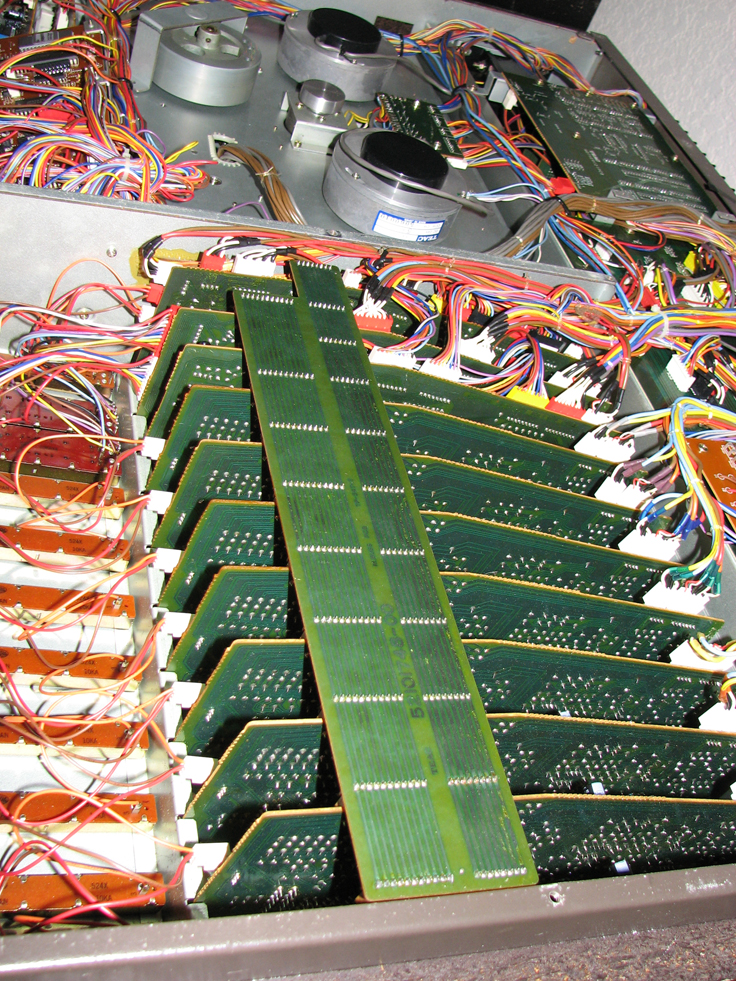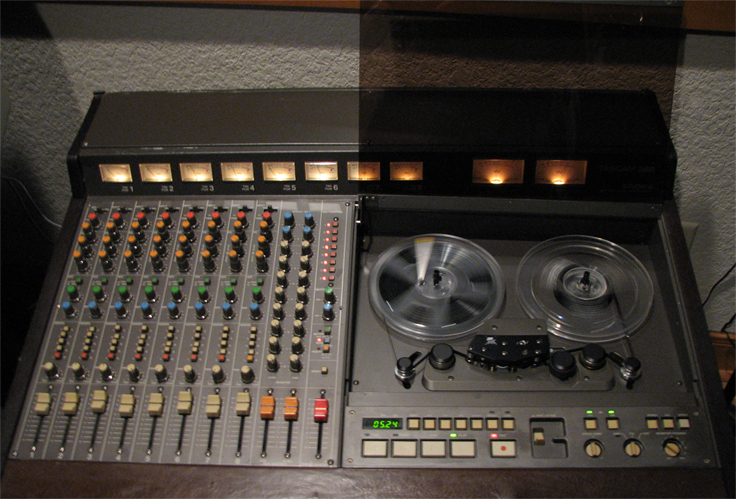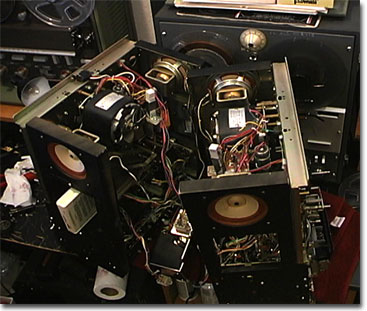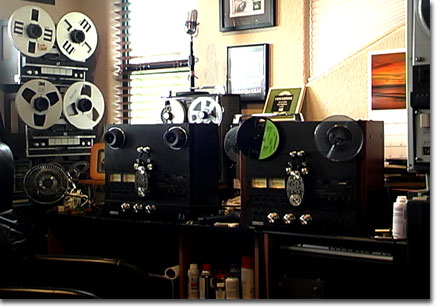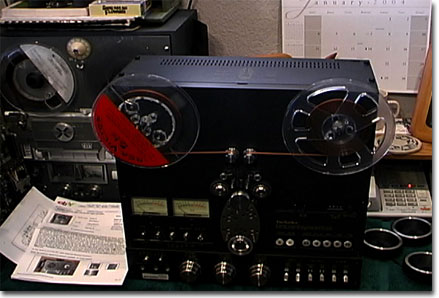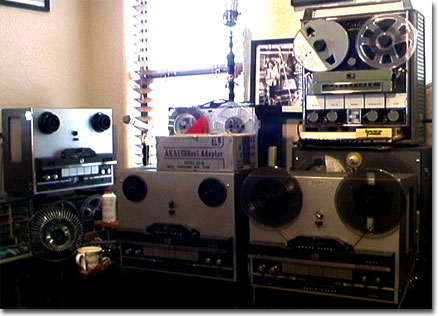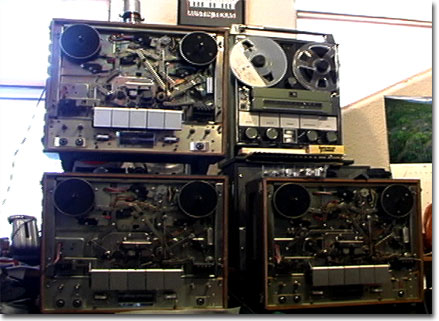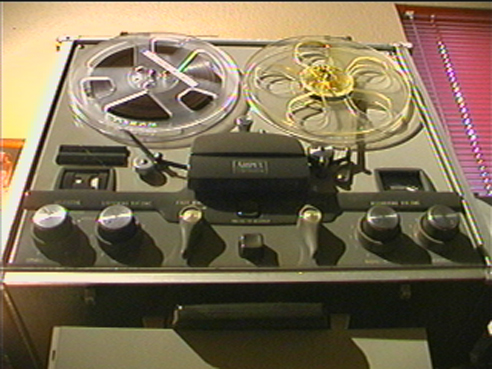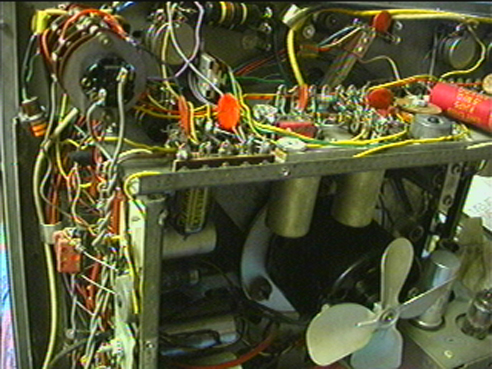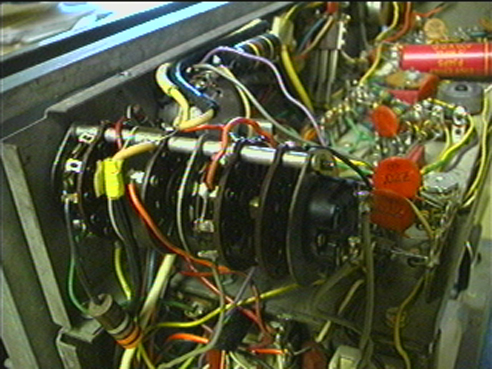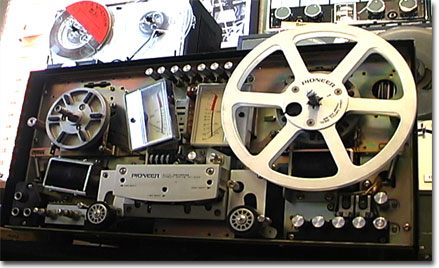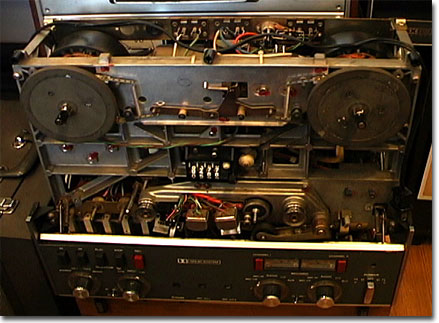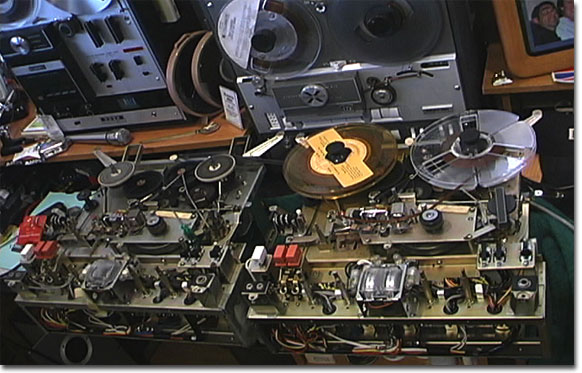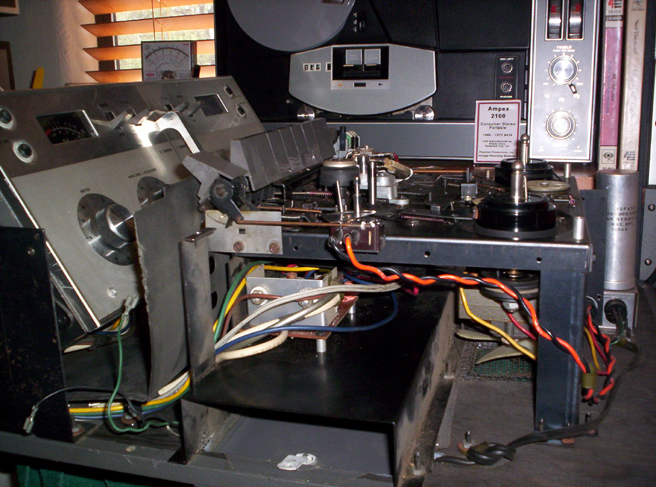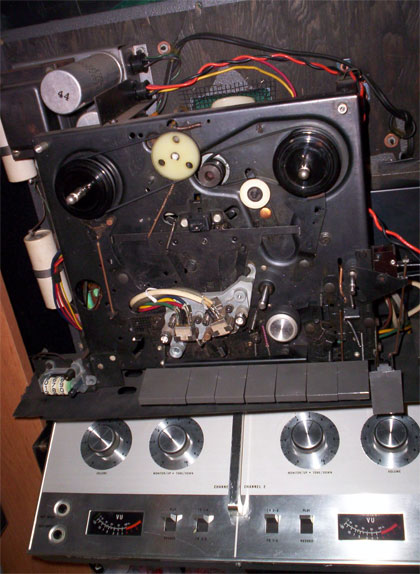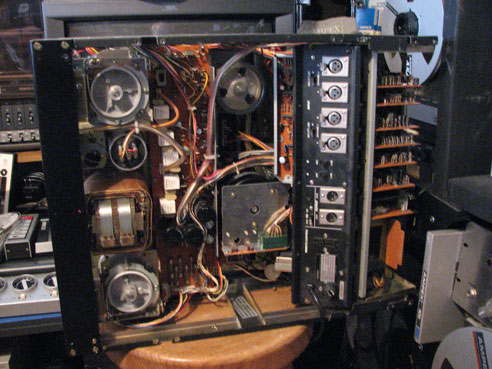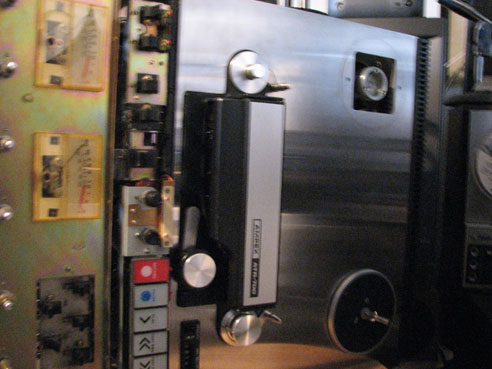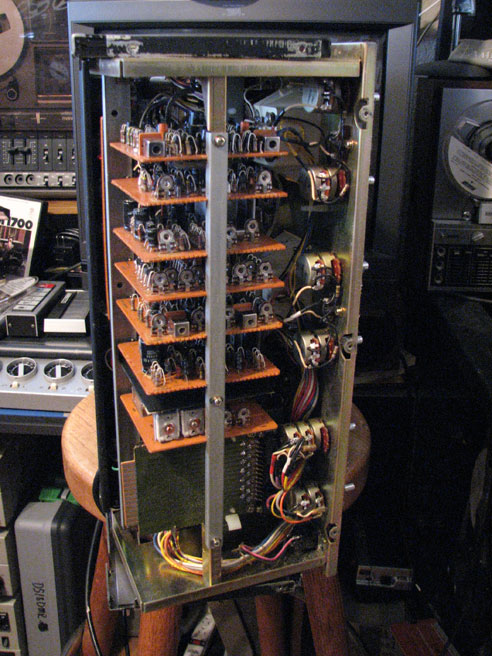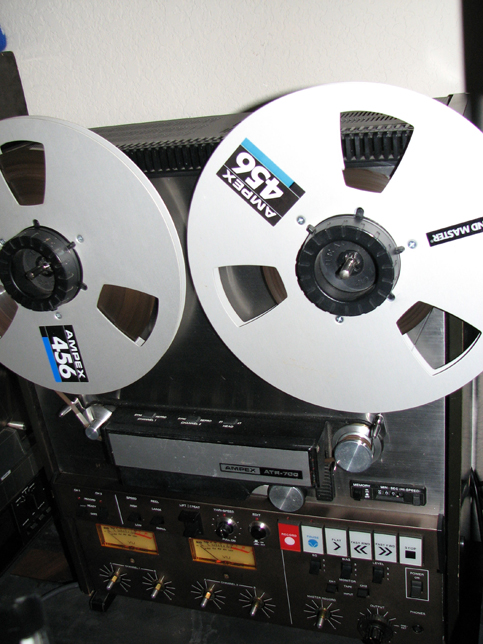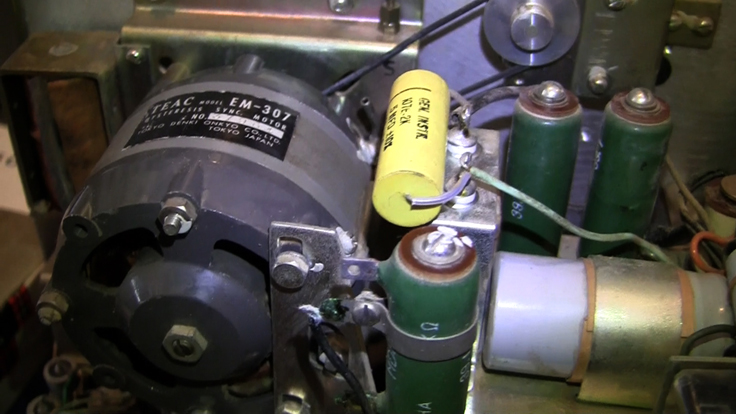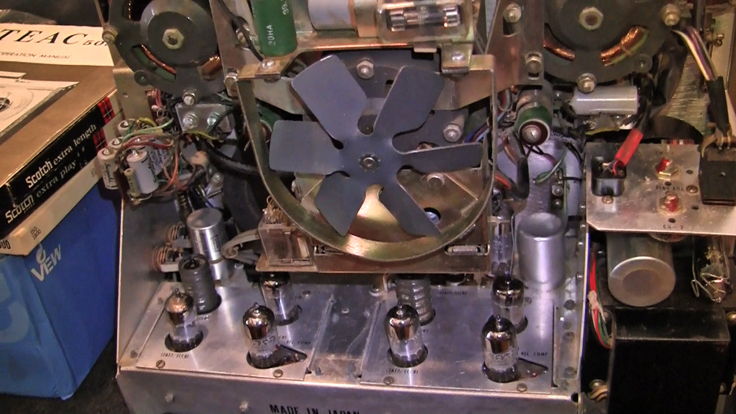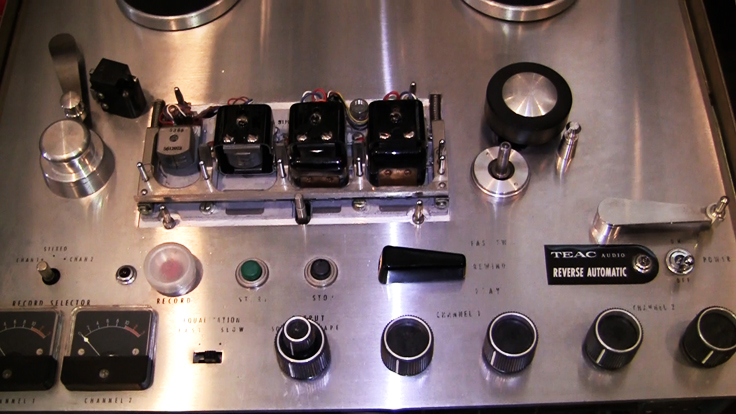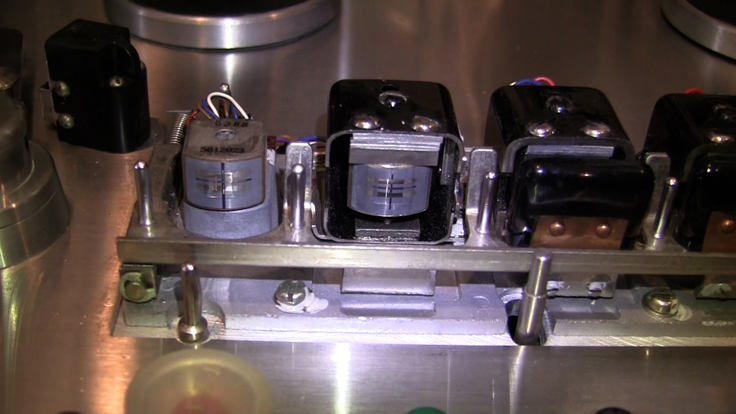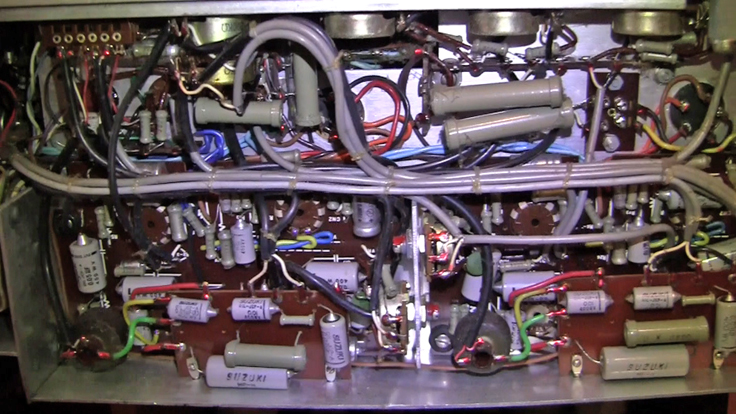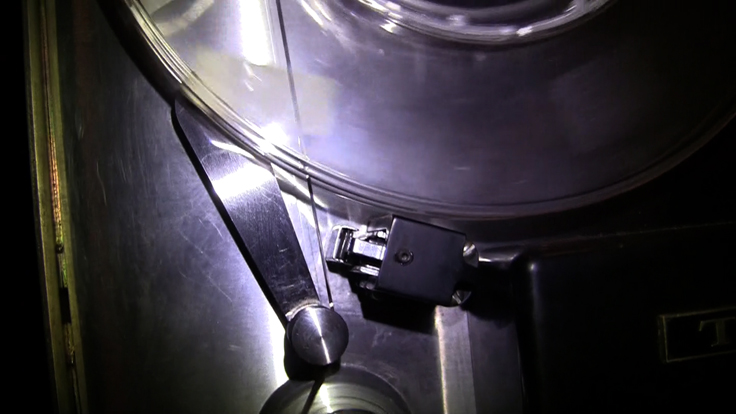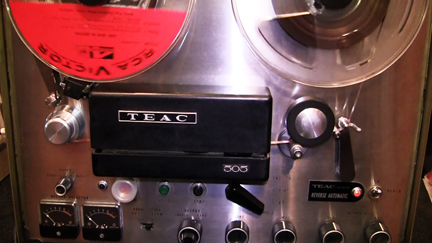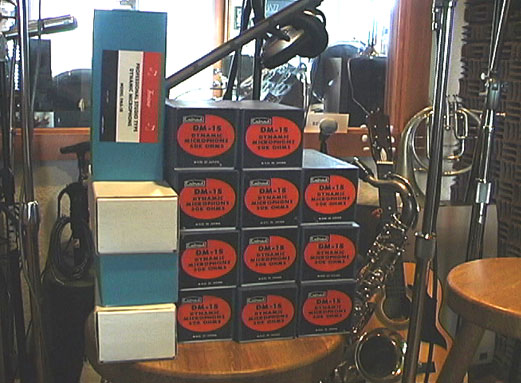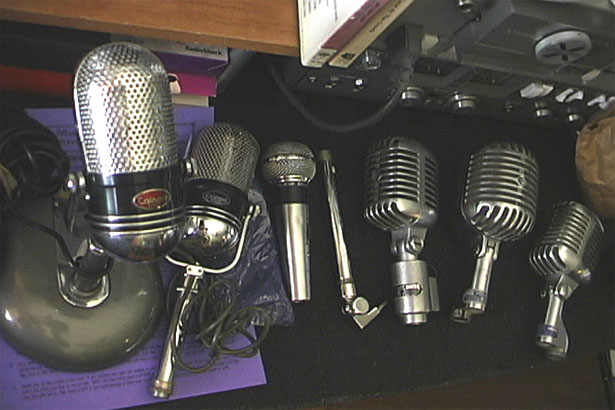MOMSR Evolution by Martin Theophilus
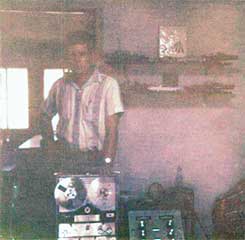
In 1964 I began recording professionally.
When the Believers (poster) played at my AHS Junior Senior prom in 1964, I asked for a copy of the tape recording made on their Roberts recorder. The Believers were a group of Sul Ross State College (now University) students. After the prom the band members headed for their homes for the Summer of '64. Go to Believers page
The Lead Singer, Grainger Hunt (right) stayed in Alpine with his family. Knowing I had a copy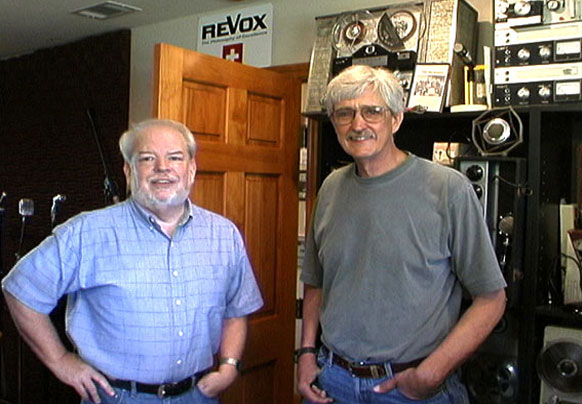 of the tape, he called and asked to hear it. Just the month before, for high school graduation, my parents bought me the Webcor (left above in mobile console) which enabled "sound with/on sound."
of the tape, he called and asked to hear it. Just the month before, for high school graduation, my parents bought me the Webcor (left above in mobile console) which enabled "sound with/on sound."
Grainger asked if I would help him develop some new songs. The rest of the Summer was spent in numerous ("fun & learning") sessions and the "draft" recording of new material for the Believers, including the development of their new song "Motor Mouth." The Believers then went to San Angelo and recorded"Motor Mouth" at Ron Newdoll's Accurate Sound Company. The studio had a #1 hit with "Last Kiss" by the Cavaliers. More on the Cavaliers
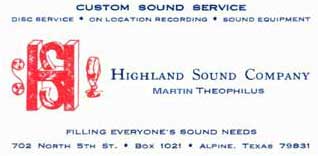 I then created a recording company (my Grandmother suggested the name Highland Sound Company after her Scottish roots). This was later changed to Phantom Productions created from the idea of phantom powered microphones and the "behind the scenes" empowering the company envisioned itself performing through recording and promotion. View old movie of studio
I then created a recording company (my Grandmother suggested the name Highland Sound Company after her Scottish roots). This was later changed to Phantom Productions created from the idea of phantom powered microphones and the "behind the scenes" empowering the company envisioned itself performing through recording and promotion. View old movie of studio
By early 1965, Highland Sound Company was working with several bands including the Believers, a couple of other rock and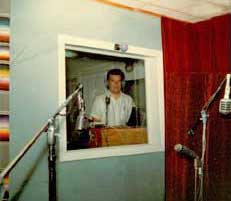 country groups as well as a pair of great guitarists from Mexico. I'd convinced my parents to remodel part of their home into a recording studio (control room and single isolation room). Often, more of the house was taken over for the cutting of multiple tracks with players in various rooms. The Alpine School District contracted with Highland Sound to record their weekly radio program (picture below). This evolved into remote recording and production for KVLF radio.
country groups as well as a pair of great guitarists from Mexico. I'd convinced my parents to remodel part of their home into a recording studio (control room and single isolation room). Often, more of the house was taken over for the cutting of multiple tracks with players in various rooms. The Alpine School District contracted with Highland Sound to record their weekly radio program (picture below). This evolved into remote recording and production for KVLF radio.
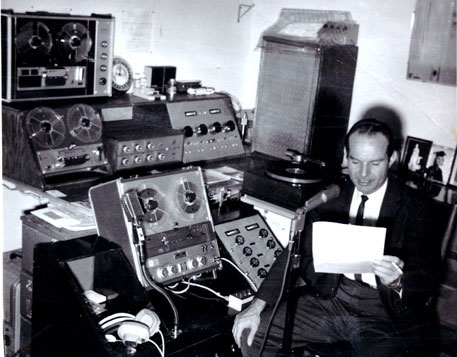
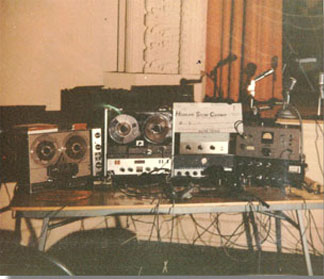
During the 1965 to 1970 period, I formed a recording company in Alpine called Highland Sound Company and built a recording studio into my parent’s home by converting two bedrooms. When I tried to buy my Sony 600, there was no one in the area selling Sony. So I contacted Sony Superscope and ended up being connected with Fred Tushinsky (later their CEO) who set me up as a distributor with Balco Sound in Lubbock. This not only enabled me to buy the Sony 600 at wholesale, but I was now the Big Bend’s area distributor for Ampex, Altec, EV, Garrard, JBL, Shure, Sony and all the other major audio brands. Listen to our Highland Sound Balco radio ad.
I majored in music at Sul Ross State University (college then). I began handling most of the music school’s recordings using an Ampex 600 and 620 amp/speaker. Then I bought my own stereo Sony 600. We had a couple of 30 foot telscoping mic stands with Shure 556 and Electro Voice 665s. I always believed that since my trumpet playing wasn’t that great, they let me stay in school because I brought a recorder to all the performances, on tours and produced an end of year album. Fun fact, because I was recording the concerts, I was able to take the college station wagon on the band tours with all the recording gear. So no bus rides, we could stop and eat where we wanted and basic freedom. It was fun!
Production Notes: In the late 1970's in Austin, I began working with Bruce Scafe (the original producer of Austin City Limits) in producing videos for the Texas Department of Human Services. In 1980 I also produced a booklet about starting your own recording business. It provided information on sources of customers and hints on the business aspects. See our ad in the 1980 Modern Recording and Music Magazine. Click here to see cover. Here's our recording and album fee schedule.
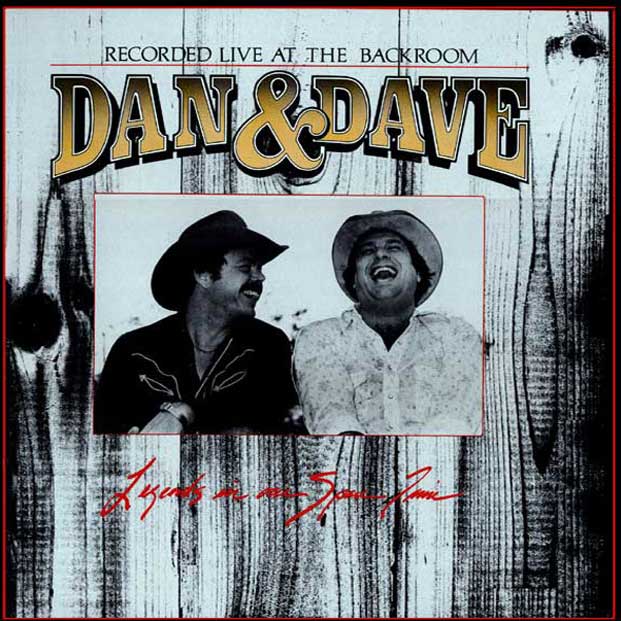
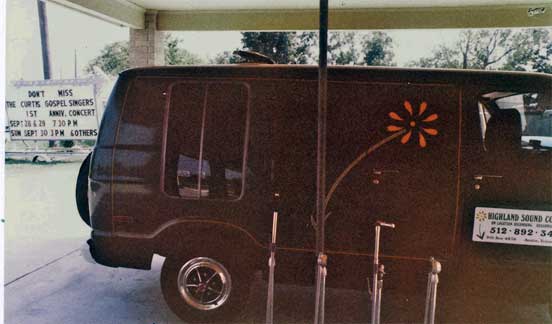
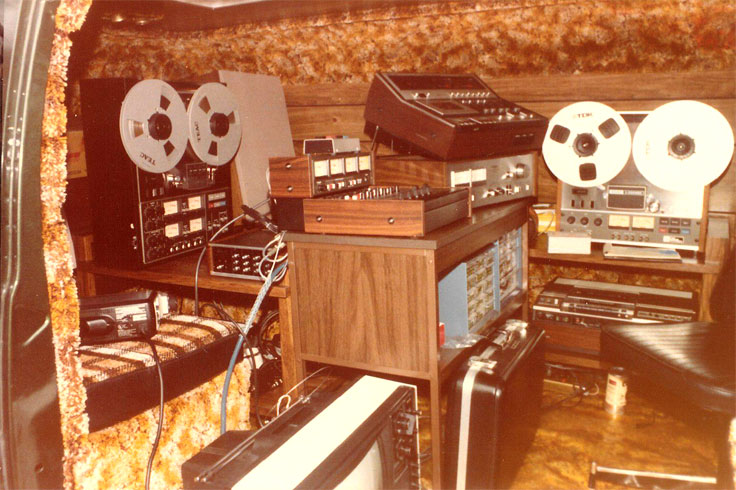
Phantom's first Austin music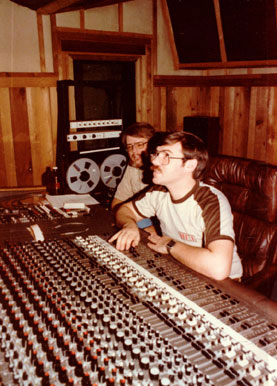 album and video was produced for "Dan and Dave" who had been one of the favorite Austin "off the wall" bands. The album was named "Legends in Our Spare Time." The album cover was created by Dick Reeves. The album was recorded on a Teac 80-8 (8 track) in Phantom's van and mastered at Ruff Cedar Studios with engineer Ben Thornton (right), producer Peter Butcher, and I. George Coyne's Parrot Tracks Studio also completed some of the mastering.
album and video was produced for "Dan and Dave" who had been one of the favorite Austin "off the wall" bands. The album was named "Legends in Our Spare Time." The album cover was created by Dick Reeves. The album was recorded on a Teac 80-8 (8 track) in Phantom's van and mastered at Ruff Cedar Studios with engineer Ben Thornton (right), producer Peter Butcher, and I. George Coyne's Parrot Tracks Studio also completed some of the mastering.
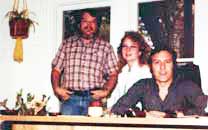 Peter and I formed a partnership that spanned several Austin music companies and took on an international scope. (left Martin, Cayce Cage and Peter while working on the Rich Michaels project in 1983)
Peter and I formed a partnership that spanned several Austin music companies and took on an international scope. (left Martin, Cayce Cage and Peter while working on the Rich Michaels project in 1983)
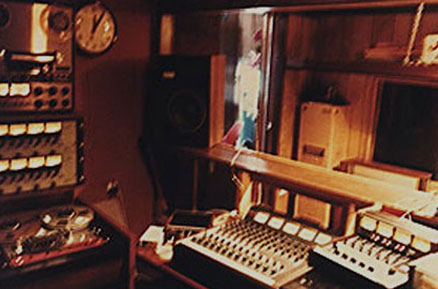
Martin had been providing on-location recording services around Texas and often produced albums under contract with Roy Poole of Austin Custom Records. Martin was also Austin Custom Records Chief Engineer for a time. (ACR studio Left).

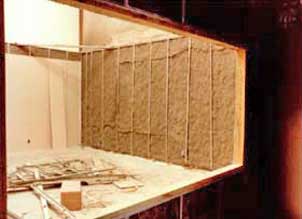 Peter and I joined with Len Clark, Dennis Roland and Harvey Campi (rockibilly artist Ray Campi's brother) to create New Generation Productions, Inc. which operated out of Austin Custom Records. NGP then contracted to build us a studio at the new Metro Center. Unfortunately Mr. Clark's inappropriate expenses depleted to company's assets and we had to forfeit the studio. When NGP closed their offices, Riverside Sound eventually
Peter and I joined with Len Clark, Dennis Roland and Harvey Campi (rockibilly artist Ray Campi's brother) to create New Generation Productions, Inc. which operated out of Austin Custom Records. NGP then contracted to build us a studio at the new Metro Center. Unfortunately Mr. Clark's inappropriate expenses depleted to company's assets and we had to forfeit the studio. When NGP closed their offices, Riverside Sound eventually  became the new owner. The studio was completed by Bill Johnson and Herschel Cunningham. One of Riverside Sound's first projects was recording tracks for Stevie Ray Vaughan's Texas Flood, for which the studio won gold records.
became the new owner. The studio was completed by Bill Johnson and Herschel Cunningham. One of Riverside Sound's first projects was recording tracks for Stevie Ray Vaughan's Texas Flood, for which the studio won gold records.
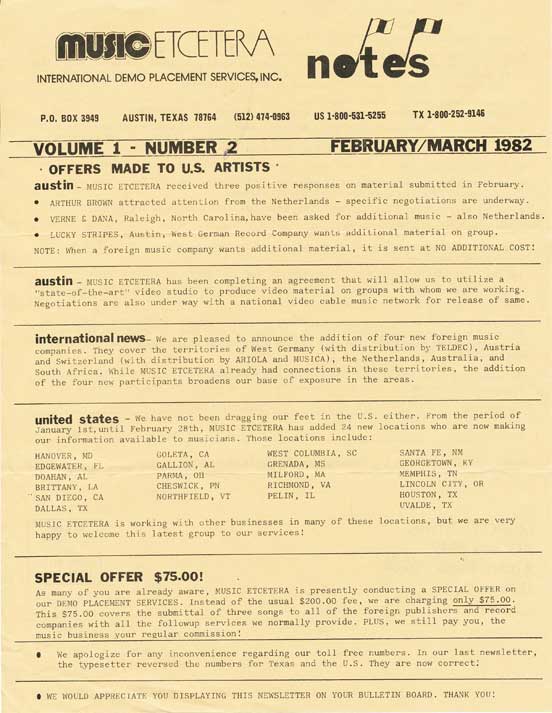 Peter and I then created a company called Music Etcetera. The intent was to take advantage of Peter's international connections and work to have US studios submit bands they recommended; which we in turn would promote internationally.
Peter and I then created a company called Music Etcetera. The intent was to take advantage of Peter's international connections and work to have US studios submit bands they recommended; which we in turn would promote internationally.
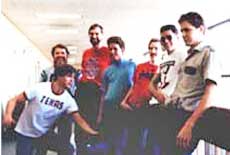
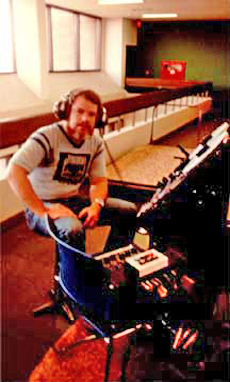 Phantom at this point was primarily providing on-location recording to musicians. We realized that one of the ways we could be more helpful to the musicians we were working with, was to begin handling the day to day tasks that enabled the artist to pursue their music. Housewives Choice (left). This evolved into a role as Artist Manager (although we soon found the role was more accurately described as "investor").
Phantom at this point was primarily providing on-location recording to musicians. We realized that one of the ways we could be more helpful to the musicians we were working with, was to begin handling the day to day tasks that enabled the artist to pursue their music. Housewives Choice (left). This evolved into a role as Artist Manager (although we soon found the role was more accurately described as "investor").
Chris and I met in October of 1984 and were married iJune 1,1985. Her work enabled our company, now called Phantom Productions, Inc., to grow, so I could leave State employment, where I'd been working full time since 1968. the State job occupied my days, over it also enabled travel and most recording gigs were at night or on weekends.
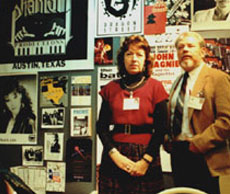
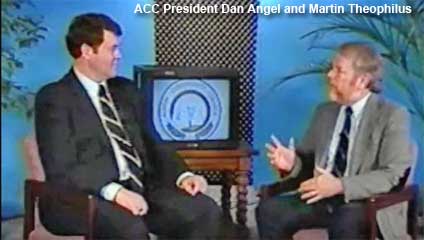 After seeing a MIX magazine about music schools that incorporated business classes dealing with the music business and publishing, Chris and I initiated the creation of the Commercial Music degree program at Austin Community College. We approached the University of Texas, Concordia College and Saint Edwards University, however they were uninterested. Beginning in 1986 proposals and surveys were continually provided to ACC to convince the college of the need. It took several years and lots of help from others. It became a reality in the Summer of 1988 (regular classes began in 1989. ACC said if ten students showed up for the first class, they would continue the program. Thirty-eight showed and additional classes had to be created. I taught Music Marketing classes in the new program at ACC. Click for more.
After seeing a MIX magazine about music schools that incorporated business classes dealing with the music business and publishing, Chris and I initiated the creation of the Commercial Music degree program at Austin Community College. We approached the University of Texas, Concordia College and Saint Edwards University, however they were uninterested. Beginning in 1986 proposals and surveys were continually provided to ACC to convince the college of the need. It took several years and lots of help from others. It became a reality in the Summer of 1988 (regular classes began in 1989. ACC said if ten students showed up for the first class, they would continue the program. Thirty-eight showed and additional classes had to be created. I taught Music Marketing classes in the new program at ACC. Click for more.
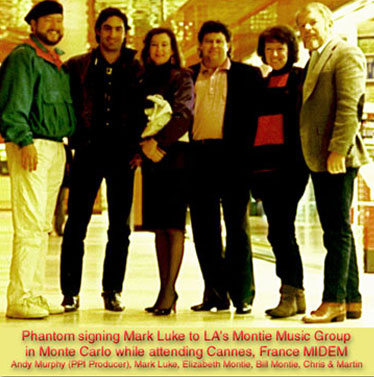 Chris and I were managing multiple artists in a variety of music styles. We represented Country with Mark Luke Daniels, Heavy Metal with Skull Duggery and Folk with Linden Sherwin. At Midem in Cannes we signed one of our country artist Mark Luke Daniels to Richie Valens world wide publisher, the Montie Music Group. They in turn were able to secure a seven album Custom RCA record deal with Gene Simmons, of KISS. In this managing process, I’d sold off all my reel to reel equipment as we moved to video
Chris and I were managing multiple artists in a variety of music styles. We represented Country with Mark Luke Daniels, Heavy Metal with Skull Duggery and Folk with Linden Sherwin. At Midem in Cannes we signed one of our country artist Mark Luke Daniels to Richie Valens world wide publisher, the Montie Music Group. They in turn were able to secure a seven album Custom RCA record deal with Gene Simmons, of KISS. In this managing process, I’d sold off all my reel to reel equipment as we moved to video
Video had already become a dominant media for promotion and it was expensive for the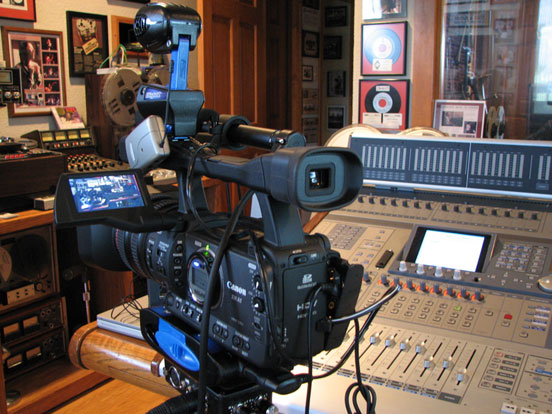 musicians to buy production. We decided to also invest in video production to see if it might give our artists an edge. We choose SVHS as it provided a higher resolution and was much less expensive than Beta SP. We then moved into digital when it became available.
musicians to buy production. We decided to also invest in video production to see if it might give our artists an edge. We choose SVHS as it provided a higher resolution and was much less expensive than Beta SP. We then moved into digital when it became available.
At the 1991 MIDEM in Cannes, France, a Canadian group told Chris that with our organizational skills we should be providing corporate booking. It would be more profitable and less of an investment situation. We decided to pursue that route and we soon formed a partnership with David Perkoff Music.
Chris, worked with David Perkoff Music for 27 years and at times was booking 500 events a year, while Martin provided media and IT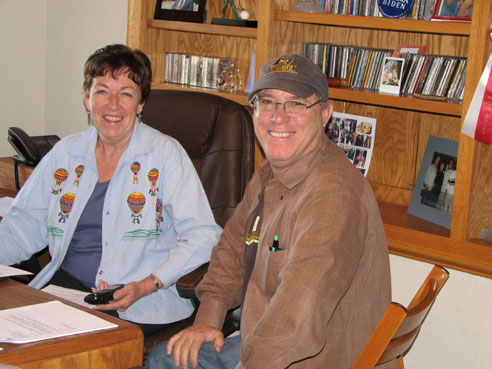 support. Bookings included Texas musicians, but also, Lee Greenwood, Helen Reddy, Lee Ann Womak and many others. She and her partner David Perkoff worked with Apple, Dell, Microsoft and many other corporations.
support. Bookings included Texas musicians, but also, Lee Greenwood, Helen Reddy, Lee Ann Womak and many others. She and her partner David Perkoff worked with Apple, Dell, Microsoft and many other corporations.
By the late ’80’s, I sold off the audio and went 100% video. As the internet arrived, I was looking for info on tape recorders.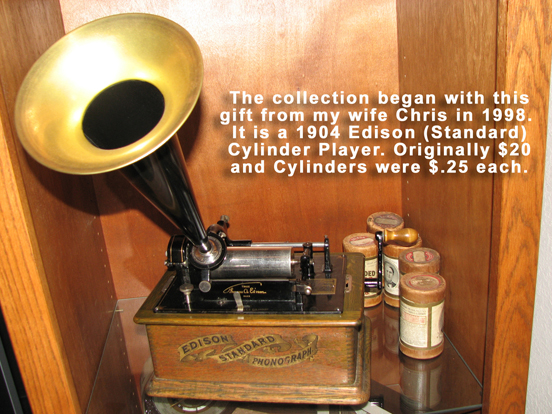 What I found was sparse. So in 1999, I created Reel2ReelTexas.com to provide historical information. In 1999, my wife Chris gave me a 1904 Edison cylinder player. I began tracking sales of recorders and have a data base of over 23,000 records which provide the museum’s value.
What I found was sparse. So in 1999, I created Reel2ReelTexas.com to provide historical information. In 1999, my wife Chris gave me a 1904 Edison cylinder player. I began tracking sales of recorders and have a data base of over 23,000 records which provide the museum’s value.
As eBay had arrived, I decided to reacquire the 15 or more tape recorders I’d used over the years. I found a 1970 Roberts 1000, reversible 4 track audio recorder with a B&W video recorder built in. I began to realize that our collection was becoming more significant. At that point the collection included about 50 tape recorders. The intent was to acquire recorders, mixers and mics that musicians recorded their demos prior to booking pro studio time. The devices primarily represent machines that were available in the US. I acquired Catalogs from the 1930’s until they stopped and most of the magazines during that period.
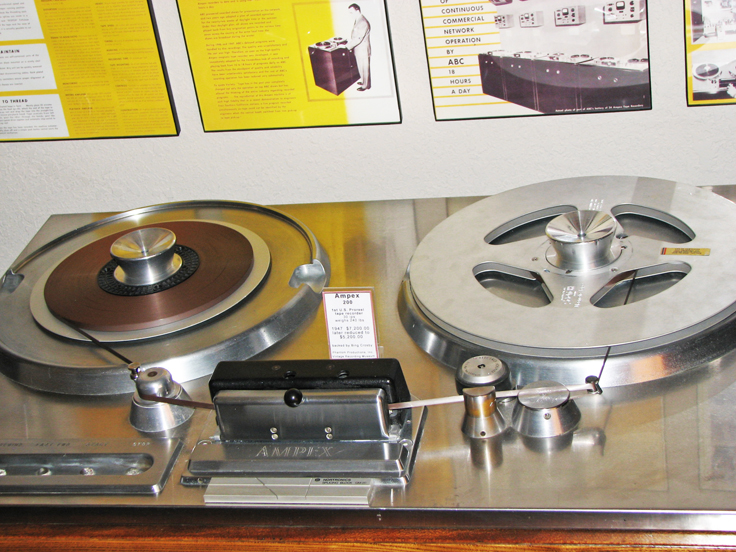 In 2010, we acquired the 1949 Ampex 200A #33 and an Ampex 300 from the Leo de Gar Kulka estate (San Francisco’s Golden State Recorders). The recorder mastered the Champs' Tequila and demoed some of Austin’s Asleep At the Wheel's cuts in San Francisco. Kulka charged $30 an hour for the Ampex 200A 2-track and $45 per hour for 4 track. When Asleep At The Wheel recorded at Golden State, the 200A had 4 Inovonics solid state amps, instead of the original tube electronics. The Grateful Dead recorded demos and used the space under the assumed name of "The Emergency Crew" (originally the Warlocks), as did Jefferson Airplane and many others. Cher was supposedly their receptionist for awhile according to Kulka’s nephew.
In 2010, we acquired the 1949 Ampex 200A #33 and an Ampex 300 from the Leo de Gar Kulka estate (San Francisco’s Golden State Recorders). The recorder mastered the Champs' Tequila and demoed some of Austin’s Asleep At the Wheel's cuts in San Francisco. Kulka charged $30 an hour for the Ampex 200A 2-track and $45 per hour for 4 track. When Asleep At The Wheel recorded at Golden State, the 200A had 4 Inovonics solid state amps, instead of the original tube electronics. The Grateful Dead recorded demos and used the space under the assumed name of "The Emergency Crew" (originally the Warlocks), as did Jefferson Airplane and many others. Cher was supposedly their receptionist for awhile according to Kulka’s nephew.
Some highlights of our collection:
• Ampex - almost all the tape recorders from the 200A up to Teac began building their machines with the Ampex ATR-800 and ATR-700/Teac A-7300. Other Ampex models include a restored 300 with restored amp, 351 with restored transport and amp; 400 with restored amp, AG-500, AG-440s and more.
• Archives: John Stephens, the Stephens Electronics Inc.,archives provided to us by his brother Rod Stephens. We also acquired the Joe Tall (EditAll) archives and prototypes. The Illinois Institute of Technology offered us Marvin Camrus’ personal items, however the University decided to retain them.
• Berlant/Concertone colorful and rugged tape recorders.
• Califone/Roberts/Akai - We have Akai’s first recorders designed by Robert Metzner, founder of Roberts Recorders. Metzner was also known for creating Califone, the AV machines in most schools and universities. In 2012, we interviewed Robert and his wife in Beverly Hills. He was responsible for most of the Akai tape recorder designs from 1953 until the early ’70’s. Metzner negotiated retaining the North American franchise for his Roberts/Akai recorders until 1972 when his agreement expired and Akai entered the US market. In the ’50’s Congress allocated 4 billion dollars for educational resources. Rheem (yes the air conditioner company), bought Califone/Roberts Recorder and Metzner stayed on designing machines for Akai, rebranding them as Rheem/Roberts and Rheem Califone.
• Magnecord - Dave Boyers donated his Dad’s (John Boyers - one of US Magnecord’s 5 founders) prototype PT-6 recorder and amp and we are the repository for the Magnecord archives as well.
• Sony machines include the first Sony 555 to the Sony APR-5003 and Sony’s first wireless mic.
• Microphones - over 100 classic microphones. Including a Neumann U48 matched pair with consecutive serial numbers; Altec; Astatic; EV; RCA; Sennheiser; Shure; and Uher. Mixers include: Shure, Sony, Teac and Tascam.
• Mitsubishi - the Mitsubishi X-80 ProLogic, razor blade editable, 1/4" stereo, PCM digital reel to reel recorder.
• Otari - Otari MX5050 BQII 4 track
• StuderReVox – collection includes Willie Studer’s first prototype reel tape recorder, from 1949. The Studer/ReVox Dynavox T-26 recorder was created after Studer was frustrated with trying to convert 1947 Brush Development Company BK-401 SoundMirror recorders for the European market. Studer ReVox machines include the Studer A807 with time code. We also have Studer’s ReVox line including the complete A-77 recorder with matching amplifier and tuner and other Studer ReVox machines including the Studer B67and Studer A807 with time code.
• Teac/Tascam – We display Teac's first tape recorders, including their Ampex 300 knockoff TD-102 in its original crate, never used. In fact, Teac Japan came to us for photos they could not find in their archives. In return, they profiled us in Japan, Europe and the US. They offered to be a sponsor when a public facility was established. Wish we could have done it. Teac receives the most hits out of all recorders on the web site.
The collection has many unique items. Lawrence Grover, working for Texas Instruments was the creator of the first transistor amplifier for a tape recorder using a Viking deck.
The unique thing is that 80% of the recorders are working. They are displayed with the manuals, ads and all interconnected in our studio so they may be readily demonstrated. Our web site not only documents the devices, we profile the manufacturers, have captured histories of significant magnetic recording folks and maintain memorials to those folks. In March, 2018, our web sites received 38,407 visitors and 2,803,321 hits.
In 2012 we founded the non-profit Museum of Magnetic Sound Recording, to create a permanent public museum in Austin, Texas for sound recording technology.
The AES, NARAS (Christine Albert, who chaired the NARAS Foundation Board at the time, supported us), the Texas Music Office and others supported our efforts. Rusty Paul offered to loan us his Dad's 8-track Octopus when our facility was completed.
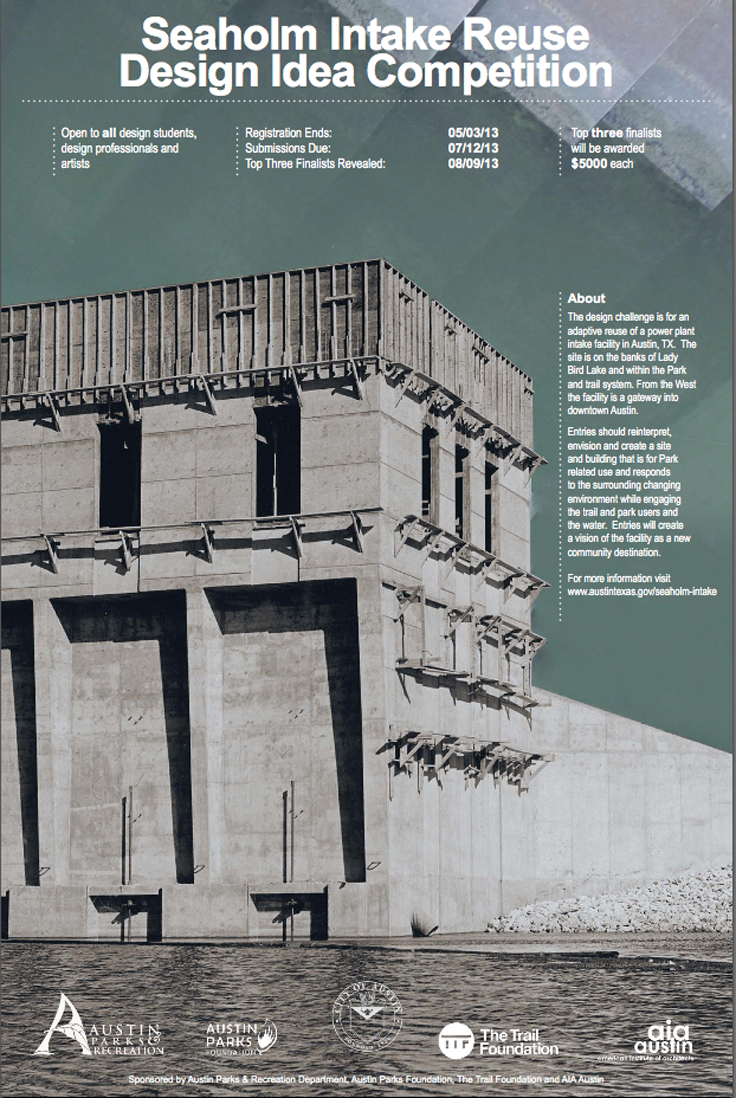 Just after our non-profit was founded in 2012, the City of Austin was looking for input on their use of an old power plant’s intake facility. Our Board scrambled and our Museum won the most votes and comments. There were architectural firms competing with wonderful designs and we could not muster the resources. The attention though, resulted in a good relationship with Margaret Koch, Assistant Director of the Bob Bullock Texas State History Museum who met with us several times encouraging and offering recommendations.
Just after our non-profit was founded in 2012, the City of Austin was looking for input on their use of an old power plant’s intake facility. Our Board scrambled and our Museum won the most votes and comments. There were architectural firms competing with wonderful designs and we could not muster the resources. The attention though, resulted in a good relationship with Margaret Koch, Assistant Director of the Bob Bullock Texas State History Museum who met with us several times encouraging and offering recommendations.
We applied for grants. Austin’s Bullock Museum considered our collection. When their curator toured the collection, he decided there were not enough items tied to famous musicians. The Bullock went with a permanent display about ACL, ACL Live and rotating displays from the Grammy and Rock ’n Roll Hall of Fame.
We learned a great deal about museum curation. In fact rotating displays were a wakeup call for our plans. Our vision, designed by our Board’s Architect Lloyd Cates, was a facility with two studios (1930 to 1950 and 1960 to 1980), tied to a performance stage, an audio/hearing demo room, restoration workshop and the collection divided by era. As in our current studio, all the units would be tied to relevant sound sources. Rotation of displays would not give the historical concept we created.
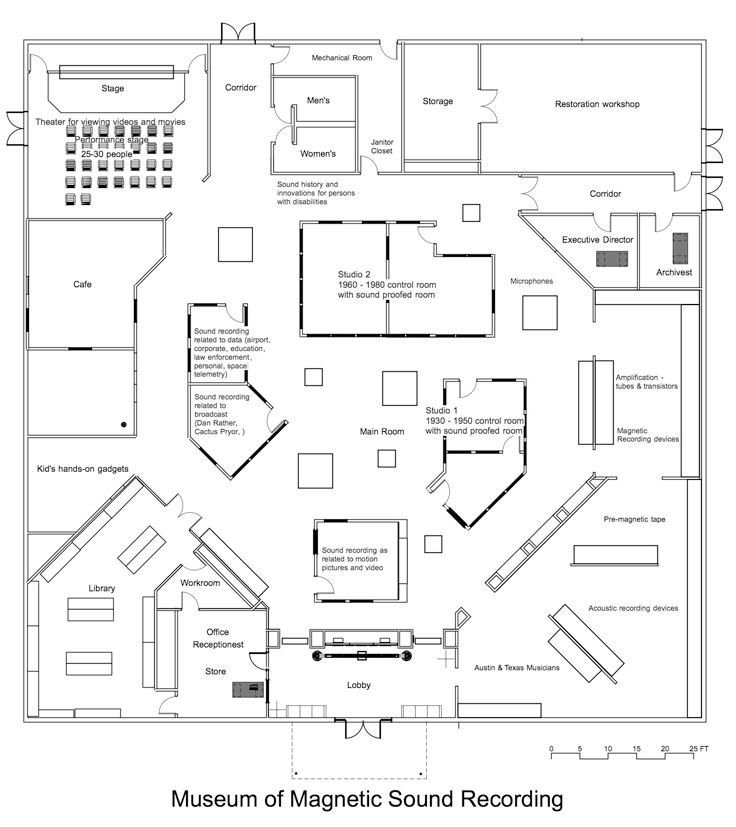
In 2015, the University of Texas’ School of Architecture, third year interior design class, developed 13 prototype designs of our proposed museum during the entire semester. Even with that level of development and exposure, we attracted no interest. One student won a $30,000 scholarship for her design. View more
In October 2017, our non-profit Museum Board determined a permanent public magnetic recording museum was not viable and it was dissolved, December 31, 2017. So the collection continues privately.
Cheers! Martin Theophilus, co-owner of the Museum of Magnetic sound Recording
Gallery
Welcome to Reel2ReelTexaS' Vintage recording museum
Ampex 200-A, Ampex 300 and Ampex 601 in Phantom vintage recording collection view more Ampex • RCA 77DX with the Crown SS700 • North Wall of Museum
In collecting our vintage recorders, we have attempted to include pieces that had a significant role in the development of audio recording. Our focus is primarily on those analog reel to reel tape recorders that enabled musicians to hone their craft. We felt it would be interesting to include some of the early cylinder, disk and wire units, however, our main collection reflects the recorders that first became available to musicians and "prosumers" in the late '40's, '50's, '60's, '70's and early '90's. So many innovations assisted the musician to capture that unique sound. They included, "sound with, and on sound," echo, and then came multi-tracking.
Essential to the recordings were the microphones and mixers, so we've added some of those pieces as well. For perspective, we added reel to reel pages in radio catalogs from the late '30's to the early '80's and included tape recorder and related ads as well. Images on this site now number 10,000+! We hope you enjoy our online information. It has not been our intent to add all recorder models to the collection, but to provide examples of the various brands and types of recorders.
Please take a look at our "Unusual & Unique" page also. You'll see some of the audio and video units that were interesting benchmarks of production development. It continues to evolve as we have time. We move things around off and on, so you'll see duplication in some of the pictures. Page one (1) will usually be the most current. Enjoy!
Vintage Catalogs and Ads View Phantom TimeLine
View story on Phantom's Vintage Recording Museum • View news story
PLEASE NOTE: None of the Reel2ReelTexas' Vintage Museum pieces are for sale. This listing is provided to reflect our collection. • ©2021 All pictures and content on this web site are the property of Theophilus/Reel2ReelTexas
Special thanks to my wife Chris (on the left in the right picture above) who lets me have all this fun!(:-) and gave me the Beatles Abbey Road award far (right)
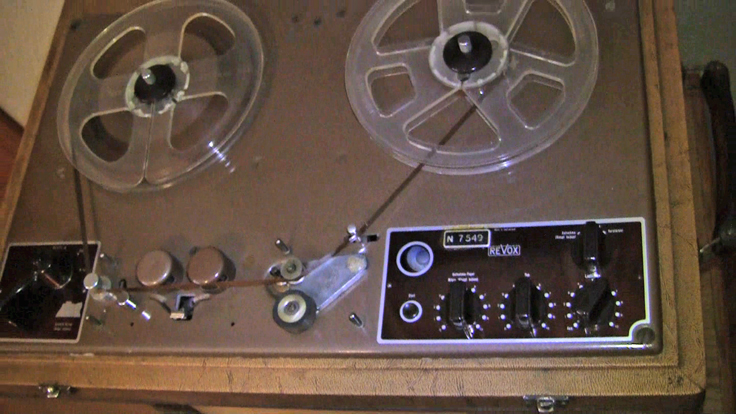 |
|||
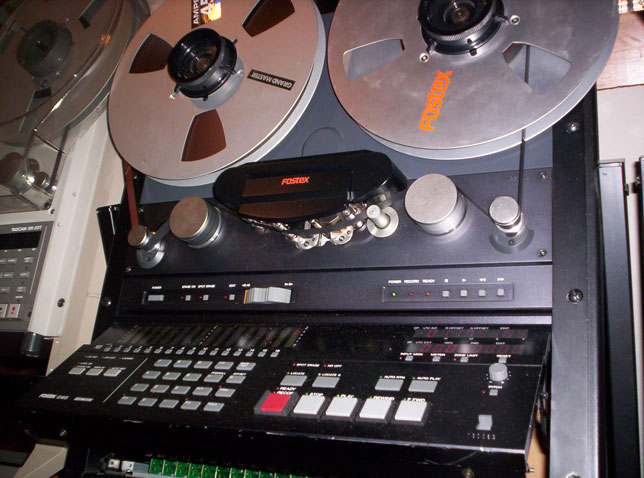 |
|||
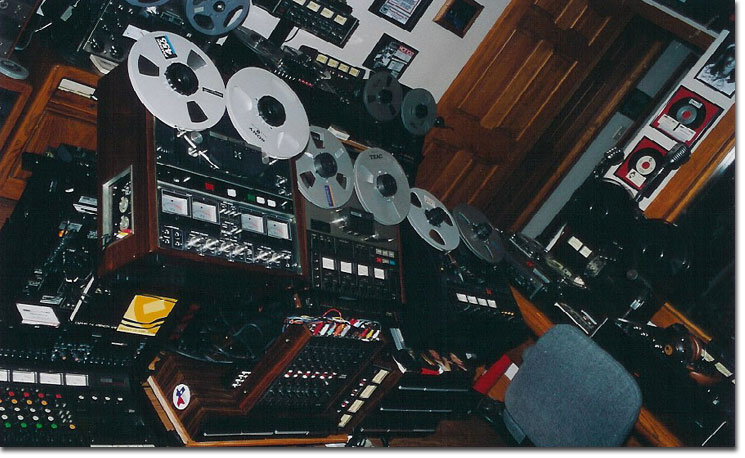 |
|||
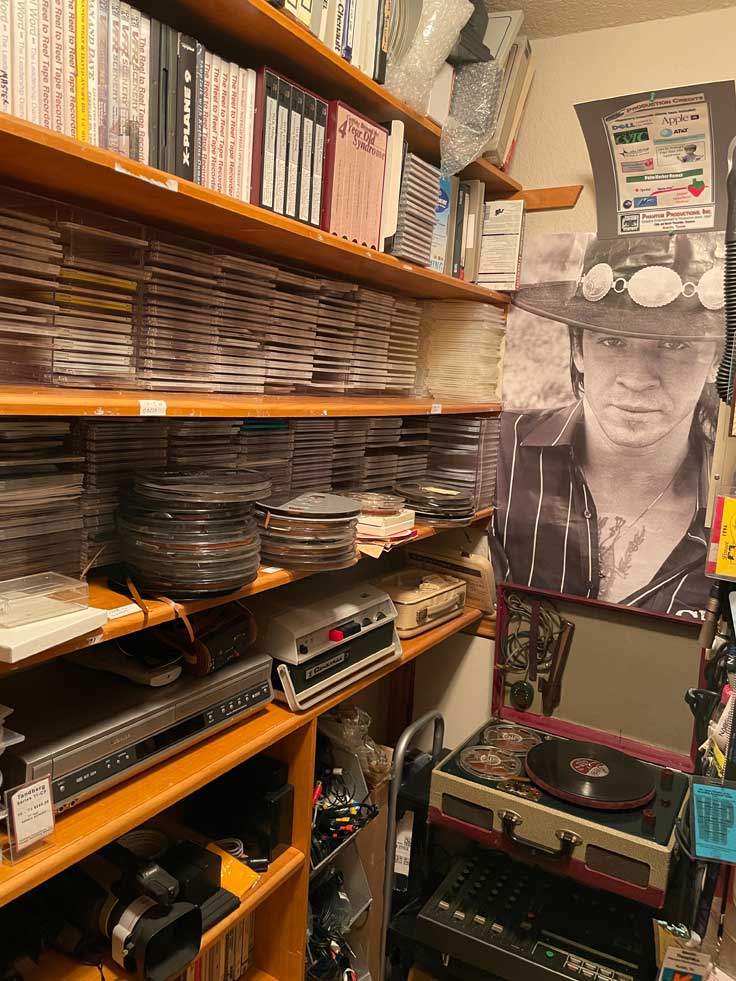 |
|||
Go to page dedicated to our microphone collection • Reel to Reel Tape Recorder Company Histories
While the photos below show some of the work on our collection recorders, we are not a repair source. Due to our production work, we do not provide repair, nor restoration on units except for those in our collection.
Please see our links page under "repair and restoration" for resources.
Restoring the Ampex 351
Restoring the Sony 777
Replacing drive belt Uher 4400
Cleaning and replacing belt on the Tascam 388
Vintage work station - Roberts 333X, Technics RS-1500s, RS-1700, Roberts 5000X, Ampex 2100, Sony 600
Ampex 960
Vintage work station - Pioneer RT-707, ReVox A77, Sony 600s, Roberts 4000X, Roberts 770X, Webcor Professional
Repair of Ampex ATR 700
Restoring Teac 505
